30/4/20 Thursday of the 3rd week of Eastertide
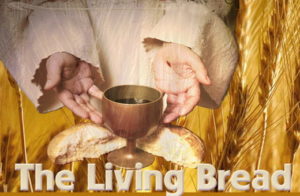
raise him up at the last day. It is written in the prophets: They will all be taught by God, and to hear the teaching of the Father, and learn from it,
29/4/20 Saint Catherine of Siena, Virgin, Doctor
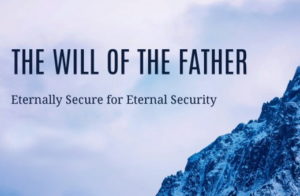 First Reading Acts 8:1-8
First Reading Acts 8:1-8
That day a bitter persecution started against the church in Jerusalem, and everyone except the apostles fled to the country districts of Judaea and Samaria.
There were some devout people, however, who buried Stephen and made great mourning for him.
Saul then worked for the total destruction of the Church; he went from house to house arresting both men and women and sending them to prison.
Those who had escaped went from place to place preaching the Good News. One of them was Philip who went to a Samaritan town and proclaimed the Christ to them. The people united in welcoming the message Philip preached, either because they had heard of the miracles he worked or because they saw them for themselves. There were, for example, unclean spirits that came shrieking out of many who were possessed, and several paralytics and cripples were cured. As a result there was great rejoicing in that town.
Gospel John 6:35-40
Jesus said to the crowd: ‘I am the bread of life. He who comes to me will never be hungry; he who believes in me will never thirst. But, as I have told you, you can see me and still you do not believe. All that the Father gives me will come to me, and whoever comes to me I shall not turn him away; because I have come from heaven, not to do my own will, but to do the will of the one who sent me. Now the will of him who sent me is that I should lose nothing of all that he has given to me, and that I should raise it up on the last day. Yes, it is my Father’s will that whoever sees the Son and believes in him shall have eternal life, and that I shall raise him up on the last day.’
28/4/20 Monday of the 3rd week of Eastertide
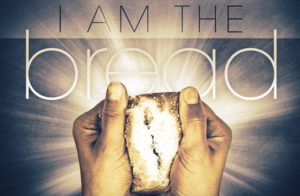 First Reading Acts 6:8-15
First Reading Acts 6:8-15
Stephen was filled with grace and power and began to work miracles and great signs among the people. But then certain people came forward to debate with Stephen, some from Cyrene and Alexandria who were members of the synagogue called the Synagogue of Freedmen, and others from Cilicia and Asia. They found they could not get the better of him because of his wisdom, and because it was the Spirit that prompted what he said. So they procured some men to say, ‘We heard him using blasphemous language against Moses and against God.’ Having in this way turned the people against him as well as the elders and scribes, they took Stephen by surprise, and arrested him and brought him before the Sanhedrin. There they put up false witnesses to say, ‘This man is always making speeches against this Holy Place and the Law. We have heard him say that Jesus the Nazarene is going to destroy this Place and alter the traditions that Moses handed down to us.’ The members of the Sanhedrin all looked intently at Stephen, and his face appeared to them like the face of an angel.
Gospel John 6:22-29
After Jesus had fed the five thousand, his disciples saw him walking on the water. Next day, the crowd that had stayed on the other side saw that only one boat had been there, and that Jesus had not got into the boat with his disciples, but that the disciples had set off by themselves. Other boats, however, had put in from Tiberias, near the place where the bread had been eaten. When the people saw that neither Jesus nor his disciples were there, they got into those boats and crossed to Capernaum to look for Jesus. When they found him on the other side, they said to him, ‘Rabbi, when did you come here?’ Jesus answered: ‘I tell you most solemnly, you are not looking for me because you have seen the signs but because you had all the bread you wanted to eat.
Do not work for food that cannot last, but work for food that endures to eternal life, the kind of food the Son of Man is offering you, for on him the Father, God himself, has set his seal.’ Then they said to him, ‘What must we do if we are to do the works that God wants?’ Jesus gave them this answer, ‘This is working for God: you must believe in the one he has sent.’
27/4/20 Monday of the 3rd week of Eastertide
 First Reading Acts 6:8-15
First Reading Acts 6:8-15
Stephen was filled with grace and power and began to work miracles and great signs among the people. But then certain people came forward to debate with Stephen, some from Cyrene and Alexandria who were members of the synagogue called the Synagogue of Freedmen, and others from Cilicia and Asia. They found they could not get the better of him because of his wisdom, and because it was the Spirit that prompted what he said. So they procured some men to say, ‘We heard him using blasphemous language against Moses and against God.’ Having in this way turned the people against him as well as the elders and scribes, they took Stephen by surprise, and arrested him and brought him before the Sanhedrin. There they put up false witnesses to say, ‘This man is always making speeches against this Holy Place and the Law. We have heard him say that Jesus the Nazarene is going to destroy this Place and alter the traditions that Moses handed down to us.’ The members of the Sanhedrin all looked intently at Stephen, and his face appeared to them like the face of an angel.
Gospel John 6:22-29
After Jesus had fed the five thousand, his disciples saw him walking on the water. Next day, the crowd that had stayed on the other side saw that only one boat had been there, and that Jesus had not got into the boat with his disciples, but that the disciples had set off by themselves. Other boats, however, had put in from Tiberias, near the place where the bread had been eaten. When the people saw that neither Jesus nor his disciples were there, they got into those boats and crossed to Capernaum to look for Jesus. When they found him on the other side, they said to him, ‘Rabbi, when did you come here?’ Jesus answered: ‘I tell you most solemnly, you are not looking for me because you have seen the signs but because you had all the bread you wanted to eat. Do not work for food that cannot last, but work for food that endures to eternal life, the kind of food the Son of Man is offering you, for on him the Father, God himself, has set his seal.’ Then they said to him, ‘What must we do if we are to do the works that God wants?’ Jesus gave them this answer, ‘This is working for God: you must believe in the one he has sent.’
26/4/20 3rd Sunday of Easter
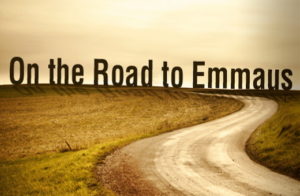 First Reading Acts 2:14,22-33
First Reading Acts 2:14,22-33
On the day of Pentecost Peter stood up with the Eleven and addressed the crowd in a loud voice: ‘Men of Israel, listen to what I am going to say: Jesus the Nazarene was a man commended to you by God by the miracles and portents and signs that God worked through him when he was among you, as you all know. This man, who was put into your power by the deliberate intention and foreknowledge of God, you took and had crucified by men outside the Law. You killed him, but God raised him to life, freeing him from the pangs of Hades; for it was impossible for him to be held in its power since, as David says of him:
I saw the Lord before me always, for with him at my right hand nothing can shake me. So my heart was glad and my tongue cried out with joy; my body, too, will rest in the hope that you will not abandon my soul to Hades nor allow your holy one to experience corruption. You have made known the way of life to me, you will fill me with gladness through your presence.
‘Brothers, no one can deny that the patriarch David himself is dead and buried: his tomb is still with us. But since he was a prophet, and knew that God had sworn him an oath to make one of his descendants succeed him on the throne, what he foresaw and spoke about was the resurrection of the Christ: he is the one who was not abandoned to Hades, and whose body did not experience corruption. God raised this man Jesus to life, and all of us are witnesses to that. Now raised to the heights by God’s right hand, he has received from the Father the Holy Spirit, who was promised, and what you see and hear is the outpouring of that Spirit.’
Second Reading 1 Peter 1:17-21
If you are acknowledging as your Father one who has no favourites and judges everyone according to what he has done, you must be scrupulously careful as long as you are living away from your home. Remember, the ransom that was paid to free you from the useless way of life your ancestors handed down was not paid in anything corruptible, neither in silver nor gold, but in the precious blood of a lamb without spot or stain, namely Christ; who, though known since before the world was made, has been revealed only in our time, the end of the ages, for your sake. Through him you now have faith in God, who raised him from the dead and gave him glory for that very reason – so that you would have faith and hope in God.
Gospel Luke 24:13-35
Two of the disciples of Jesus were on their way to a village called Emmaus, seven miles from Jerusalem, and they were talking together about all that had happened. Now as they talked this over, Jesus himself came up and walked by their side; but something prevented them from recognising him. He said to them, ‘What matters are you discussing as you walk along?’ They stopped short, their faces downcast.
Then one of them, called Cleopas, answered him, ‘You must be the only person staying in Jerusalem who does not know the things that have been happening there these last few days.’ ‘What things?’ he asked. ‘All about Jesus of Nazareth’ they answered ‘who proved he was a great prophet by the things he said and did in the sight of God and of the whole people; and how our chief priests and our leaders handed him over to be sentenced to death, and had him crucified. Our own hope had been that he would be the one to set Israel free. And this is not all: two whole days have gone by since it all happened; and some women from our group have astounded us: they went to the tomb in the early morning, and when they did not find the body, they came back to tell us they had seen a vision of angels who declared he was alive. Some of our friends went to the tomb and found everything exactly as the women had reported, but of him they saw nothing.’
Then he said to them, ‘You foolish men! So slow to believe the full message of the prophets! Was it not ordained that the Christ should suffer and so enter into his glory?’ Then, starting with Moses and going through all the prophets, he explained to them the passages throughout the scriptures that were about himself.
When they drew near to the village to which they were going, he made as if to go on; but they pressed him to stay with them. ‘It is nearly evening’ they said ‘and the day is almost over.’ So he went in to stay with them. Now while he was with them at table, he took the bread and said the blessing; then he broke it and handed it to them. And their eyes were opened and they recognised him; but he had vanished from their sight. Then they said to each other, ‘Did not our hearts burn within us as he talked to us on the road and explained the scriptures to us?’
They set out that instant and returned to Jerusalem. There they found the Eleven assembled together with their companions, who said to them, ‘Yes, it is true. The Lord has risen and has appeared to Simon.’ Then they told their story of what had happened on the road and how they had recognised him at the breaking of bread.
25/4/20 Saint Mark, evangelist – Feast
First Reading 1st Letter of Peter 5,5b-14
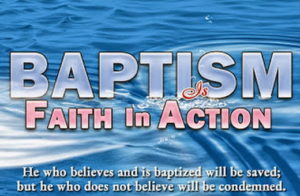 Beloved: Clothe yourselves with humility in your dealings with one another, for: God opposes the proud but bestows favor on the humble.
Beloved: Clothe yourselves with humility in your dealings with one another, for: God opposes the proud but bestows favor on the humble.
So humble yourselves under the mighty hand of God, that he may exalt you in due time.Cast all your worries upon him because he cares for you.
Be sober and vigilant. Your opponent the devil is prowling around like a roaring lion looking for (someone) to devour.
Resist him, steadfast in faith, knowing that your fellow believers throughout the world undergo the same sufferings.
The God of all grace who called you to his eternal glory through Christ (Jesus) will himself restore, confirm, strengthen, and establish you after you have suffered a little.To him be dominion forever. Amen.
I write you this briefly through Silvanus, whom I consider a faithful brother, exhorting you and testifying that this is the true grace of God. Remain firm in it.The chosen one at Babylon sends you greeting, as does Mark, my son.
Greet one another with a loving kiss. Peace to all of you who are in Christ.
Gospel Saint Mark 16,15-20
Jesus said to the eleven: “Go into the whole world and proclaim the Gospel to every creature. Whoever believes and is baptized will be saved; whoever does not believe will be condemned. These signs will accompany those who believe: in my name they will drive out demons, they will speak new languages. They will pick up serpents (with their hands), and if they drink any deadly thing, it will not harm them. They will lay hands on the sick, and they will recover.” So then the Lord Jesus, after he spoke to them, was taken up into heaven and took his seat at the right hand of God.
But they went forth and preached everywhere, while the Lord worked with them and confirmed the word through accompanying signs.
24/2/20 Friday of the 2nd week of Eastertide
 First Reading Acts 5:34-42
First Reading Acts 5:34-42
One member of the Sanhedrin, a Pharisee called Gamaliel, who was a doctor of the Law and respected by the whole people, stood up and asked to have the apostles taken outside for a time. Then he addressed the Sanhedrin, ‘Men of Israel, be careful how you deal with these people. There was Theudas who became notorious not so long ago. He claimed to be someone important, and he even collected about four hundred followers; but when he was killed, all his followers scattered and that was the end of them. And then there was Judas the Galilean, at the time of the census, who attracted crowds of supporters; but he got killed too, and all his followers dispersed. What I suggest, therefore, is that you leave these men alone and let them go. If this enterprise, this movement of theirs, is of human origin it will break up of its own accord; but if it does in fact come from God you will not only be unable to destroy them, but you might find yourselves fighting against God.’
His advice was accepted; and they had the apostles called in, gave orders for them to be flogged, warned them not to speak in the name of Jesus and released them. And so they left the presence of the Sanhedrin glad to have had the honour of suffering humiliation for the sake of the name.
They preached every day both in the Temple and in private houses, and their proclamation of the Good News of Christ Jesus was never interrupted.
Gospel John 6:1-15
Jesus went off to the other side of the Sea of Galilee – or of Tiberias – and a large crowd followed him, impressed by the signs he gave by curing the sick. Jesus climbed the hillside, and sat down there with his disciples. It was shortly before the Jewish feast of Passover.
Looking up, Jesus saw the crowds approaching and said to Philip, ‘Where can we buy some bread for these people to eat?’ He only said this to test Philip; he himself knew exactly what he was going to do. Philip answered, ‘Two hundred denarii would only buy enough to give them a small piece each.’ One of his disciples, Andrew, Simon Peter’s brother, said, ‘There is a small boy here with five barley loaves and two fish; but what is that between so many?’ Jesus said to them, ‘Make the people sit down.’ There was plenty of grass there, and as many as five thousand men sat down. Then Jesus took the loaves, gave thanks, and gave them out to all who were sitting ready; he then did the same with the fish, giving out as much as was wanted. When they had eaten enough he said to the disciples, ‘Pick up the pieces left over, so that nothing gets wasted.’ So they picked them up, and filled twelve hampers with scraps left over from the meal of five barley loaves. The people, seeing this sign that he had given, said, ‘This really is the prophet who is to come into the world.’ Jesus, who could see they were about to come and take him by force and make him king, escaped back to the hills by himself.
23/4/20 Thursday of the 2nd week of Eastertide
 First Reading Acts 5:27-33
First Reading Acts 5:27-33
When the officials had brought the apostles in to face the Sanhedrin, the high priest demanded an explanation. ‘We gave you a formal warning’ he said ‘not to preach in this name, and what have you done? You have filled Jerusalem with your teaching, and seem determined to fix the guilt of this man’s death on us.’ In reply Peter and the apostles said, ‘Obedience to God comes before obedience to men; it was the God of our ancestors who raised up Jesus, but it was you who had him executed by hanging on a tree. By his own right hand God has now raised him up to be leader and saviour, to give repentance and forgiveness of sins through him to Israel. We are witnesses to all this, we and the Holy Spirit whom God has given to those who obey him.’
This so infuriated them that they wanted to put them to death.
Gospel John 3:31-36
John the Baptist said to his disciples: ‘He who comes from above is above all others;
he who is born of the earth is earthly himself and speaks in an earthly way. He who comes from heaven bears witness to the things he has seen and heard, even if his testimony is not accepted; though all who do accept his testimony are attesting the truthfulness of God, since he whom God has sent speaks God’s own words: God gives him the Spirit without reserve. The Father loves the Son and has entrusted everything to him. Anyone who believes in the Son has eternal life, but anyone who refuses to believe in the Son will never see life: the anger of God stays on him.’
22/4/20 Wednesday of the 2nd week of Eastertide
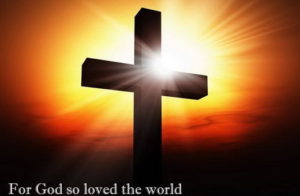 First Reading Acts 5:17-26
First Reading Acts 5:17-26
The high priest intervened with all his supporters from the party of the Sadducees. Prompted by jealousy, they arrested the apostles and had them put in the common gaol. But at night the angel of the Lord opened the prison gates and said as he led them out, ‘Go and stand in the Temple, and tell the people all about this new Life.’ They did as they were told; they went into the Temple at dawn and began to preach.
When the high priest arrived, he and his supporters convened the Sanhedrin – this was the full Senate of Israel – and sent to the gaol for them to be brought. But when the officials arrived at the prison they found they were not inside, so they went back and reported, ‘We found the gaol securely locked and the warders on duty at the gates, but when we unlocked the door we found no one inside.’ When the captain of the Temple and the chief priests heard this news they wondered what this could mean. Then a man arrived with fresh news. ‘At this very moment’ he said, ‘the men you imprisoned are in the Temple. They are standing there preaching to the people.’ The captain went with his men and fetched them. They were afraid to use force in case the people stoned them.
Gospel John 3:16-21
Jesus said to Nicodemus: ‘God loved the world so much that he gave his only Son, so that everyone who believes in him may not be lost but may have eternal life. For God sent his Son into the world not to condemn the world, but so that through him the world might be saved. No one who believes in him will be condemned; but whoever refuses to believe is condemned already, because he has refused to believe in the name of God’s only Son. On these grounds is sentence pronounced: that though the light has come into the world men have shown they prefer darkness to the light because their deeds were evil. And indeed, everybody who does wrong hates the light and avoids it, for fear his actions should be exposed; but the man who lives by the truth comes out into the light, so that it may be plainly seen that what he does is done in God.’.
21/4/20 Tuesday of the 2nd week of Eastertide
 First Reading Acts 4:32-37
First Reading Acts 4:32-37
The whole group of believers was united, heart and soul; no one claimed for his own use anything that he had, as everything they owned was held in common.
The apostles continued to testify to the resurrection of the Lord Jesus with great power, and they were all given great respect.
None of their members was ever in want, as all those who owned land or houses would sell them, and bring the money from them, to present it to the apostles; it was then distributed to any members who might be in need.
There was a Levite of Cypriot origin called Joseph whom the apostles surnamed Barnabas (which means ‘son of encouragement’). He owned a piece of land and he sold it and brought the money, and presented it to the apostles.
Gospel John 3:7-15
Jesus said to Nicodemus: ‘Do not be surprised when I say: You must be born from above. The wind blows wherever it pleases; you hear its sound, but you cannot tell where it comes from or where it is going. That is how it is with all who are born of the Spirit.’ ‘How can that be possible?’ asked Nicodemus. ‘You, a teacher in Israel, and you do not know these things!’ replied Jesus. ‘I tell you most solemnly, we speak only about what we know and witness only to what we have seen and yet you people reject our evidence. If you do not believe me when I speak about things in this world, how are you going to believe me when I speak to you about heavenly things? No one has gone up to heaven except the one who came down from heaven, the Son of Man who is in heaven; and the Son of Man must be lifted up as Moses lifted up the serpent in the desert, so that everyone who believes may have eternal life in him.’
20/4/20 Monday of the 2nd week of Eastertide
 First Reading Acts 4:23-31
First Reading Acts 4:23-31
As soon as Peter and John were released they went to the community and told them everything the chief priests and elders had said to them. When they heard it they lifted up their voice to God all together. ‘Master,’ they prayed ‘it is you who made heaven and earth and sea, and everything in them; you it is who said through the Holy Spirit and speaking through our ancestor David, your servant:
Why this arrogance among the nations, these futile plots among the peoples? Kings on earth setting out to war, princes making an alliance, against the Lord and against his Anointed.
‘This is what has come true: in this very city Herod and Pontius Pilate made an alliance with the pagan nations and the peoples of Israel, against your holy servant Jesus whom you anointed, but only to bring about the very thing that you in your strength and your wisdom had predetermined should happen. And now, Lord, take note of their threats and help your servants to proclaim your message with all boldness, by stretching out your hand to heal and to work miracles and marvels through the name of your holy servant Jesus.’ As they prayed, the house where they were assembled rocked; they were all filled with the Holy Spirit and began to proclaim the word of God boldly.
Gospel John 3:1-8
There was one of the Pharisees called Nicodemus, a leading Jew, who came to Jesus by night and said, ‘Rabbi, we know that you are a teacher who comes from God; for no one could perform the signs that you do unless God were with him.’ Jesus answered: ‘I tell you most solemnly, unless a man is born from above, he cannot see the kingdom of God.’ Nicodemus said, ‘How can a grown man be born? Can he go back into his mother’s womb and be born again?’ Jesus replied: ‘I tell you most solemnly, unless a man is born through water and the Spirit, he cannot enter the kingdom of God: what is born of the flesh is flesh; what is born of the Spirit is spirit.
Do not be surprised when I say: You must be born from above. The wind blows wherever it pleases; you hear its sound, but you cannot tell where it comes from or where it is going. That is how it is with all who are born of the Spirit.’
19/4/20 Divine Mercy Sunday (2nd Sunday of Easter)
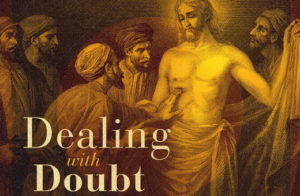 First Reading Acts 2:42-47
First Reading Acts 2:42-47
The whole community remained faithful to the teaching of the apostles, to the brotherhood, to the breaking of bread and to the prayers.
The many miracles and signs worked through the apostles made a deep impression on everyone.
The faithful all lived together and owned everything in common; they sold their goods and possessions and shared out the proceeds among themselves according to what each one needed.
They went as a body to the Temple every day but met in their houses for the breaking of bread; they shared their food gladly and generously; they praised God and were looked up to by everyone. Day by day the Lord added to their community those destined to be saved.
Second Reading 1 Peter 1:3-9
Blessed be God the Father of our Lord Jesus Christ, who in his great mercy has given us a new birth as his sons, by raising Jesus Christ from the dead, so that we have a sure hope and the promise of an inheritance that can never be spoilt or soiled and never fade away, because it is being kept for you in the heavens. Through your faith, God’s power will guard you until the salvation which has been prepared is revealed at the end of time. This is a cause of great joy for you, even though you may for a short time have to bear being plagued by all sorts of trials; so that, when Jesus Christ is revealed, your faith will have been tested and proved like gold – only it is more precious than gold, which is corruptible even though it bears testing by fire – and then you will have praise and glory and honour. You did not see him, yet you love him; and still without seeing him, you are already filled with a joy so glorious that it cannot be described, because you believe; and you are sure of the end to which your faith looks forward, that is, the salvation of your souls.
Gospel John 20:19-31
In the evening of that same day, the first day of the week, the doors were closed in the room where the disciples were, for fear of the Jews. Jesus came and stood among them. He said to them, ‘Peace be with you’, and showed them his hands and his side. The disciples were filled with joy when they saw the Lord, and he said to them again, ‘Peace be with you.
‘As the Father sent me,
so am I sending you.’
After saying this he breathed on them and said:
‘Receive the Holy Spirit.
For those whose sins you forgive,
they are forgiven;
for those whose sins you retain,
they are retained.’
Thomas, called the Twin, who was one of the Twelve, was not with them when Jesus came. When the disciples said, ‘We have seen the Lord’, he answered, ‘Unless I see the holes that the nails made in his hands and can put my finger into the holes they made, and unless I can put my hand into his side, I refuse to believe.’ Eight days later the disciples were in the house again and Thomas was with them. The doors were closed, but Jesus came in and stood among them. ‘Peace be with you’ he said. Then he spoke to Thomas, ‘Put your finger here; look, here are my hands. Give me your hand; put it into my side. Doubt no longer but believe.’ Thomas replied, ‘My Lord and my God!’ Jesus said to him:
‘You believe because you can see me.
Happy are those who have not seen and yet believe.’
There were many other signs that Jesus worked and the disciples saw, but they are not recorded in this book. These are recorded so that you may believe that Jesus is the Christ, the Son of God, and that believing this you may have life through his name.
18/4/20 Easter Saturday
 First Reading Acts 4:13-21
First Reading Acts 4:13-21
The rulers, elders and scribes were astonished at the assurance shown by Peter and John, considering they were uneducated laymen; and they recognised them as associates of Jesus; but when they saw the man who had been cured standing by their side, they could find no answer. So they ordered them to stand outside while the Sanhedrin had a private discussion. ‘What are we going to do with these men?’ they asked. ‘It is obvious to everybody in Jerusalem that a miracle has been worked through them in public, and we cannot deny it. But to stop the whole thing spreading any further among the people, let us caution them never to speak to anyone in this name again.’
So they called them in and gave them a warning on no account to make statements or to teach in the name of Jesus. But Peter and John retorted, ‘You must judge whether in God’s eyes it is right to listen to you and not to God. We cannot promise to stop proclaiming what we have seen and heard.’ The court repeated the warnings and then released them; they could not think of any way to punish them, since all the people were giving glory to God for what had happened.
Gospel Mark 16:9-15
Having risen in the morning on the first day of the week, Jesus appeared first to Mary of Magdala from whom he had cast out seven devils. She then went to those who had been his companions, and who were mourning and in tears, and told them. But they did not believe her when they heard her say that he was alive and that she had seen him.
After this, he showed himself under another form to two of them as they were on their way into the country. These went back and told the others, who did not believe them either.
Lastly, he showed himself to the Eleven themselves while they were at table. He reproached them for their incredulity and obstinacy, because they had refused to believe those who had seen him after he had risen. And he said to them, ‘Go out to the whole world; proclaim the Good News to all creation.’
17/4/20 Easter Friday
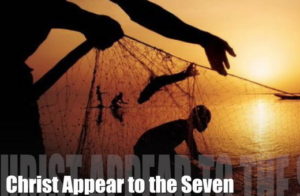 First Reading Acts 4:1-12
First Reading Acts 4:1-12
While Peter and John were talking to the people the priests came up to them, accompanied by the captain of the Temple and the Sadducees. They were extremely annoyed at their teaching the people the doctrine of the resurrection from the dead by proclaiming the resurrection of Jesus. They arrested them, but as it was already late, they held them till the next day. But many of those who had listened to their message became believers, the total number of whom had now risen to something like five thousand.
The next day the rulers, elders and scribes had a meeting in Jerusalem with Annas the high priest, Caiaphas, Jonathan, Alexander and all the members of the high-priestly families. They made the prisoners stand in the middle and began to interrogate them, ‘By what power, and by whose name have you men done this?’ Then Peter, filled with the Holy Spirit, addressed them, ‘Rulers of the people, and elders! If you are questioning us today about an act of kindness to a cripple, and asking us how he was healed, then I am glad to tell you all, and would indeed be glad to tell the whole people of Israel, that it was by the name of Jesus Christ the Nazarene, the one you crucified, whom God raised from the dead, by this name and by no other that this man is able to stand up perfectly healthy, here in your presence, today. This is the stone rejected by you the builders, but which has proved to be the keystone. For of all the names in the world given to men, this is the only one by which we can be saved.’
Gospel John 21:1-14
Jesus showed himself again to the disciples. It was by the Sea of Tiberias, and it happened like this: Simon Peter, Thomas called the Twin, Nathanael from Cana in Galilee, the sons of Zebedee and two more of his disciples were together. Simon Peter said, ‘I’m going fishing.’ They replied, ‘We’ll come with you.’ They went out and got into the boat but caught nothing that night.
It was light by now and there stood Jesus on the shore, though the disciples did not realise that it was Jesus. Jesus called out, ‘Have you caught anything, friends?’ And when they answered, ‘No’, he said, ‘Throw the net out to starboard and you’ll find something.’ So they dropped the net, and there were so many fish that they could not haul it in. The disciple Jesus loved said to Peter, ‘It is the Lord.’ At these words ‘It is the Lord’, Simon Peter, who had practically nothing on, wrapped his cloak round him and jumped into the water. The other disciples came on in the boat, towing the net and the fish; they were only about a hundred yards from land.
As soon as they came ashore they saw that there was some bread there, and a charcoal fire with fish cooking on it. Jesus said, ‘Bring some of the fish you have just caught.’ Simon Peter went aboard and dragged the net to the shore, full of big fish, one hundred and fifty-three of them; and in spite of there being so many the net was not broken. Jesus said to them, ‘Come and have breakfast.’ None of the disciples was bold enough to ask, ‘Who are you?’; they knew quite well it was the Lord. Jesus then stepped forward, took the bread and gave it to them, and the same with the fish. This was the third time that Jesus showed himself to the disciples after rising from the dead.
16/4/20 Easter Thursday
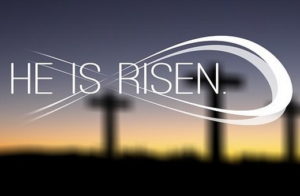 First Reading Acts 3:11-26
First Reading Acts 3:11-26
Everyone came running towards Peter and John in great excitement, to the Portico of Solomon, as it is called, where the man was still clinging to Peter and John. When Peter saw the people he addressed them, ‘Why are you so surprised at this? Why are you staring at us as though we had made this man walk by our own power or holiness? You are Israelites, and it is the God of Abraham, Isaac and Jacob, the God of our ancestors, who has glorified his servant Jesus, the same Jesus you handed over and then disowned in the presence of Pilate after Pilate had decided to release him. It was you who accused the Holy One, the Just One, you who demanded the reprieve of a murderer while you killed the prince of life. God, however, raised him from the dead, and to that fact we are the witnesses; and it is the name of Jesus which, through our faith in it, has brought back the strength of this man whom you see here and who is well known to you. It is faith in that name that has restored this man to health, as you can all see.
‘Now I know, brothers, that neither you nor your leaders had any idea what you were really doing; this was the way God carried out what he had foretold, when he said through all his prophets that his Christ would suffer. Now you must repent and turn to God, so that your sins may be wiped out, and so that the Lord may send the time of comfort. Then he will send you the Christ he has predestined, that is Jesus, whom heaven must keep till the universal restoration comes which God proclaimed, speaking through his holy prophets. Moses, for example, said: The Lord God will raise up a prophet like myself for you, from among your own brothers; you must listen to whatever he tells you. The man who does not listen to that prophet is to be cut off from the people. In fact, all the prophets that have ever spoken, from Samuel onwards, have predicted these days.
‘You are the heirs of the prophets, the heirs of the covenant God made with our ancestors when he told Abraham: in your offspring all the families of the earth will be blessed. It was for you in the first place that God raised up his servant and sent him to bless you by turning every one of you from your wicked ways.’
Gospel Luke 24:35-48
The disciples told their story of what had happened on the road and how they had recognised Jesus at the breaking of bread.
They were still talking about all this when Jesus himself stood among them and said to them, ‘Peace be with you!’ In a state of alarm and fright, they thought they were seeing a ghost. But he said, ‘Why are you so agitated, and why are these doubts rising in your hearts? Look at my hands and feet; yes, it is I indeed. Touch me and see for yourselves; a ghost has no flesh and bones as you can see I have.’ And as he said this he showed them his hands and feet. Their joy was so great that they still could not believe it, and they stood there dumbfounded; so he said to them, ‘Have you anything here to eat?’ And they offered him a piece of grilled fish, which he took and ate before their eyes.
Then he told them, ‘This is what I meant when I said, while I was still with you, that everything written about me in the Law of Moses, in the Prophets and in the Psalms has to be fulfilled.’ He then opened their minds to understand the scriptures, and he said to them, ‘So you see how it is written that the Christ would suffer and on the third day rise from the dead, and that, in his name, repentance for the forgiveness of sins would be preached to all the nations, beginning from Jerusalem. You are witnesses to this.’
15/4/20 Easter Wednesday
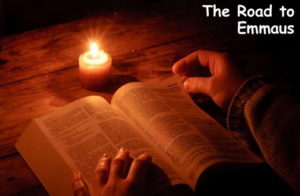 First Reading Acts 3:1-10
First Reading Acts 3:1-10
Once, when Peter and John were going up to the Temple for the prayers at the ninth hour, it happened that there was a man being carried past. He was a cripple from birth; and they used to put him down every day near the Temple entrance called the Beautiful Gate so that he could beg from the people going in. When this man saw Peter and John on their way into the Temple he begged from them. Both Peter and John looked straight at him and said, ‘Look at us.’ He turned to them expectantly, hoping to get something from them, but Peter said, ‘I have neither silver nor gold, but I will give you what I have: in the name of Jesus Christ the Nazarene, walk!’ Peter then took him by the hand and helped him to stand up. Instantly his feet and ankles became firm, he jumped up, stood, and began to walk, and he went with them into the Temple, walking and jumping and praising God. Everyone could see him walking and praising God, and they recognised him as the man who used to sit begging at the Beautiful Gate of the Temple. They were all astonished and unable to explain what had happened to him.
Gospel Luke 24:13-35
Two of the disciples of Jesus were on their way to a village called Emmaus, seven miles from Jerusalem, and they were talking together about all that had happened. Now as they talked this over, Jesus himself came up and walked by their side; but something prevented them from recognising him. He said to them, ‘What matters are you discussing as you walk along?’ They stopped short, their faces downcast.
Then one of them, called Cleopas, answered him, ‘You must be the only person staying in Jerusalem who does not know the things that have been happening there these last few days.’ ‘What things?’ he asked. ‘All about Jesus of Nazareth’ they answered ‘who proved he was a great prophet by the things he said and did in the sight of God and of the whole people; and how our chief priests and our leaders handed him over to be sentenced to death, and had him crucified. Our own hope had been that he would be the one to set Israel free. And this is not all: two whole days have gone by since it all happened; and some women from our group have astounded us: they went to the tomb in the early morning, and when they did not find the body, they came back to tell us they had seen a vision of angels who declared he was alive. Some of our friends went to the tomb and found everything exactly as the women had reported, but of him they saw nothing.’
Then he said to them, ‘You foolish men! So slow to believe the full message of the prophets! Was it not ordained that the Christ should suffer and so enter into his glory?’ Then, starting with Moses and going through all the prophets, he explained to them the passages throughout the scriptures that were about himself.
When they drew near to the village to which they were going, he made as if to go on; but they pressed him to stay with them. ‘It is nearly evening’ they said ‘and the day is almost over.’ So he went in to stay with them. Now while he was with them at table, he took the bread and said the blessing; then he broke it and handed it to them. And their eyes were opened and they recognised him; but he had vanished from their sight. Then they said to each other, ‘Did not our hearts burn within us as he talked to us on the road and explained the scriptures to us?’
They set out that instant and returned to Jerusalem. There they found the Eleven assembled together with their companions, who said to them, ‘Yes, it is true. The Lord has risen and has appeared to Simon.’ Then they told their story of what had happened on the road and how they had recognised him at the breaking of bread.
14/4/20 Easter Tuesday
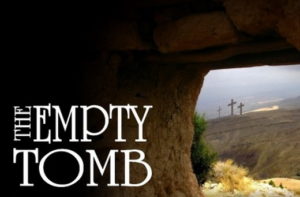 First Reading Acts 2:36-41
First Reading Acts 2:36-41
On the day of Pentecost, Peter spoke to the Jews: ‘The whole House of Israel can be certain that God has made this Jesus whom you crucified both Lord and Christ.’
Hearing this, they were cut to the heart and said to Peter and the apostles, ‘What must we do, brothers?’ ‘You must repent,’ Peter answered ‘and every one of you must be baptised in the name of Jesus Christ for the forgiveness of your sins, and you will receive the gift of the Holy Spirit. The promise that was made is for you and your children, and for all those who are far away, for all those whom the Lord our God will call to himself.’ He spoke to them for a long time using many arguments, and he urged them, ‘Save yourselves from this perverse generation.’ They were convinced by his arguments, and they accepted what he said and were baptised. That very day about three thousand were added to their number.
Gospel John 20:11-18
Mary stayed outside near the tomb, weeping. Then, still weeping, she stooped to look inside, and saw two angels in white sitting where the body of Jesus had been, one at the head, the other at the feet. They said, ‘Woman, why are you weeping?’ ‘They have taken my Lord away’ she replied ‘and I don’t know where they have put him.’ As she said this she turned round and saw Jesus standing there, though she did not recognise him. Jesus said, ‘Woman, why are you weeping? Who are you looking for?’ Supposing him to be the gardener, she said, ‘Sir, if you have taken him away, tell me where you have put him, and I will go and remove him.’ Jesus said, ‘Mary!’ She knew him then and said to him in Hebrew, ‘Rabbuni!’ – which means Master. Jesus said to her, ‘Do not cling to me, because I have not yet ascended to the Father. But go and find the brothers, and tell them: I am ascending to my Father and your Father, to my God and your God.’ So Mary of Magdala went and told the disciples that she had seen the Lord and that he had said these things to her.
13/4/20 Easter Monday
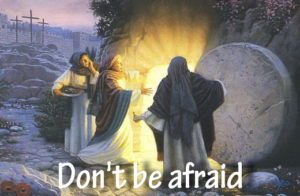 First Reading Acts 2:14,22-33
First Reading Acts 2:14,22-33
On the day of Pentecost Peter stood up with the Eleven and addressed the crowd in a loud voice: ‘Men of Israel, listen to what I am going to say: Jesus the Nazarene was a man commended to you by God by the miracles and portents and signs that God worked through him when he was among you, as you all know. This man, who was put into your power by the deliberate intention and foreknowledge of God, you took and had crucified by men outside the Law. You killed him, but God raised him to life, freeing him from the pangs of Hades; for it was impossible for him to be held in its power since, as David says of him:
I saw the Lord before me always,
for with him at my right hand nothing can shake me.
So my heart was glad
and my tongue cried out with joy;
my body, too, will rest in the hope
that you will not abandon my soul to Hades
nor allow your holy one to experience corruption.
You have made known the way of life to me,
you will fill me with gladness through your presence.
‘Brothers, no one can deny that the patriarch David himself is dead and buried: his tomb is still with us. But since he was a prophet, and knew that God had sworn him an oath to make one of his descendants succeed him on the throne, what he foresaw and spoke about was the resurrection of the Christ: he is the one who was not abandoned to Hades, and whose body did not experience corruption. God raised this man Jesus to life, and all of us are witnesses to that. Now raised to the heights by God’s right hand, he has received from the Father the Holy Spirit, who was promised, and what you see and hear is the outpouring of that Spirit.’
Gospel Matthew 28:8-15
Filled with awe and great joy the women came quickly away from the tomb and ran to tell the disciples.
And there, coming to meet them, was Jesus. ‘Greetings’ he said. And the women came up to him and, falling down before him, clasped his feet. Then Jesus said to them, ‘Do not be afraid; go and tell my brothers that they must leave for Galilee; they will see me there.’
While they were on their way, some of the guard went off into the city to tell the chief priests all that had happened. These held a meeting with the elders and, after some discussion, handed a considerable sum of money to the soldiers with these instructions, ‘This is what you must say, “His disciples came during the night and stole him away while we were asleep.” And should the governor come to hear of this, we undertake to put things right with him ourselves and to see that you do not get into trouble.’ The soldiers took the money and carried out their instructions, and to this day that is the story among the Jews.
12/4/20 Easter Sunday
 First Reading Acts 10:34,37-43
First Reading Acts 10:34,37-43
Peter addressed Cornelius and his household: ‘You must have heard about the recent happenings in Judaea; about Jesus of Nazareth and how he began in Galilee, after John had been preaching baptism. God had anointed him with the Holy Spirit and with power, and because God was with him, Jesus went about doing good and curing all who had fallen into the power of the devil. Now I, and those with me, can witness to everything he did throughout the countryside of Judaea and in Jerusalem itself: and also to the fact that they killed him by hanging him on a tree, yet three days afterwards God raised him to life and allowed him to be seen, not by the whole people but only by certain witnesses God had chosen beforehand. Now we are those witnesses – we have eaten and drunk with him after his resurrection from the dead – and he has ordered us to proclaim this to his people and to tell them that God has appointed him to judge everyone, alive or dead. It is to him that all the prophets bear this witness: that all who believe in Jesus will have their sins forgiven through his name.’
Second Reading Colossians 3:1-4
Since you have been brought back to true life with Christ, you must look for the things that are in heaven, where Christ is, sitting at God’s right hand. Let your thoughts be on heavenly things, not on the things that are on the earth, because you have died, and now the life you have is hidden with Christ in God. But when Christ is revealed – and he is your life – you too will be revealed in all your glory with him.
Gospel John 20:1-9
It was very early on the first day of the week and still dark, when Mary of Magdala came to the tomb. She saw that the stone had been moved away from the tomb and came running to Simon Peter and the other disciple, the one Jesus loved. ‘They have taken the Lord out of the tomb’ she said ‘and we don’t know where they have put him.’
So Peter set out with the other disciple to go to the tomb. They ran together, but the other disciple, running faster than Peter, reached the tomb first; he bent down and saw the linen cloths lying on the ground, but did not go in. Simon Peter who was following now came up, went right into the tomb, saw the linen cloths on the ground, and also the cloth that had been over his head; this was not with the linen cloths but rolled up in a place by itself. Then the other disciple who had reached the tomb first also went in; he saw and he believed. Till this moment they had failed to understand the teaching of scripture, that he must rise from the dead.
11/4/20 Holy Saturday
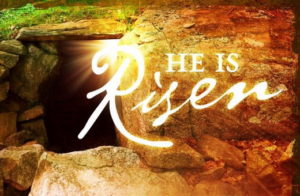 First Reading Genesis 1:1-2:2
First Reading Genesis 1:1-2:2
In the beginning God created the heavens and the earth. Now the earth was a formless void, there was darkness over the deep, and God’s spirit hovered over the water.
God said, ‘Let there be light’, and there was light. God saw that light was good, and God divided light from darkness. God called light ‘day’, and darkness he called ‘night.’ Evening came and morning came: the first day.
God said, ‘Let there be a vault in the waters to divide the waters in two.’ And so it was. God made the vault, and it divided the waters above the vault from the waters under the vault. God called the vault ‘heaven.’ Evening came and morning came: the second day.
God said, ‘Let the waters under heaven come together into a single mass, and let dry land appear.’ And so it was. God called the dry land ‘earth’ and the mass of waters ‘seas’, and God saw that it was good.
God said, ‘Let the earth produce vegetation: seed-bearing plants, and fruit trees bearing fruit with their seed inside, on the earth.’ And so it was. The earth produced vegetation: plants bearing seed in their several kinds, and trees bearing fruit with their seed inside in their several kinds. God saw that it was good. Evening came and morning came: the third day.
God said, ‘Let there be lights in the vault of heaven to divide day from night, and let them indicate festivals, days and years. Let them be lights in the vault of heaven to shine on the earth.’ And so it was. God made the two great lights: the greater light to govern the day, the smaller light to govern the night, and the stars. God set them in the vault of heaven to shine on the earth, to govern the day and the night and to divide light from darkness. God saw that it was good. Evening came and morning came: the fourth day.
God said, ‘Let the waters teem with living creatures, and let birds fly above the earth within the vault of heaven.’ And so it was. God created great sea-serpents and every kind of living creature with which the waters teem, and every kind of winged creature. God saw that it was good. God blessed them, saying, ‘Be fruitful, multiply, and fill the waters of the seas; and let the birds multiply upon the earth.’ Evening came and morning came: the fifth day.
God said, ‘Let the earth produce every kind of living creature: cattle, reptiles, and every kind of wild beast.’ And so it was. God made every kind of wild beast, every kind of cattle, and every kind of land reptile. God saw that it was good.
God said, ‘Let us make man in our own image, in the likeness of ourselves, and let them be masters of the fish of the sea, the birds of heaven, the cattle, all the wild beasts and all the reptiles that crawl upon the earth.’
God created man in the image of himself,
in the image of God he created him,
male and female he created them.
God blessed them, saying to them, ‘Be fruitful, multiply, fill the earth and conquer it. Be masters of the fish of the sea, the birds of heaven and all living animals on the earth.’ God said, ‘See, I give you all the seed-bearing plants that are upon the whole earth, and all the trees with seed-bearing fruit; this shall be your food. To all wild beasts, all birds of heaven and all living reptiles on the earth I give all the foliage of plants for food.’ And so it was. God saw all he had made, and indeed it was very good. Evening came and morning came: the sixth day.
Thus heaven and earth were completed with all their array. On the seventh day God completed the work he had been doing. He rested on the seventh day after all the work he had been doing.
Second Reading Genesis 22:1-18
God put Abraham to the test. ‘Abraham, Abraham’ he called. ‘Here I am’ he replied. ‘Take your son,’ God said ‘your only child Isaac, whom you love, and go to the land of Moriah. There you shall offer him as a burnt offering, on a mountain I will point out to you.’
Rising early next morning Abraham saddled his ass and took with him two of his servants and his son Isaac. He chopped wood for the burnt offering and started on his journey to the place God had pointed out to him. On the third day Abraham looked up and saw the place in the distance. Then Abraham said to his servants, ‘Stay here with the donkey. The boy and I will go over there; we will worship and come back to you.’
Abraham took the wood for the burnt offering, loaded it on Isaac, and carried in his own hands the fire and the knife. Then the two of them set out together. Isaac spoke to his father Abraham, ‘Father’ he said. ‘Yes, my son’ he replied. ‘Look,’ he said ‘here are the fire and the wood, but where is the lamb for the burnt offering?’ Abraham answered, ‘My son, God himself will provide the lamb for the burnt offering.’ Then the two of them went on together.
When they arrived at the place God had pointed out to him, Abraham built an altar there, and arranged the wood. Then he bound his son Isaac and put him on the altar on top of the wood. Abraham stretched out his hand and seized the knife to kill his son.
But the angel of the Lord called to him from heaven. ‘Abraham, Abraham’ he said. ‘I am here’ he replied. ‘Do not raise your hand against the boy’ the angel said. ‘Do not harm him, for now I know you fear God. You have not refused me your son, your only son.’ Then looking up, Abraham saw a ram caught by its horns in a bush. Abraham took the ram and offered it as a burnt-offering in place of his son.
Abraham called this place ‘The Lord Provides’, and hence the saying today: On the mountain the Lord provides.
The angel of the Lord called Abraham a second time from heaven. ‘I swear by my own self – it is the Lord who speaks – because you have done this, because you have not refused me your son, your only son, I will shower blessings on you, I will make your descendants as many as the stars of heaven and the grains of sand on the seashore. Your descendants shall gain possession of the gates of their enemies. All the nations of the earth shall bless themselves by your descendants, as a reward for your obedience.’
Third Reading Exodus 14:15-15:1
The Lord said to Moses, ‘Why do you cry to me so? Tell the sons of Israel to march on. For yourself, raise your staff and stretch out your hand over the sea and part it for the sons of Israel to walk through the sea on dry ground. I for my part will make the heart of the Egyptians so stubborn that they will follow them. So shall I win myself glory at the expense of Pharaoh, of all his army, his chariots, his horsemen. And when I have won glory for myself, at the expense of Pharaoh and his chariots and his army, the Egyptians will learn that I am the Lord.’
Then the angel of God, who marched at the front of the army of Israel, changed station and moved to their rear. The pillar of cloud changed station from the front to the rear of them, and remained there. It came between the camp of the Egyptians and the camp of Israel. The cloud was dark, and the night passed without the armies drawing any closer the whole night long.
Moses stretched out his hand over the sea. The Lord drove back the sea with a strong easterly wind all night, and he made dry land of the sea. The waters parted and the sons of Israel went on dry ground right into the sea, walls of water to right and to left of them. The Egyptians gave chase: after them they went, right into the sea, all Pharaoh’s horses, his chariots, and his horsemen.
In the morning watch, the Lord looked down on the army of the Egyptians from the pillar of fire and of cloud, and threw the army into confusion. He so clogged their chariot wheels that they could scarcely make headway. ‘Let us flee from the Israelites,’ the Egyptians cried. ‘The Lord is fighting for them against the Egyptians!’
‘Stretch out your hand over the sea,’ the Lord said to Moses, ‘that the waters may flow back on the Egyptians and their chariots and their horsemen.’
Moses stretched out his hand over the sea and, as day broke, the sea returned to its bed. The fleeing Egyptians marched right into it, and the Lord overthrew the Egyptians in the very middle of the sea. The returning waters overwhelmed the chariots and the horsemen of Pharaoh’s whole army, which had followed the Israelites into the sea; not a single one of them was left. But the sons of Israel had marched through the sea on dry ground, walls of water to right and to left of them.
That day, the Lord rescued Israel from the Egyptians, and Israel saw the Egyptians lying dead on the shore. Israel witnessed the great act that the Lord had performed against the Egyptians, and the people venerated the Lord; they put their faith in the Lord and in Moses, his servant.
It was then that Moses and the sons of Israel sang this song in honour of the Lord:
Fourth Reading Isaiah 54:5-14
Thus says the Lord: Now your creator will be your husband, his name, the Lord of Hosts; your redeemer will be the Holy One of Israel, he is called the God of the whole earth. Yes, like a forsaken wife, distressed in spirit, the Lord calls you back. Does a man cast off the wife of his youth? says your God. I did forsake you for a brief moment, but with great love will I take you back. In excess of anger, for a moment I hid my face from you. But with everlasting love I have taken pity on you, says the Lord, your redeemer. I am now as I was in the days of Noah when I swore that Noah’s waters should never flood the world again. So now I swear concerning my anger with you and the threats I made against you; for the mountains may depart, the hills be shaken, but my love for you will never leave you and my covenant of peace with you will never be shaken, says the Lord who takes pity on you. Unhappy creature, storm-tossed, disconsolate, see, I will set your stones on carbuncles and your foundations on sapphires. I will make rubies your battlements, your gates crystal, and your entire wall precious stones. Your sons will all be taught by the Lord. The prosperity of your sons will be great. You will be founded on integrity; remote from oppression, you will have nothing to fear; remote from terror, it will not approach you.
Fifth Reading Isaiah 55:1-11
Thus says the Lord: Oh, come to the water all you who are thirsty; though you have no money, come! Buy corn without money, and eat, and, at no cost, wine and milk. Why spend money on what is not bread, your wages on what fails to satisfy? Listen, listen to me, and you will have good things to eat and rich food to enjoy. Pay attention, come to me; listen, and your soul will live. With you I will make an everlasting covenant out of the favours promised to David. See, I have made of you a witness to the peoples, a leader and a master of the nations. See, you will summon a nation you never knew, those unknown will come hurrying to you, for the sake of the Lord your God, of the Holy One of Israel who will glorify you. Seek the Lord while he is still to be found, call to him while he is still near. Let the wicked man abandon his way, the evil man his thoughts. Let him turn back to the Lord who will take pity on him, to our God who is rich in forgiving; for my thoughts are not your thoughts, my ways not your ways – it is the Lord who speaks. Yes, the heavens are as high above earth as my ways are above your ways, my thoughts above your thoughts. Yes, as the rain and the snow come down from the heavens and do not return without watering the earth, making it yield and giving growth to provide seed for the sower and bread for the eating, so the word that goes from my mouth does not return to me empty, without carrying out my will and succeeding in what it was sent to do.
Sixth Reading Baruch 3:9-15,32-4:4
Listen, Israel, to commands that bring life; hear, and learn what knowledge means. Why, Israel, why are you in the country of your enemies, growing older and older in an alien land, sharing defilement with the dead, reckoned with those who go to Sheol? Because you have forsaken the fountain of wisdom. Had you walked in the way of God, you would have lived in peace for ever. Learn where knowledge is, where strength, where understanding, and so learn where length of days is, where life, where the light of the eyes and where peace. But who has found out where she lives, who has entered her treasure house? But the One who knows all knows her, he has grasped her with his own intellect, he has set the earth firm for ever and filled it with four-footed beasts. He sends the light – and it goes, he recalls it – and trembling it obeys; the stars shine joyfully at their set times: when he calls them, they answer, ‘Here we are’; they gladly shine for their creator. It is he who is our God, no other can compare with him. He has grasped the whole way of knowledge, and confided it to his servant Jacob, to Israel his well-beloved; so causing her to appear on earth and move among men. This is the book of the commandments of God, the Law that stands for ever; those who keep her live, those who desert her die. Turn back, Jacob, seize her, in her radiance make your way to light: do not yield your glory to another, your privilege to a people not your own. Israel, blessed are we: what pleases God has been revealed to us.
Seventh Reading Ezekiel 36:16-17,18-28
The word of the Lord was addressed to me as follows: ‘Son of man, the members of the House of Israel used to live in their own land, but they defiled it by their conduct and actions. I then discharged my fury at them because of the blood they shed in their land and the idols with which they defiled it. I scattered them among the nations and dispersed them in foreign countries. I sentenced them as their conduct and actions deserved. And now they have profaned my holy name among the nations where they have gone, so that people say of them, “These are the people of the Lord; they have been exiled from his land.”
‘But I have been concerned about my holy name, which the House of Israel has profaned among the nations where they have gone.
‘And so, say to the House of Israel, “The Lord says this: I am not doing this for your sake, House of Israel, but for the sake of my holy name, which you have profaned among the nations where you have gone. I mean to display the holiness of my great name, which has been profaned among the nations, which you have profaned among them. And the nations will learn that I am the Lord – it is the Lord who speaks – when I display my holiness for your sake before their eyes. Then I am going to take you from among the nations and gather you together from all the foreign countries, and bring you home to your own land.
‘“I shall pour clean water over you and you will be cleansed; I shall cleanse you of all your defilement and all your idols. I shall give you a new heart, and put a new spirit in you; I shall remove the heart of stone from your bodies and give you a heart of flesh instead. I shall put my spirit in you, and make you keep my laws and sincerely respect my observances. You will live in the land which I gave your ancestors. You shall be my people and I will be your God.”’
Epistle Romans 6:3-11
When we were baptised in Christ Jesus we were baptised in his death; in other words, when we were baptised we went into the tomb with him and joined him in death, so that as Christ was raised from the dead by the Father’s glory, we too might live a new life.
If in union with Christ we have imitated his death, we shall also imitate him in his resurrection. We must realise that our former selves have been crucified with him to destroy this sinful body and to free us from the slavery of sin. When a Christian dies, of course, he has finished with sin.
But we believe that having died with Christ we shall return to life with him: Christ, as we know, having been raised from the dead will never die again. Death has no power over him any more. When he died, he died, once for all, to sin, so his life now is life with God; and in that way, you too must consider yourselves to be dead to sin but alive for God in Christ Jesus.
Gospel Matthew 28:1-10
After the sabbath, and towards dawn on the first day of the week, Mary of Magdala and the other Mary went to visit the sepulchre. And all at once there was a violent earthquake, for the angel of the Lord, descending from heaven, came and rolled away the stone and sat on it. His face was like lightning, his robe white as snow. The guards were so shaken, so frightened of him, that they were like dead men. But the angel spoke; and he said to the women, ‘There is no need for you to be afraid. I know you are looking for Jesus, who was crucified. He is not here, for he has risen, as he said he would. Come and see the place where he lay, then go quickly and tell his disciples, “He has risen from the dead and now he is going before you to Galilee; it is there you will see him.” Now I have told you.’ Filled with awe and great joy the women came quickly away from the tomb and ran to tell the disciples.
And there, coming to meet them, was Jesus. ‘Greetings’ he said. And the women came up to him and, falling down before him, clasped his feet. Then Jesus said to them, ‘Do not be afraid; go and tell my brothers that they must leave for Galilee; they will see me there.’
10/4/20 Good Friday
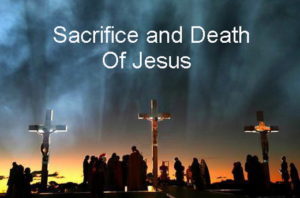 First Reading Isaiah 52:13-53:12
First Reading Isaiah 52:13-53:12
See, my servant will prosper, he shall be lifted up, exalted, rise to great heights. As the crowds were appalled on seeing him – so disfigured did he look that he seemed no longer human – so will the crowds be astonished at him, and kings stand speechless before him; for they shall see something never told and witness something never heard before: ‘Who could believe what we have heard, and to whom has the power of the Lord been revealed?’ Like a sapling he grew up in front of us, like a root in arid ground. Without beauty, without majesty we saw him, no looks to attract our eyes;
a thing despised and rejected by men, a man of sorrows and familiar with suffering,
a man to make people screen their faces; he was despised and we took no account of him. And yet ours were the sufferings he bore, ours the sorrows he carried. But we, we thought of him as someone punished, struck by God, and brought low. Yet he was pierced through for our faults, crushed for our sins. On him lies a punishment that brings us peace, and through his wounds we are healed. We had all gone astray like sheep, each taking his own way, and the Lord burdened him with the sins of all of us.
Harshly dealt with, he bore it humbly, he never opened his mouth, like a lamb that is led to the slaughter-house, like a sheep that is dumb before its shearers never opening its mouth. By force and by law he was taken; would anyone plead his cause? Yes, he was torn away from the land of the living; for our faults struck down in death. They gave him a grave with the wicked, a tomb with the rich, though he had done no wrong
and there had been no perjury in his mouth. The Lord has been pleased to crush him with suffering. If he offers his life in atonement, he shall see his heirs, he shall have a long life and through him what the Lord wishes will be done. His soul’s anguish over
he shall see the light and be content. By his sufferings shall my servant justify many,
taking their faults on himself. Hence I will grant whole hordes for his tribute, he shall divide the spoil with the mighty, for surrendering himself to death and letting himself be taken for a sinner, while he was bearing the faults of many and praying all the time for sinners.
Second Reading Hebrews 4:14-16,5:7-9
Since in Jesus, the Son of God, we have the supreme high priest who has gone through to the highest heaven, we must never let go of the faith that we have professed. For it is not as if we had a high priest who was incapable of feeling our weaknesses with us; but we have one who has been tempted in every way that we are, though he is without sin. Let us be confident, then, in approaching the throne of grace, that we shall have mercy from him and find grace when we are in need of help.
During his life on earth, he offered up prayer and entreaty, aloud and in silent tears, to the one who had the power to save him out of death, and he submitted so humbly that his prayer was heard. Although he was Son, he learnt to obey through suffering; but having been made perfect, he became for all who obey him the source of eternal salvation.
Gospel John 18:1-19:42
Jesus went out with his disciples across the Kidron valley to where there was a garden, into which he and his disciples entered.
Judas his betrayer also knew the place, because Jesus had often met there with his disciples.
So Judas got a band of soldiers and guards from the chief priests and the Pharisees and went there with lanterns, torches, and weapons.
Jesus, knowing everything that was going to happen to him, went out and said to them, “Whom are you looking for?”
They answered him, “Jesus the Nazorean.” He said to them, “I AM.” Judas his betrayer was also with them.
When he said to them, “I AM,” they turned away and fell to the ground.
So he again asked them, “Whom are you looking for?” They said, “Jesus the Nazorean.”
Jesus answered, “I told you that I AM. So if you are looking for me, let these men go.”
This was to fulfill what he had said, “I have not lost any of those you gave me.”
Then Simon Peter, who had a sword, drew it, struck the high priest’s slave, and cut off his right ear. The slave’s name was Malchus.
Jesus said to Peter, “Put your sword into its scabbard. Shall I not drink the cup that the Father gave me?”
So the band of soldiers, the tribune, and the Jewish guards seized Jesus, bound him,
and brought him to Annas first. He was the father-in-law of Caiaphas, who was high priest that year.
It was Caiaphas who had counseled the Jews that it was better that one man should die rather than the people.
Simon Peter and another disciple followed Jesus. Now the other disciple was known to the high priest, and he entered the courtyard of the high priest with Jesus.
But Peter stood at the gate outside. So the other disciple, the acquaintance of the high priest, went out and spoke to the gatekeeper and brought Peter in.
Then the maid who was the gatekeeper said to Peter, “You are not one of this man’s disciples, are you?” He said, “I am not.”
Now the slaves and the guards were standing around a charcoal fire that they had made, because it was cold, and were warming themselves. Peter was also standing there keeping warm.
The high priest questioned Jesus about his disciples and about his doctrine.
Jesus answered him, “I have spoken publicly to the world. I have always taught in a synagogue or in the temple area where all the Jews gather, and in secret I have said nothing.
Why ask me? Ask those who heard me what I said to them. They know what I said.”
When he had said this, one of the temple guards standing there struck Jesus and said, “Is this the way you answer the high priest?”
Jesus answered him, “If I have spoken wrongly, testify to the wrong; but if I have spoken rightly, why do you strike me?”
Then Annas sent him bound to Caiaphas the high priest.
Now Simon Peter was standing there keeping warm. And they said to him, “You are not one of his disciples, are you?” He denied it and said, “I am not.”
One of the slaves of the high priest, a relative of the one whose ear Peter had cut off, said, “Didn’t I see you in the garden with him?”
Again Peter denied it. And immediately the cock crowed.
Then they brought Jesus from Caiaphas to the praetorium. It was morning. And they themselves did not enter the praetorium, in order not to be defiled so that they could eat the Passover.
So Pilate came out to them and said, “What charge do you bring (against) this man?”
They answered and said to him, “If he were not a criminal, we would not have handed him over to you.”
At this, Pilate said to them, “Take him yourselves, and judge him according to your law.” The Jews answered him, “We do not have the right to execute anyone,”
in order that the word of Jesus might be fulfilled that he said indicating the kind of death he would die.
So Pilate went back into the praetorium and summoned Jesus and said to him, “Are you the King of the Jews?”
Jesus answered, “Do you say this on your own or have others told you about me?”
Pilate answered, “I am not a Jew, am I? Your own nation and the chief priests handed you over to me. What have you done?”
Jesus answered, “My kingdom does not belong to this world. If my kingdom did belong to this world, my attendants (would) be fighting to keep me from being handed over to the Jews. But as it is, my kingdom is not here.”
So Pilate said to him, “Then you are a king?” Jesus answered, “You say I am a king. For this I was born and for this I came into the world, to testify to the truth. Everyone who belongs to the truth listens to my voice.”
Pilate said to him, “What is truth?” When he had said this, he again went out to the Jews and said to them, “I find no guilt in him.
But you have a custom that I release one prisoner to you at Passover. Do you want me to release to you the King of the Jews?”
They cried out again, “Not this one but Barabbas!” Now Barabbas was a revolutionary.
Then Pilate took Jesus and had him scourged.
And the soldiers wove a crown out of thorns and placed it on his head, and clothed him in a purple cloak,
and they came to him and said, “Hail, King of the Jews!” And they struck him repeatedly.
Once more Pilate went out and said to them, “Look, I am bringing him out to you, so that you may know that I find no guilt in him.”
So Jesus came out, wearing the crown of thorns and the purple cloak. And he said to them, “Behold, the man!”
When the chief priests and the guards saw him they cried out, “Crucify him, crucify him!” Pilate said to them, “Take him yourselves and crucify him. I find no guilt in him.”
The Jews answered, “We have a law, and according to that law he ought to die, because he made himself the Son of God.”
Now when Pilate heard this statement, he became even more afraid,
and went back into the praetorium and said to Jesus, “Where are you from?” Jesus did not answer him.
So Pilate said to him, “Do you not speak to me? Do you not know that I have power to release you and I have power to crucify you?”
Jesus answered (him), “You would have no power over me if it had not been given to you from above. For this reason the one who handed me over to you has the greater sin.”
Consequently, Pilate tried to release him; but the Jews cried out, “If you release him, you are not a Friend of Caesar. Everyone who makes himself a king opposes Caesar.”
When Pilate heard these words he brought Jesus out and seated him on the judge’s bench in the place called Stone Pavement, in Hebrew, Gabbatha.
It was preparation day for Passover, and it was about noon. And he said to the Jews, “Behold, your king!”
They cried out, “Take him away, take him away! Crucify him!” Pilate said to them, “Shall I crucify your king?” The chief priests answered, “We have no king but Caesar.”
Then he handed him over to them to be crucified. So they took Jesus,
and carrying the cross himself he went out to what is called the Place of the Skull, in Hebrew, Golgotha.
There they crucified him, and with him two others, one on either side, with Jesus in the middle.
Pilate also had an inscription written and put on the cross. It read, “Jesus the Nazorean, the King of the Jews.”
Now many of the Jews read this inscription, because the place where Jesus was crucified was near the city; and it was written in Hebrew, Latin, and Greek.
So the chief priests of the Jews said to Pilate, “Do not write ‘The King of the Jews,’ but that he said, ‘I am the King of the Jews.'”
Pilate answered, “What I have written, I have written.”
When the soldiers had crucified Jesus, they took his clothes and divided them into four shares, a share for each soldier. They also took his tunic, but the tunic was seamless, woven in one piece from the top down.
So they said to one another, “Let’s not tear it, but cast lots for it to see whose it will be,” in order that the passage of scripture might be fulfilled (that says): “They divided my garments among them, and for my vesture they cast lots.” This is what the soldiers did.
Standing by the cross of Jesus were his mother and his mother’s sister, Mary the wife of Clopas, and Mary of Magdala.
When Jesus saw his mother and the disciple there whom he loved, he said to his mother, “Woman, behold, your son.”
Then he said to the disciple, “Behold, your mother.” And from that hour the disciple took her into his home.
After this, aware that everything was now finished, in order that the scripture might be fulfilled, Jesus said, “I thirst.”
There was a vessel filled with common wine. So they put a sponge soaked in wine on a sprig of hyssop and put it up to his mouth.
When Jesus had taken the wine, he said, “It is finished.” And bowing his head, he handed over the spirit.
Now since it was preparation day, in order that the bodies might not remain on the cross on the sabbath, for the sabbath day of that week was a solemn one, the Jews asked Pilate that their legs be broken and they be taken down.
So the soldiers came and broke the legs of the first and then of the other one who was crucified with Jesus.
But when they came to Jesus and saw that he was already dead, they did not break his legs,
but one soldier thrust his lance into his side, and immediately blood and water flowed out.
An eyewitness has testified, and his testimony is true; he knows that he is speaking the truth, so that you also may (come to) believe.
For this happened so that the scripture passage might be fulfilled: “Not a bone of it will be broken.”
And again another passage says: “They will look upon him whom they have pierced.”
After this, Joseph of Arimathea, secretly a disciple of Jesus for fear of the Jews, asked Pilate if he could remove the body of Jesus. And Pilate permitted it. So he came and took his body.
Nicodemus, the one who had first come to him at night, also came bringing a mixture of myrrh and aloes weighing about one hundred pounds.
They took the body of Jesus and bound it with burial cloths along with the spices, according to the Jewish burial custom.
Now in the place where he had been crucified there was a garden, and in the garden a new tomb, in which no one had yet been buried.
So they laid Jesus there because of the Jewish preparation day; for the tomb was close by.
9/4/20 Maundy Thursday
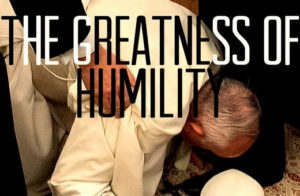 First Reading Exodus 12:1-8,11-14
First Reading Exodus 12:1-8,11-14
The Lord said to Moses and Aaron in the land of Egypt:
‘This month is to be the first of all the others for you, the first month of your year. Speak to the whole community of Israel and say, “On the tenth day of this month each man must take an animal from the flock, one for each family: one animal for each household. If the household is too small to eat the animal, a man must join with his neighbour, the nearest to his house, as the number of persons requires. You must take into account what each can eat in deciding the number for the animal. It must be an animal without blemish, a male one year old; you may take it from either sheep or goats. You must keep it till the fourteenth day of the month when the whole assembly of the community of Israel shall slaughter it between the two evenings. Some of the blood must then be taken and put on the two doorposts and the lintel of the houses where it is eaten. That night, the flesh is to be eaten, roasted over the fire; it must be eaten with unleavened bread and bitter herbs. You shall eat it like this: with a girdle round your waist, sandals on your feet, a staff in your hand. You shall eat it hastily: it is a passover in honour of the Lord. That night, I will go through the land of Egypt and strike down all the first-born in the land of Egypt, man and beast alike, and I shall deal out punishment to all the gods of Egypt. I am the Lord! The blood shall serve to mark the houses that you live in. When I see the blood I will pass over you and you shall escape the destroying plague when I strike the land of Egypt. This day is to be a day of remembrance for you, and you must celebrate it as a feast in the Lord’s honour. For all generations you are to declare it a day of festival, for ever.”’
Second Reading 1 Corinthians 11:23-26
This is what I received from the Lord, and in turn passed on to you: that on the same night that he was betrayed, the Lord Jesus took some bread, and thanked God for it and broke it, and he said, ‘This is my body, which is for you; do this as a memorial of me.’ In the same way he took the cup after supper, and said, ‘This cup is the new covenant in my blood. Whenever you drink it, do this as a memorial of me.’ Until the Lord comes, therefore, every time you eat this bread and drink this cup, you are proclaiming his death.
Gospel John 13:1-15
It was before the festival of the Passover, and Jesus knew that the hour had come for him to pass from this world to the Father. He had always loved those who were his in the world, but now he showed how perfect his love was.
They were at supper, and the devil had already put it into the mind of Judas Iscariot son of Simon, to betray him. Jesus knew that the Father had put everything into his hands, and that he had come from God and was returning to God, and he got up from table, removed his outer garment and, taking a towel, wrapped it round his waist; he then poured water into a basin and began to wash the disciples’ feet and to wipe them with the towel he was wearing. He came to Simon Peter, who said to him, ‘Lord, are you going to wash my feet?’ Jesus answered, ‘At the moment you do not know what I am doing, but later you will understand.’ ‘Never!’ said Peter ‘You shall never wash my feet.’ Jesus replied, ‘If I do not wash you, you can have nothing in common with me.’ ‘Then, Lord,’ said Simon Peter ‘not only my feet, but my hands and my head as well!’ Jesus said, ‘No one who has taken a bath needs washing, he is clean all over. You too are clean, though not all of you are.’ He knew who was going to betray him, that was why he said, ‘though not all of you are.’
When he had washed their feet and put on his clothes again he went back to the table. ‘Do you understand’ he said ‘what I have done to you? You call me Master and Lord, and rightly; so I am. If I, then, the Lord and Master, have washed your feet, you should wash each other’s feet. I have given you an example so that you may copy what I have done to you.’
8/4/20 Wednesday of Holy Week
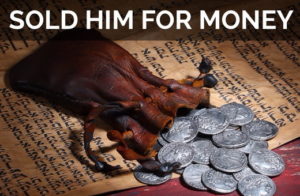 First Reading Isaiah 50:4-9
First Reading Isaiah 50:4-9
The Lord has given me a disciple’s tongue. So that I may know how to reply to the wearied he provides me with speech. Each morning he wakes me to hear, to listen like a disciple. The Lord has opened my ear. For my part, I made no resistance, neither did I turn away. I offered my back to those who struck me, my cheeks to those who tore at my beard; I did not cover my face against insult and spittle. The Lord comes to my help, so that I am untouched by the insults. So, too, I set my face like flint; I know I shall not be shamed. My vindicator is here at hand. Does anyone start proceedings against me? Then let us go to court together. Who thinks he has a case against me?
Let him approach me. The Lord is coming to my help, who will dare to condemn me?
Gospel Matthew 26:14-25
One of the Twelve, the man called Judas Iscariot, went to the chief priests and said, ‘What are you prepared to give me if I hand him over to you?’ They paid him thirty silver pieces, and from that moment he looked for an opportunity to betray him.
Now on the first day of Unleavened Bread the disciples came to Jesus to say, ‘Where do you want us to make the preparations for you to eat the passover?’ ‘Go to so-and-so in the city’ he replied ‘and say to him, “The Master says: My time is near. It is at your house that I am keeping Passover with my disciples.”’ The disciples did what Jesus told them and prepared the Passover.
When evening came he was at table with the twelve disciples. And while they were eating he said ‘I tell you solemnly, one of you is about to betray me.’ They were greatly distressed and started asking him in turn, ‘Not I, Lord, surely?’ He answered, ‘Someone who has dipped his hand into the dish with me, will betray me. The Son of Man is going to his fate, as the scriptures say he will, but alas for that man by whom the Son of Man is betrayed! Better for that man if he had never been born!’ Judas, who was to betray him; asked in his turn, ‘Not I, Rabbi, surely?’ ‘They are your own words’ answered Jesus.
7/4/20 Monday of Holy Week
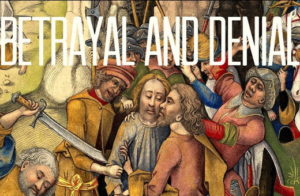 First Reading Isaiah 42:1-7
First Reading Isaiah 42:1-7
Here is my servant whom I uphold, my chosen one in whom my soul delights. I have endowed him with my spirit that he may bring true justice to the nations. He does not cry out or shout aloud, or make his voice heard in the streets. He does not break the crushed reed, nor quench the wavering flame. Faithfully he brings true justice; he will neither waver, nor be crushed until true justice is established on earth, for the islands are awaiting his law. Thus says God, the Lord, he who created the heavens and spread them out, who gave shape to the earth and what comes from it, who gave breath to its people and life to the creatures that move in it: ‘I, the Lord, have called you to serve the cause of right; I have taken you by the hand and formed you; I have appointed you as covenant of the people and light of the nations, ‘to open the eyes of the blind,
to free captives from prison, and those who live in darkness from the dungeon.’
Gospel John 12:1-11
Six days before the Passover, Jesus went to Bethany, where Lazarus was, whom he had raised from the dead. They gave a dinner for him there; Martha waited on them and Lazarus was among those at table. Mary brought in a pound of very costly ointment, pure nard, and with it anointed the feet of Jesus, wiping them with her hair; the house was full of the scent of the ointment. Then Judas Iscariot – one of his disciples, the man who was to betray him – said, ‘Why wasn’t this ointment sold for three hundred denarii, and the money given to the poor?’ He said this, not because he cared about the poor, but because he was a thief; he was in charge of the common fund and used to help himself to the contributions. So Jesus said, ‘Leave her alone; she had to keep this scent for the day of my burial. You have the poor with you always, you will not always have me.’
Meanwhile a large number of Jews heard that he was there and came not only on account of Jesus but also to see Lazarus whom he had raised from the dead. Then the chief priests decided to kill Lazarus as well, since it was on his account that many of the Jews were leaving them and believing in Jesus.
6/4/20 Monday of Holy Week
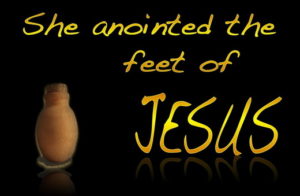 First Reading Isaiah 42:1-7
First Reading Isaiah 42:1-7
Here is my servant whom I uphold, my chosen one in whom my soul delights. I have endowed him with my spirit that he may bring true justice to the nations. He does not cry out or shout aloud, or make his voice heard in the streets. He does not break the crushed reed, nor quench the wavering flame. Faithfully he brings true justice; he will neither waver, nor be crushed until true justice is established on earth, for the islands are awaiting his law. Thus says God, the Lord, he who created the heavens and spread them out, who gave shape to the earth and what comes from it, who gave breath to its people and life to the creatures that move in it: ‘I, the Lord, have called you to serve the cause of right; I have taken you by the hand and formed you; I have appointed you as covenant of the people and light of the nations, ‘to open the eyes of the blind,
to free captives from prison, and those who live in darkness from the dungeon.’
Gospel John 12:1-11
Six days before the Passover, Jesus went to Bethany, where Lazarus was, whom he had raised from the dead. They gave a dinner for him there; Martha waited on them and Lazarus was among those at table. Mary brought in a pound of very costly ointment, pure nard, and with it anointed the feet of Jesus, wiping them with her hair; the house was full of the scent of the ointment. Then Judas Iscariot – one of his disciples, the man who was to betray him – said, ‘Why wasn’t this ointment sold for three hundred denarii, and the money given to the poor?’ He said this, not because he cared about the poor, but because he was a thief; he was in charge of the common fund and used to help himself to the contributions. So Jesus said, ‘Leave her alone; she had to keep this scent for the day of my burial. You have the poor with you always, you will not always have me.’
Meanwhile a large number of Jews heard that he was there and came not only on account of Jesus but also to see Lazarus whom he had raised from the dead. Then the chief priests decided to kill Lazarus as well, since it was on his account that many of the Jews were leaving them and believing in Jesus.
5/4/20 Palm Sunday
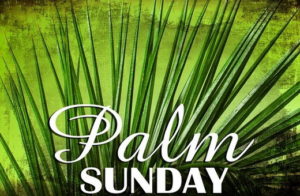 First Reading Isaiah 50:4-7
First Reading Isaiah 50:4-7
The Lord has given me a disciple’s tongue. So that I may know how to reply to the wearied he provides me with speech. Each morning he wakes me to hear, to listen like a disciple. The Lord has opened my ear. For my part, I made no resistance, neither did I turn away. I offered my back to those who struck me, my cheeks to those who tore at my beard; I did not cover my face against insult and spittle. The Lord comes to my help, so that I am untouched by the insults. So, too, I set my face like flint; I know I shall not be shamed.
Second Reading Philippians 2:6-11
His state was divine, yet Christ Jesus did not cling to his equality with God but emptied himself to assume the condition of a slave and became as men are; and being as all men are, he was humbler yet, even to accepting death, death on a cross. But God raised him high and gave him the name which is above all other names so that all beings in the heavens, on earth and in the underworld, should bend the knee at the name of Jesus and that every tongue should acclaim Jesus Christ as Lord, to the glory of God the Father.
Gospel Matthew 26:14-27:66
Key: N. Narrator. ✠ Jesus. O. Other single speaker. C. Crowd, or more than one speaker.
- One of the Twelve, the man called Judas Iscariot, went to the chief priests and said,
- What are you prepared to give me if I hand him over to you?
- They paid him thirty silver pieces, and from that moment he looked for an opportunity to betray him.
Now on the first day of Unleavened Bread the disciples came to Jesus to say,
- Where do you want us to make the preparations for you to eat the passover?
- He replied:
✠ Go to so-and-so in the city and say to him, ‘The Master says: My time is near. It is at your house that I am keeping Passover with my disciples.’
- The disciples did what Jesus told them and prepared the Passover.
When evening came he was at table with the twelve disciples. And while they were eating he said:
✠ I tell you solemnly, one of you is about to betray me.
- They were greatly distressed and started asking him in turn,
- Not I, Lord, surely?
- He answered,
✠ Someone who has dipped his hand into the dish with me will betray me. The Son of Man is going to his fate, as the scriptures say he will, but alas for that man by whom the Son of Man is betrayed! Better for that man if he had never been born!
- Judas, who was to betray him, asked in his turn,
- Not I, Rabbi, surely?
- Jesus answered:
✠ They are your own words.
- Now as they were eating, Jesus took some bread, and when he had said the blessing he broke it and gave it to the disciples and said:
✠ Take it and eat; this is my body.
- Then he took a cup, and when he had returned thanks he gave it to them, saying:
✠ Drink, all of you, from this, for this is my blood, the blood of the covenant, which is to be poured out for many for the forgiveness of sins. From now on, I tell you, I shall not drink wine until the day I drink the new wine with you in the kingdom of my Father.
- After psalms had been sung they left for the Mount of Olives. Then Jesus said to them,
✠ You will all lose faith in me this night, for the scripture says: I shall strike the shepherd and the sheep of the flock will be scattered, but after my resurrection I shall go before you to Galilee.
- At this, Peter said,
- Though all lose faith in you, I will never lose faith.
- Jesus answered him,
✠ I tell you solemnly, this very night, before the cock crows, you will have disowned me three times.
- Peter said to him,
- Even if I have to die with you, I will never disown you.
- And all the disciples said the same.
Then Jesus came with them to a small estate called Gethsemane; and he said to his disciples,
✠ Stay here while I go over there to pray.
- He took Peter and the two sons of Zebedee with him. And sadness came over him, and great distress. Then he said to them,
✠ My soul is sorrowful to the point of death. Wait here and keep awake with me.
- And going on a little further he fell on his face and prayed:
✠ My Father, if it is possible, let this cup pass me by. Nevertheless, let it be as you, not I, would have it.
- He came back to the disciples and found them sleeping, and he said to Peter:
✠ So you had not the strength to keep awake with me one hour? You should be awake, and praying not to be put to the test. The spirit is willing, but the flesh is weak.
- Again, a second time, he went away and prayed:
✠ My Father, if this cup cannot pass by without my drinking it, your will be done!
- And he came back again and found them sleeping, their eyes were so heavy. Leaving them there, he went away again and prayed for the third time, repeating the same words. Then he came back to the disciples and said to them,
✠ You can sleep on now and take your rest. Now the hour has come when the Son of Man is to be betrayed into the hands of sinners. Get up! Let us go! My betrayer is already close at hand.
- He was still speaking when Judas, one of the Twelve, appeared, and with him a large number of men armed with swords and clubs, sent by the chief priests and elders of the people. Now the traitor had arranged a sign with them. He had said,
- ‘The one I kiss, he is the man. Take him in charge.’
- So he went straight up to Jesus and said,
- Greetings, Rabbi.
- and kissed him. Jesus said to him,
✠ My friend, do what you are here for.
- Then they came forward, seized Jesus and took him in charge. At that, one of the followers of Jesus grasped his sword and drew it; he struck out at the high priest’s servant, and cut off his ear. Jesus then said,
✠ Put your sword back, for all who draw the sword will die by the sword. Or do you think that I cannot appeal to my Father who would promptly send more than twelve legions of angels to my defence? But then, how would the scriptures be fulfilled that say this is the way it must be?
- It was at this time that Jesus said to the crowds,
✠ Am I a brigand, that you had to set out to capture me with swords and clubs? I sat teaching in the Temple day after day and you never laid hands on me.
- Now all this happened to fulfil the prophecies in scripture. Then all the disciples deserted him and ran away.
The men who had arrested Jesus led him off to Caiaphas the high priest, where the scribes and the elders were assembled. Peter followed him at a distance, and when he reached the high priest’s palace, he went in and sat down with the attendants to see what the end would be.
The chief priests and the whole Sanhedrin were looking for evidence against Jesus, however false, on which they might pass the death sentence. But they could not find any, though several lying witnesses came forward. Eventually two stepped forward and made a statement,
- This man said: ‘I have power to destroy the Temple of God and in three days build it up.’
- The high priest then stood up and said to him,
- Have you no answer to that? What is this evidence these men are bringing against you?
- But Jesus was silent. And the high priest said to him,
- I put you on oath by the living God to tell us if you are the Christ, the Son of God.
- Jesus answered:
✠ The words are your own. Moreover, I tell you that from this time onward you will see the Son of Man seated at the right hand of the Power and coming on the clouds of heaven.
- At this, the high priest tore his clothes and said,
- He has blasphemed. What need of witnesses have we now? There! You have just heard the blasphemy. What is your opinion?
- They answered,
- He deserves to die.
- Then they spat in his face and hit him with their fists; others said as they struck him,
- Play the prophet, Christ! Who hit you then?
- Meanwhile Peter was sitting outside in the courtyard, and a servant-girl came up to him and said,
- You too were with Jesus the Galilean.
- But he denied it in front of them all, saying:
- I do not know what you are talking about.
- When he went out to the gateway another servant-girl saw him and said to the people there,
- This man was with Jesus the Nazarene.
- And again, with an oath, he denied it:
- I do not know the man.
- A little later the bystanders came up and said to Peter,
- You are one of them for sure! Why, your accent gives you away.
Then he started calling down curses on himself and swearing:
- I do not know the man.
- At that moment the cock crew, and Peter remembered what Jesus had said, ‘Before the cock crows you will have disowned me three times.’ And he went outside and wept bitterly.
When morning came, all the chief priests and the elders of the people met in council to bring about the death of Jesus. They had him bound, and led him away to hand him over to Pilate, the governor.
When he found that Jesus had been condemned, Judas his betrayer was filled with remorse and took the thirty silver pieces back to the chief priests and elders, saying:
- I have sinned. I have betrayed innocent blood.
- They replied:
- What is that to us? That is your concern.
- And flinging down the silver pieces in the sanctuary he made off and hanged himself. The chief priests picked up the silver pieces and said,
- It is against the Law to put this into the treasury: it is blood-money.
- So they discussed the matter and bought the potter’s field with it as a graveyard for foreigners, and this is why the field is called the Field of Blood today. The words of the prophet Jeremiah were then fulfilled: And they took the thirty silver pieces, the sum at which the precious One was priced by children of Israel, and they gave them for the potter’s field, just as the Lord directed me.
Jesus, then, was brought before the governor, and the governor put to him this question:
- Are you the king of the Jews?
- Jesus replied,
✠ It is you who say it.
- But when he was accused by the chief priests and the elders he refused to answer at all. Pilate then said to him,
- Do you not hear how many charges they have brought against you?
- But to the governor’s complete amazement, he offered no reply to any of the charges.
At festival time it was the governor’s practice to release a prisoner for the people, anyone they chose. Now there was at that time a notorious prisoner whose name was Barabbas. So when the crowd gathered, Pilate said to them,
- Which do you want me to release for you: Barabbas, or Jesus who is called Christ?
- For Pilate knew it was out of jealousy that they had handed him over. Now as he was seated in the chair of judgement, his wife sent him a message,
- Have nothing to do with that man; I have been upset all day by a dream I had about him.
- The chief priests and the elders, however, had persuaded the crowd to demand the release of Barabbas and the execution of Jesus. So when the governor spoke and asked them,
- Which of the two do you want me to release for you?
- they said,
- Barabbas.
- Pilate said to them:
- But in that case, what am I to do with Jesus who is called Christ?
- They all said:
- Let him be crucified!
- Pilate asked:
- Why? What harm has he done?
- But they shouted all the louder,
- Let him be crucified!
- Then Pilate saw that he was making no impression, that in fact a riot was imminent. So he took some water, washed his hands in front of the crowd and said,
- I am innocent of this man’s blood. It is your concern.
- And the people, to a man, shouted back,
- His blood be on us and on our children!
- Then he released Barabbas for them. He ordered Jesus to be first scourged and then handed over to be crucified.
The governor’s soldiers took Jesus with them into the Praetorium and collected the whole cohort round him. Then they stripped him and made him wear a scarlet cloak, and having twisted some thorns into a crown they put this on his head and placed a reed in his right hand. To make fun of him they knelt to him saying,
- Hail, king of the Jews!
- And they spat on him and took the reed and struck him on the head with it. And when they had finished making fun of him, they took off the cloak and dressed him in his own clothes and led him away to crucify him.
On their way out, they came across a man from Cyrene, Simon by name, and enlisted him to carry his cross. When they had reached a place called Golgotha, that is, the place of the skull, they gave him wine to drink mixed with gall, which he tasted but refused to drink. When they had finished crucifying him they shared out his clothing by casting lots, and then sat down and stayed there keeping guard over him.
Above his head was placed the charge against him; it read: ‘This is Jesus, the King of the Jews.’ At the same time two robbers were crucified with him, one on the right and one on the left.
The passers-by jeered at him; they shook their heads and said,
- So you would destroy the Temple and rebuild it in three days! Then save yourself! If you are God’s son, come down from the cross!
- The chief priests with the scribes and elders mocked him in the same way, saying:
- He saved others; he cannot save himself. He is the king of Israel; let him come down from the cross now, and we will believe in him. He puts his trust in God; now let God rescue him if he wants him. For he did say, ‘I am the son of God.’
- Even the robbers who were crucified with him taunted him in the same way.
From the sixth hour there was darkness over all the land until the ninth hour. And about the ninth hour, Jesus cried out in a loud voice,
✠ Eli, Eli, lama sabachthani?
- That is, ‘My God, my God, why have you deserted me?’ When some of those who stood there heard this, they said,
- The man is calling on Elijah.
- and one of them quickly ran to get a sponge which he dipped in vinegar and, putting it on a reed, gave it him to drink. The rest of them said:
- Wait! See if Elijah will come to save him.
- But Jesus, again crying out in a loud voice, yielded up his spirit.
Here all kneel and pause for a short time.
At that, the veil of the Temple was torn in two from top to bottom; the earth quaked; the rocks were split; the tombs opened and the bodies of many holy men rose from the dead, and these, after his resurrection, came out of the tombs, entered the Holy City and appeared to a number of people. Meanwhile the centurion, together with the others guarding Jesus, had seen the earthquake and all that was taking place, and they were terrified and said,
- In truth this was a son of God.
- And many women were there, watching from a distance, the same women who had followed Jesus from Galilee and looked after him. Among them were Mary of Magdala, Mary the mother of James and Joseph, and the mother of Zebedee’s sons.
When it was evening, there came a rich man of Arimathaea, called Joseph, who had himself become a disciple of Jesus. This man went to Pilate and asked for the body of Jesus. Pilate thereupon ordered it to be handed over. So Joseph took the body, wrapped it in a clean shroud and put it in his own new tomb which he had hewn out of the rock. He then rolled a large stone across the entrance of the tomb and went away. Now Mary of Magdala and the other Mary were there, sitting opposite the sepulchre.
Next day, that is, when Preparation Day was over, the chief priests and the Pharisees went in a body to Pilate and said to him,
- Your Excellency, we recall that this impostor said, while he was still alive, ‘After three days I shall rise again.’ Therefore give the order to have the sepulchre kept secure until the third day, for fear his disciples come and steal him away and tell the people, ‘He has risen from the dead.’ This last piece of fraud would be worse than what went before.
- Pilate said to them:
- You may have your guard. Go and make all as secure as you know how.
- So they went and made the sepulchre secure, putting seals on the stone and mounting a guard.
4/4/20 Saturday of the 5th week of Lent
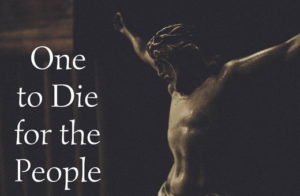 First Reading Ezekiel 37:21-28
First Reading Ezekiel 37:21-28
The Lord says this: ‘I am going to take the sons of Israel from the nations where they have gone. I shall gather them together from everywhere and bring them home to their own soil. I shall make them into one nation in my own land and on the mountains of Israel, and one king is to be king of them all; they will no longer form two nations, nor be two separate kingdoms. They will no longer defile themselves with their idols and their filthy practices and all their sins. I shall rescue them from all the betrayals they have been guilty of; I shall cleanse them; they shall be my people and I will be their God. My servant David will reign over them, one shepherd for all; they will follow my observances, respect my laws and practise them. They will live in the land that I gave my servant Jacob, the land in which your ancestors lived. They will live in it, they, their children, their children’s children, for ever. David my servant is to be their prince for ever. I shall make a covenant of peace with them, an eternal covenant with them. I shall resettle them and increase them; I shall settle my sanctuary among them for ever. I shall make my home above them; I will be their God, they shall be my people. And the nations will learn that I am the Lord, the sanctifier of Israel, when my sanctuary is with them for ever.’
Gospel John 11:45-56
Many of the Jews who had come to visit Mary and had seen what Jesus did believed in him, but some of them went to tell the Pharisees what Jesus had done. Then the chief priests and Pharisees called a meeting. ‘Here is this man working all these signs’ they said ‘and what action are we taking? If we let him go on in this way everybody will believe in him, and the Romans will come and destroy the Holy Place and our nation.’ One of them, Caiaphas, the high priest that year, said, ‘You do not seem to have grasped the situation at all; you fail to see that it is better for one man to die for the people, than for the whole nation to be destroyed.’ He did not speak in his own person, it was as high priest that he made this prophecy that Jesus was to die for the nation – and not for the nation only, but to gather together in unity the scattered children of God. From that day they were determined to kill him. So Jesus no longer went about openly among the Jews, but left the district for a town called Ephraim, in the country bordering on the desert, and stayed there with his disciples.
The Jewish Passover drew near, and many of the country people who had gone up to Jerusalem to purify themselves looked out for Jesus, saying to one another as they stood about in the Temple, ‘What do you think? Will he come to the festival or not?’
四月三日 四旬期第五周 星期五
 讀經一(上主與我同在,他好像是一位孔武有力的戰士。)
讀經一(上主與我同在,他好像是一位孔武有力的戰士。)
恭讀耶肋米亞先知書 20:10-13
耶肋米亞說:我聽到了多少人私相耳語:「驚慌四起!你們揭發,我們就必對他提出控訴。」甚至我一切的友好都在偵察我的破綻:「也許他會入彀,那我們必能制勝他,對他施行報復。」但是,與我同在的上主,好像是一位孔武有力的戰士,為此迫害我的人只有失敗,決不能制勝;由於謀事不成,必蒙受極大的恥辱,永不可磨滅的羞辱。噫萬軍的上主!你考驗義人,洞察人的肝膽肺腑;我既給你訴說了我的案情,願你使我見到你對他們的報復。你們應歌頌上主,讚揚上主,因為他從惡人的手中,救出了窮苦人的性命。
福音(猶太人企圖捉拿耶穌,他卻從他們手中走脫了。)
恭讀聖若望福音 10:31-42
那時候,猶太人又拿起石頭來,要砸死耶穌。耶穌向他們說:「我賴我父給你們顯示了許多善事,為了那一件,你們要砸死我呢?」猶太人回答說:「為了善事,我們不會砸死你,而是為了褻瀆的話,因為你是人,卻把你自己當作天主。」耶穌卻向他們說:「在你們的法律上不是記載著:『我說過:你們是神』麼?如果,那些蒙受天主話的,天主尚且稱他們為神——而經書是不能廢棄的——那麼,父所祝聖並派遣到世界上來的,因為說過:我是天主子,你們就說:你說褻瀆的話麼?假使我不作我父的工作,你們就不必信我,但若是我作了,你們縱然不肯信我,至少要信這些工作,如此你們必定認出父在我內,我在父內。」他們又企圖捉拿他,他卻從他們手中走脫了。
耶穌又回到約旦河對岸,若翰先前施洗的地方去了,並住在那裏。有許多人來到他那裏說:「若翰固然沒有行過神蹟,但若翰對於這人所說的一切,都是真的。」許多人就在那裏信了耶穌。
2/4/20 Wednesday of the 5th week of Lent
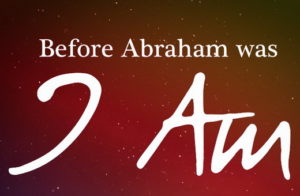 First Reading Daniel 3:14-20,24-25,28
First Reading Daniel 3:14-20,24-25,28
King Nebuchadnezzar said, ‘Shadrach, Meshach and Abednego, is it true that you do not serve my gods, and that you refuse to worship the golden statue I have erected? When you hear the sound of horn, pipe, lyre, trigon, harp, bagpipe, or any other instrument, are you prepared to prostrate yourselves and worship the statue I have made? If you refuse to worship it, you must be thrown straight away into the burning fiery furnace; and where is the god who could save you from my power?’ Shadrach, Meshach and Abednego replied to King Nebuchadnezzar, ‘Your question hardly requires an answer: if our God, the one we serve, is able to save us from the burning fiery furnace and from your power, O king, he will save us; and even if he does not, then you must know, O king, that we will not serve your god or worship the statue you have erected.’ These words infuriated King Nebuchadnezzar; his expression was very different now as he looked at Shadrach, Meshach and Abednego. He gave orders for the furnace to be made seven times hotter than usual, and commanded certain stalwarts from his army to bind Shadrach, Meshach and Abednego and throw them into the burning fiery furnace.
Then King Nebuchadnezzar sprang to his feet in amazement. He said to his advisers, ‘Did we not have these three men thrown bound into the fire?’ They replied, ‘Certainly, O king.’ ‘But,’ he went on ‘I can see four men walking about freely in the heart of the fire without coming to any harm. And the fourth looks like a son of the gods.’
Nebuchadnezzar exclaimed, ‘Blessed be the God of Shadrach, Meshach and Abednego: he has sent his angel to rescue the servants who, putting their trust in him, defied the order of the king, and preferred to forfeit their bodies rather than serve or worship any god but their own.’
Gospel John 8:31-42
To the Jews who believed in him Jesus said: ‘If you make my word your home you will indeed be my disciples, you will learn the truth and the truth will make you free.’
They answered, ‘We are descended from Abraham and we have never been the slaves of anyone; what do you mean, “You will be made free”?’ Jesus replied: ‘I tell you most solemnly, everyone who commits sin is a slave. Now the slave’s place in the house is not assured, but the son’s place is assured. So if the Son makes you free,
you will be free indeed. I know that you are descended from Abraham; but in spite of that you want to kill me because nothing I say has penetrated into you.
What I, for my part, speak of is what I have seen with my Father; but you, you put into action the lessons learnt from your father.’ They repeated, ‘Our father is Abraham.’ Jesus said to them: ‘If you were Abraham’s children, you would do as Abraham did. As it is, you want to kill me when I tell you the truth as I have learnt it from God; that is not what Abraham did. What you are doing is what your father does.’ ‘We were not born of prostitution,’ they went on ‘we have one father: God.’ Jesus answered: ‘If God were your father, you would love me, since I have come here from God; yes, I have come from him; not that I came because I chose, no, I was sent, and by him.’
1/4/20 Wednesday of the 5th week of Lent
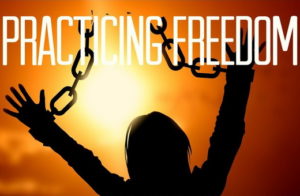 First Reading Daniel 3:14-20,24-25,28
First Reading Daniel 3:14-20,24-25,28
King Nebuchadnezzar said, ‘Shadrach, Meshach and Abednego, is it true that you do not serve my gods, and that you refuse to worship the golden statue I have erected? When you hear the sound of horn, pipe, lyre, trigon, harp, bagpipe, or any other instrument, are you prepared to prostrate yourselves and worship the statue I have made? If you refuse to worship it, you must be thrown straight away into the burning fiery furnace; and where is the god who could save you from my power?’ Shadrach, Meshach and Abednego replied to King Nebuchadnezzar, ‘Your question hardly requires an answer: if our God, the one we serve, is able to save us from the burning fiery furnace and from your power, O king, he will save us; and even if he does not, then you must know, O king, that we will not serve your god or worship the statue you have erected.’ These words infuriated King Nebuchadnezzar; his expression was very different now as he looked at Shadrach, Meshach and Abednego. He gave orders for the furnace to be made seven times hotter than usual, and commanded certain stalwarts from his army to bind Shadrach, Meshach and Abednego and throw them into the burning fiery furnace.
Then King Nebuchadnezzar sprang to his feet in amazement. He said to his advisers, ‘Did we not have these three men thrown bound into the fire?’ They replied, ‘Certainly, O king.’ ‘But,’ he went on ‘I can see four men walking about freely in the heart of the fire without coming to any harm. And the fourth looks like a son of the gods.’
Nebuchadnezzar exclaimed, ‘Blessed be the God of Shadrach, Meshach and Abednego: he has sent his angel to rescue the servants who, putting their trust in him, defied the order of the king, and preferred to forfeit their bodies rather than serve or worship any god but their own.’
Gospel John 8:31-42
To the Jews who believed in him Jesus said: ‘If you make my word your home you will indeed be my disciples, you will learn the truth and the truth will make you free.’
They answered, ‘We are descended from Abraham and we have never been the slaves of anyone; what do you mean, “You will be made free”?’ Jesus replied: ‘I tell you most solemnly, everyone who commits sin is a slave. Now the slave’s place in the house is not assured, but the son’s place is assured. So if the Son makes you free,
you will be free indeed. I know that you are descended from Abraham; but in spite of that you want to kill me because nothing I say has penetrated into you. What I, for my part, speak of is what I have seen with my Father; but you, you put into action the lessons learnt from your father.’ They repeated, ‘Our father is Abraham.’ Jesus said to them: ‘If you were Abraham’s children, you would do as Abraham did. As it is, you want to kill me when I tell you the truth as I have learnt it from God; that is not what Abraham did. What you are doing is what your father does.’ ‘We were not born of prostitution,’ they went on ‘we have one father: God.’ Jesus answered: ‘If God were your father, you would love me, since I have come here from God; yes, I have come from him; not that I came because I chose, no, I was sent, and by him.’
31/3/20 Tuesday of the 5th week of Lent
 First Reading Numbers 21:4-9
First Reading Numbers 21:4-9
The Israelites left Mount Hor by the road to the Sea of Suph, to skirt the land of Edom. On the way the people lost patience. They spoke against God and against Moses, ‘Why did you bring us out of Egypt to die in this wilderness? For there is neither bread nor water here; we are sick of this unsatisfying food.’
At this God sent fiery serpents among the people; their bite brought death to many in Israel. The people came and said to Moses, ‘We have sinned by speaking against the Lord and against you. Intercede for us with the Lord to save us from these serpents.’ Moses interceded for the people, and the Lord answered him, ‘Make a fiery serpent and put it on a standard. If anyone is bitten and looks at it, he shall live.’ So Moses fashioned a bronze serpent which he put on a standard, and if anyone was bitten by a serpent, he looked at the bronze serpent and lived.
Gospel John 8:21-30
Jesus said to the Pharisees: ‘I am going away; you will look for me and you will die in your sin. Where I am going, you cannot come.’ The Jews said to one another, ‘Will he kill himself? Is that what he means by saying, “Where I am going, you cannot come”?’ Jesus went on: ‘You are from below; I am from above. You are of this world; I am not of this world. I have told you already: You will die in your sins. Yes, if you do not believe that I am He, you will die in your sins.’ So they said to him, Who are you?’ Jesus answered: ‘What I have told you from the outset. About you I have much to say and much to condemn; but the one who sent me is truthful, and what I have learnt from him I declare to the world.’ They failed to understand that he was talking to them about the Father. So Jesus said: ‘When you have lifted up the Son of Man, then you will know that I am He and that I do nothing of myself: what the Father has taught me is what I preach; he who sent me is with me, and has not left me to myself, for I always do what pleases him.’ As he was saying this, many came to believe in him.
30/3/20 Monday of the Fifth week of Lent
 First Reading Book of Daniel 13,1-9.15-17.19-30.33-62
First Reading Book of Daniel 13,1-9.15-17.19-30.33-62
In Babylon there lived a man named Joakim,
who married a very beautiful and God-fearing woman, Susanna, the daughter of Hilkiah;
her pious parents had trained their daughter according to the law of Moses.
Joakim was very rich; he had a garden near his house, and the Jews had recourse to him often because he was the most respected of them all.
That year, two elders of the people were appointed judges, of whom the Lord said, “Wickedness has come out of Babylon: from the elders who were to govern the people as judges.”
These men, to whom all brought their cases, frequented the house of Joakim.
When the people left at noon, Susanna used to enter her husband’s garden for a walk.
When the old men saw her enter every day for her walk, they began to lust for her.
They suppressed their consciences; they would not allow their eyes to look to heaven, and did not keep in mind just judgments.
One day, while they were waiting for the right moment, she entered the garden as usual, with two maids only. She decided to bathe, for the weather was warm.
Nobody else was there except the two elders, who had hidden themselves and were watching her.
“Bring me oil and soap,” she said to the maids, “and shut the garden doors while I bathe.”
As soon as the maids had left, the two old men got up and hurried to her.
“Look,” they said, “the garden doors are shut, and no one can see us; give in to our desire, and lie with us.
If you refuse, we will testify against you that you dismissed your maids because a young man was here with you.”
“I am completely trapped,” Susanna groaned. “If I yield, it will be my death; if I refuse, I cannot escape your power.
Yet it is better for me to fall into your power without guilt than to sin before the Lord.”
Then Susanna shrieked, and the old men also shouted at her,
as one of them ran to open the garden doors.
When the people in the house heard the cries from the garden, they rushed in by the side gate to see what had happened to her.
At the accusations by the old men, the servants felt very much ashamed, for never had any such thing been said about Susanna.
When the people came to her husband Joakim the next day, the two wicked elders also came, fully determined to put Susanna to death. Before all the people they ordered:
“Send for Susanna, the daughter of Hilkiah, the wife of Joakim.” When she was sent for,
she came with her parents, children and all her relatives.
All her relatives and the onlookers were weeping.
In the midst of the people the two elders rose up and laid their hands on her head.
Through her tears she looked up to heaven, for she trusted in the Lord wholeheartedly.
The elders made this accusation: “As we were walking in the garden alone, this woman entered with two girls and shut the doors of the garden, dismissing the girls.
A young man, who was hidden there, came and lay with her.
When we, in a corner of the garden, saw this crime, we ran toward them.
We saw them lying together, but the man we could not hold, because he was stronger than we; he opened the doors and ran off.
Then we seized this one and asked who the young man was,
but she refused to tell us. We testify to this.” The assembly believed them, since they were elders and judges of the people, and they condemned her to death.
But Susanna cried aloud: “O eternal God, you know what is hidden and are aware of all things before they come to be:
you know that they have testified falsely against me. Here I am about to die, though I have done none of the things with which these wicked men have charged me.”
The Lord heard her prayer.
As she was being led to execution, God stirred up the holy spirit of a young boy named Daniel,
and he cried aloud: “I will have no part in the death of this woman.”
All the people turned and asked him, “What is this you are saying?”
He stood in their midst and continued, “Are you such fools, O Israelites! To condemn a woman of Israel without examination and without clear evidence?
Return to court, for they have testified falsely against her.”
Then all the people returned in haste. To Daniel the elders said, “Come, sit with us and inform us, since God has given you the prestige of old age.”
But he replied, “Separate these two far from one another that I may examine them.”
After they were separated one from the other, he called one of them and said: “How you have grown evil with age! Now have your past sins come to term:
passing unjust sentences, condemning the innocent, and freeing the guilty, although the Lord says, “The innocent and the just you shall not put to death.’
Now, then, if you were a witness, tell me under what tree you saw them together.”
“Under a mastic tree,” he answered. “Your fine lie has cost you your head,” said Daniel; “for the angel of God shall receive the sentence from him and split you in two.”
Putting him to one side, he ordered the other one to be brought. “Offspring of Canaan, not of Judah,” Daniel said to him, “beauty has seduced you, lust has subverted your conscience.
This is how you acted with the daughters of Israel, and in their fear they yielded to you; but a daughter of Judah did not tolerate your wickedness.
Now, then, tell me under what tree you surprised them together.”
“Under an oak,” he said. “Your fine lie has cost you also your head,” said Daniel; “for the angel of God waits with a sword to cut you in two so as to make an end of you both.”
The whole assembly cried aloud, blessing God who saves those that hope in him.
They rose up against the two elders, for by their own words Daniel had convicted them of perjury. According to the law of Moses, they inflicted on them the penalty they had plotted to impose on their neighbor:
they put them to death. Thus was innocent blood spared that day.
Gospel John 8,1-11
Jesus went to the Mount of Olives.
But early in the morning he arrived again in the temple area, and all the people started coming to him, and he sat down and taught them.
Then the scribes and the Pharisees brought a woman who had been caught in adultery and made her stand in the middle.
They said to him, “Teacher, this woman was caught in the very act of committing adultery.
Now in the law, Moses commanded us to stone such women. So what do you say?”
They said this to test him, so that they could have some charge to bring against him. Jesus bent down and began to write on the ground with his finger.
But when they continued asking him, he straightened up and said to them, “Let the one among you who is without sin be the first to throw a stone at her.”
Again he bent down and wrote on the ground.
And in response, they went away one by one, beginning with the elders. So he was left alone with the woman before him.
Then Jesus straightened up and said to her, “Woman, where are they? Has no one condemned you?”
She replied, “No one, sir.” Then Jesus said, “Neither do I condemn you. Go, (and) from now on do not sin any more.”
29/3/20 5th Sunday of Lent
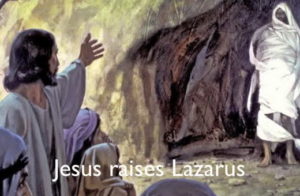 First Reading Ezekiel 37:12-14
First Reading Ezekiel 37:12-14
The Lord says this: I am now going to open your graves; I mean to raise you from your graves, my people, and lead you back to the soil of Israel. And you will know that I am the Lord, when I open your graves and raise you from your graves, my people. And I shall put my spirit in you, and you will live, and I shall resettle you on your own soil; and you will know that I, the Lord, have said and done this – it is the Lord who speaks.
Second Reading Romans 8:8-11
People who are interested only in unspiritual things can never be pleasing to God. Your interests, however, are not in the unspiritual, but in the spiritual, since the Spirit of God has made his home in you. In fact, unless you possessed the Spirit of Christ you would not belong to him. Though your body may be dead it is because of sin, but if Christ is in you then your spirit is life itself because you have been justified; and if the Spirit of him who raised Jesus from the dead is living in you, then he who raised Jesus from the dead will give life to your own mortal bodies through his Spirit living in you.
Gospel John 11:1-45
There was a man named Lazarus who lived in the village of Bethany with the two sisters, Mary and Martha, and he was ill. It was the same Mary, the sister of the sick man Lazarus, who anointed the Lord with ointment and wiped his feet with her hair. The sisters sent this message to Jesus, ‘Lord, the man you love is ill.’ On receiving the message, Jesus said, ‘This sickness will end not in death but in God’s glory, and through it the Son of God will be glorified.’
Jesus loved Martha and her sister and Lazarus, yet when he heard that Lazarus was ill he stayed where he was for two more days before saying to the disciples, ‘Let us go to Judaea.’ The disciples said, ‘Rabbi, it is not long since the Jews wanted to stone you; are you going back again?’ Jesus replied:
‘Are there not twelve hours in the day?
A man can walk in the daytime without stumbling
because he has the light of this world to see by;
but if he walks at night he stumbles,
because there is no light to guide him.’
He said that and then added, ‘Our friend Lazarus is resting, I am going to wake him.’ The disciples said to him, ‘Lord, if he is able to rest he is sure to get better.’ The phrase Jesus used referred to the death of Lazarus, but they thought that by ‘rest’ he meant ‘sleep’, so Jesus put it plainly, ‘Lazarus is dead; and for your sake I am glad I was not there because now you will believe. But let us go to him.’ Then Thomas – known as the Twin – said to the other disciples, ‘Let us go too, and die with him.’
On arriving, Jesus found that Lazarus had been in the tomb for four days already. Bethany is only about two miles from Jerusalem, and many Jews had come to Martha and Mary to sympathise with them over their brother. When Martha heard that Jesus had come she went to meet him. Mary remained sitting in the house. Martha said to Jesus, ‘If you had been here, my brother would not have died, but I know that, even now, whatever you ask of God, he will grant you.’ ‘Your brother’ said Jesus to her ‘will rise again.’ Martha said, ‘I know he will rise again at the resurrection on the last day.’ Jesus said:
‘I am the resurrection and the life.
If anyone believes in me, even though he dies he will live,
and whoever lives and believes in me will never die.
Do you believe this?’
‘Yes, Lord,’ she said ‘I believe that you are the Christ, the Son of God, the one who was to come into this world.’
When she had said this, she went and called her sister Mary, saying in a low voice, ‘The Master is here and wants to see you.’ Hearing this, Mary got up quickly and went to him. Jesus had not yet come into the village; he was still at the place where Martha had met him. When the Jews who were in the house sympathising with Mary saw her get up so quickly and go out, they followed her, thinking that she was going to the tomb to weep there.
Mary went to Jesus, and as soon as she saw him she threw herself at his feet, saying, ‘Lord, if you had been here, my brother would not have died.’ At the sight of her tears, and those of the Jews who followed her, Jesus said in great distress, with a sigh that came straight from the heart, ‘Where have you put him?’ They said, ‘Lord, come and see.’ Jesus wept; and the Jews said, ‘See how much he loved him!’ But there were some who remarked, ‘He opened the eyes of the blind man, could he not have prevented this man’s death?’ Still sighing, Jesus reached the tomb: it was a cave with a stone to close the opening. Jesus said, ‘Take the stone away.’ Martha said to him, ‘Lord, by now he will smell; this is the fourth day.’ Jesus replied, ‘Have I not told you that if you believe you will see the glory of God?’ So they took away the stone. Then Jesus lifted up his eyes and said:
‘Father, I thank you for hearing my prayer.
I knew indeed that you always hear me,
but I speak for the sake of all these who stand round me,
so that they may believe it was you who sent me.’
When he had said this, he cried in a loud voice, ‘Lazarus, here! Come out!’ The dead man came out, his feet and hands bound with bands of stuff and a cloth round his face. Jesus said to them, ‘Unbind him, let him go free.’
Many of the Jews who had come to visit Mary and had seen what he did believed in him.
28/3/20 Saturday of the 4th week of Lent
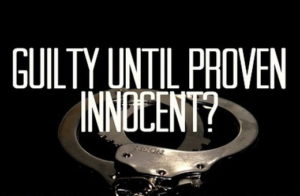 First Reading Jeremiah 11:18-20
First Reading Jeremiah 11:18-20
The Lord revealed it to me; I was warned. O Lord, that was when you opened my eyes to their scheming. I for my part was like a trustful lamb being led to the slaughter-house, not knowing the schemes they were plotting against me, ‘Let us destroy the tree in its strength, let us cut him off from the land of the living, so that his name may be quickly forgotten!’
But you, the Lord of Hosts, who pronounce a just sentence,
who probe the loins and heart,
let me see the vengeance you will take on them,
for I have committed my cause to you.
Gospel John 7:40-52
Several people who had been listening to Jesus said, ‘Surely he must be the prophet’, and some said, ‘He is the Christ’, but others said, ‘Would the Christ be from Galilee? Does not scripture say that the Christ must be descended from David and come from the town of Bethlehem?’ So the people could not agree about him. Some would have liked to arrest him, but no one actually laid hands on him.
The police went back to the chief priests and Pharisees who said to them, ‘Why haven’t you brought him?’ The police replied, ‘There has never been anybody who has spoken like him.’ ‘So’ the Pharisees answered ‘you have been led astray as well? Have any of the authorities believed in him? Any of the Pharisees? This rabble knows nothing about the Law – they are damned.’ One of them, Nicodemus – the same man who had come to Jesus earlier – said to them, ‘But surely the Law does not allow us to pass judgement on a man without giving him a hearing and discovering what he is about?’ To this they answered, ‘Are you a Galilean too? Go into the matter, and see for yourself: prophets do not come out of Galilee.’
27/3/20 Friday of the 4th week of Lent
 First Reading Wisdom 2:1,12-22
First Reading Wisdom 2:1,12-22
‘Our life is short and dreary, nor is there any relief when man’s end comes, nor is anyone known who can give release from Hades. Let us lie in wait for the virtuous man, since he annoys us and opposes our way of life, reproaches us for our breaches of the law and accuses us of playing false to our upbringing. He claims to have knowledge of God, and calls himself a son of the Lord. Before us he stands, a reproof to our way of thinking, the very sight of him weighs our spirits down; his way of life is not like other men’s, the paths he treads are unfamiliar. In his opinion we are counterfeit; he holds aloof from our doings as though from filth; he proclaims the final end of the virtuous as happy and boasts of having God for his father. Let us see if what he says is true, let us observe what kind of end he himself will have. If the virtuous man is God’s son, God will take his part and rescue him from the clutches of his enemies. Let us test him with cruelty and with torture, and thus explore this gentleness of his and put his endurance to the proof. Let us condemn him to a shameful death since he will be looked after – we have his word for it.’ This is the way they reason, but they are misled, their malice makes them blind. They do not know the hidden things of God, they have no hope that holiness will be rewarded,
they can see no reward for blameless souls.
Gospel John 7:1-2,10,25-30
Jesus stayed in Galilee; he could not stay in Judaea, because the Jews were out to kill him.As the Jewish feast of Tabernacles drew near, after his brothers had left for the festival, he went up as well, but quite privately, without drawing attention to himself. Meanwhile some of the people of Jerusalem were saying, ‘Isn’t this the man they want to kill? And here he is, speaking freely, and they have nothing to say to him! Can it be true the authorities have made up their minds that he is the Christ? Yet we all know where he comes from, but when the Christ appears no one will know where he comes from.’ Then, as Jesus taught in the Temple, he cried out: ‘Yes, you know me and you know where I came from. Yet I have not come of myself: no, there is one who sent me and I really come from him, and you do not know him, but I know him because I have come from him and it was he who sent me.’ They would have arrested him then, but because his time had not yet come no one laid a hand on him.
26/3/20 Thursday of the 4th week of Lent
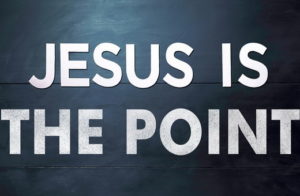 First Reading Exodus 32:7-14
First Reading Exodus 32:7-14
The Lord spoke to Moses, ‘Go down now, because your people whom you brought out of Egypt have apostatised. They have been quick to leave the way I marked out for them; they have made themselves a calf of molten metal and have worshipped it and offered it sacrifice. “Here is your God, Israel,” they have cried “who brought you up from the land of Egypt!”’ the Lord said to Moses, ‘I can see how headstrong these people are! Leave me, now, my wrath shall blaze out against them and devour them; of you, however, I will make a great nation.’
But Moses pleaded with the Lord his God. ‘Lord,’ he said ‘why should your wrath blaze out against this people of yours whom you brought out of the land of Egypt with arm outstretched and mighty hand? Why let the Egyptians say, “Ah, it was in treachery that he brought them out, to do them to death in the mountains and wipe them off the face of the earth”? Leave your burning wrath; relent and do not bring this disaster on your people. Remember Abraham, Isaac and Jacob, your servants to whom by your own self you swore and made this promise: I will make your offspring as many as the stars of heaven, and all this land which I promised I will give to your descendants, and it shall be their heritage for ever.’
So the Lord relented and did not bring on his people the disaster he had threatened.
Gospel John 5:31-47
Jesus said to the Jews:
‘Were I to testify on my own behalf, my testimony would not be valid; but there is another witness who can speak on my behalf, and I know that his testimony is valid.
You sent messengers to John, and he gave his testimony to the truth: not that I depend on human testimony; no, it is for your salvation that I speak of this. John was a lamp alight and shining and for a time you were content to enjoy the light that he gave. But my testimony is greater than John’s: the works my Father has given me to carry out, these same works of mine testify that the Father has sent me. Besides, the Father who sent me bears witness to me himself. You have never heard his voice, you have never seen his shape, and his word finds no home in you because you do not believe in the one he has sent. ‘You study the scriptures, believing that in them you have eternal life; now these same scriptures testify to me, and yet you refuse to come to me for life! As for human approval, this means nothing to me. Besides, I know you too well: you have no love of God in you. I have come in the name of my Father and you refuse to accept me; if someone else comes in his own name you will accept him. How can you believe, since you look to one another for approval and are not concerned with the approval that comes from the one God? Do not imagine that I am going to accuse you before the Father: you place your hopes on Moses, and Moses will be your accuser. If you really believed him you would believe me too, since it was I that he was writing about; but if you refuse to believe what he wrote, how can you believe what I say?’
25/3/20 The Annunciation of the Lord
 First Reading Isaiah 7:10-14,8:10
First Reading Isaiah 7:10-14,8:10
The Lord spoke to Ahaz and said, ‘Ask the Lord your God for a sign for yourself coming either from the depths of Sheol or from the heights above.’ ‘No,’ Ahaz answered ‘I will not put the Lord to the test.’
Then Isaiah said:
‘Listen now, House of David:
are you not satisfied with trying the patience of men
without trying the patience of my God, too?
The Lord himself, therefore,
will give you a sign.
It is this: the maiden is with child
and will soon give birth to a son
whom she will call Immanuel,
a name which means “God-is-with-us.”’
Second Reading Hebrews 10:4-1
Bulls’ blood and goats’ blood are useless for taking away sins, and this is what Christ said, on coming into the world:
You who wanted no sacrifice or oblation,
prepared a body for me.
You took no pleasure in holocausts or sacrifices for sin;
then I said,
just as I was commanded in the scroll of the book,
‘God, here I am! I am coming to obey your will.’
Notice that he says first: You did not want what the Law lays down as the things to be offered, that is: the sacrifices, the oblations, the holocausts and the sacrifices for sin, and you took no pleasure in them; and then he says: Here I am! I am coming to obey your will. He is abolishing the first sort to replace it with the second. And this will was for us to be made holy by the offering of his body made once and for all by Jesus Christ.
Gospel Luke 1:26-38
The angel Gabriel was sent by God to a town in Galilee called Nazareth, to a virgin betrothed to a man named Joseph, of the House of David; and the virgin’s name was Mary. He went in and said to her, ‘Rejoice, so highly favoured! The Lord is with you.’ She was deeply disturbed by these words and asked herself what this greeting could mean, but the angel said to her, ‘Mary, do not be afraid; you have won God’s favour. Listen! You are to conceive and bear a son, and you must name him Jesus. He will be great and will be called Son of the Most High. The Lord God will give him the throne of his ancestor David; he will rule over the House of Jacob for ever and his reign will have no end.’ Mary said to the angel, ‘But how can this come about, since I am a virgin?’ ‘The Holy Spirit will come upon you’ the angel answered ‘and the power of the Most High will cover you with its shadow. And so the child will be holy and will be called Son of God. Know this too: your kinswoman Elizabeth has, in her old age, herself conceived a son, and she whom people called barren is now in her sixth month, for nothing is impossible to God.’ ‘I am the handmaid of the Lord,’ said Mary ‘let what you have said be done to me.’ And the angel left her.
24/3/20 Monday of the 4th week of Lent

First Reading Isaiah 65:17-21
Thus says the Lord: Now I create new heavens and a new earth, and the past will not be remembered, and will come no more to men’s minds. Be glad and rejoice for ever and ever for what I am creating, because I now create Jerusalem ‘Joy’ and her people ‘Gladness.’ I shall rejoice over Jerusalem and exult in my people. No more will the sound of weeping or the sound of cries be heard in her; in her, no more will be found the infant living a few days only, or the old man not living to the end of his days. To die at the age of a hundred will be dying young; not to live to be a hundred will be the sign of a curse. They will build houses and inhabit them, plant vineyards and eat their fruit.
Gospel John 4:43-54
Jesus left Samaria for Galilee. He himself had declared that there is no respect for a prophet in his own country, but on his arrival the Galileans received him well, having seen all that he had done at Jerusalem during the festival which they too had attended.
He went again to Cana in Galilee, where he had changed the water into wine. Now there was a court official there whose son was ill at Capernaum and, hearing that Jesus had arrived in Galilee from Judaea, he went and asked him to come and cure his son as he was at the point of death. Jesus said, ‘So you will not believe unless you see signs and portents!’ ‘Sir,’ answered the official ‘come down before my child dies.’ ‘Go home,’ said Jesus ‘your son will live.’ The man believed what Jesus had said and started on his way; and while he was still on the journey back his servants met him with the news that his boy was alive. He asked them when the boy had begun to recover. ‘The fever left him yesterday’ they said ‘at the seventh hour.’ The father realised that this was exactly the time when Jesus had said, ‘Your son will live’; and he and all his household believed.
This was the second sign given by Jesus, on his return from Judaea to Galilee.
23/3/20 Monday of the 4th week of Lent
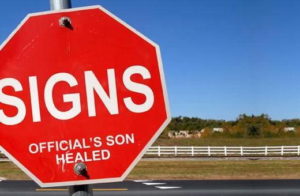 First Reading Isaiah 65:17-21
First Reading Isaiah 65:17-21
Thus says the Lord: Now I create new heavens and a new earth, and the past will not be remembered, and will come no more to men’s minds. Be glad and rejoice for ever and ever for what I am creating, because I now create Jerusalem ‘Joy’ and her people ‘Gladness.’ I shall rejoice over Jerusalem and exult in my people. No more will the sound of weeping or the sound of cries be heard in her; in her, no more will be found the infant living a few days only, or the old man not living to the end of his days. To die at the age of a hundred will be dying young; not to live to be a hundred will be the sign of a curse. They will build houses and inhabit them, plant vineyards and eat their fruit.
Gospel John 4:43-54
Jesus left Samaria for Galilee. He himself had declared that there is no respect for a prophet in his own country, but on his arrival the Galileans received him well, having seen all that he had done at Jerusalem during the festival which they too had attended.
He went again to Cana in Galilee, where he had changed the water into wine. Now there was a court official there whose son was ill at Capernaum and, hearing that Jesus had arrived in Galilee from Judaea, he went and asked him to come and cure his son as he was at the point of death. Jesus said, ‘So you will not believe unless you see signs and portents!’ ‘Sir,’ answered the official ‘come down before my child dies.’ ‘Go home,’ said Jesus ‘your son will live.’ The man believed what Jesus had said and started on his way; and while he was still on the journey back his servants met him with the news that his boy was alive. He asked them when the boy had begun to recover. ‘The fever left him yesterday’ they said ‘at the seventh hour.’ The father realised that this was exactly the time when Jesus had said, ‘Your son will live’; and he and all his household believed.
This was the second sign given by Jesus, on his return from Judaea to Galilee.
22/3/20 4th Sunday of Lent
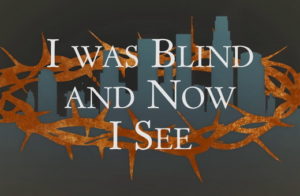 First Reading 1 Samuel 16:1,6-7,10-13
First Reading 1 Samuel 16:1,6-7,10-13
The Lord said to Samuel, ‘Fill your horn with oil and go. I am sending you to Jesse of Bethlehem, for I have chosen myself a king among his sons.’ When Samuel arrived, he caught sight of Eliab and thought, ‘Surely the Lord’s anointed stands there before him,’ but the Lord said to Samuel, ‘Take no notice of his appearance or his height, for I have rejected him: God does not see as man sees: man looks at appearances but the Lord looks at the heart.’ Jesse presented his seven sons to Samuel, but Samuel said to Jesse, ‘The Lord has not chosen these.’ He then asked Jesse, ‘Are these all the sons you have?’ He answered, ‘There is still one left, the youngest; he is out looking after the sheep.’ Then Samuel said to Jesse, ‘Send for him; we will not sit down to eat until he comes.’ Jesse had him sent for, a boy of fresh complexion, with fine eyes and pleasant bearing. The Lord said, ‘Come, anoint him, for this is the one.’ At this, Samuel took the horn of oil and anointed him where he stood with his brothers; and the spirit of the Lord seized on David and stayed with him from that day on.
Second Reading Ephesians 5:8-14
You were darkness once, but now you are light in the Lord; be like children of light, for the effects of the light are seen in complete goodness and right living and truth. Try to discover what the Lord wants of you, having nothing to do with the futile works of darkness but exposing them by contrast. The things which are done in secret are things that people are ashamed even to speak of; but anything exposed by the light will be illuminated and anything illuminated turns into light. That is why it is said:
Wake up from your sleep,
rise from the dead,
and Christ will shine on you.
Gospel John 9:1-41
As Jesus went along, he saw a man who had been blind from birth. His disciples asked him, ‘Rabbi, who sinned, this man or his parents, for him to have been born blind?’ ‘Neither he nor his parents sinned,’ Jesus answered ‘he was born blind so that the works of God might be displayed in him.
‘As long as the day lasts
I must carry out the work of the one who sent me;
the night will soon be here when no one can work.
As long as I am in the world
I am the light of the world.’
Having said this, he spat on the ground, made a paste with the spittle, put this over the eyes of the blind man, and said to him, ‘Go and wash in the Pool of Siloam’ (a name that means ‘sent’). So the blind man went off and washed himself, and came away with his sight restored.
His neighbours and people who earlier had seen him begging said, ‘Isn’t this the man who used to sit and beg?’ Some said, ‘Yes, it is the same one.’ Others said, ‘No, he only looks like him.’ The man himself said, ‘I am the man.’ So they said to him, ‘Then how do your eyes come to be open?’ ‘The man called Jesus’ he answered ‘made a paste, daubed my eyes with it and said to me, “Go and wash at Siloam”; so I went, and when I washed I could see.’ They asked, ‘Where is he?’ ‘I don’t know’ he answered.
They brought the man who had been blind to the Pharisees. It had been a sabbath day when Jesus made the paste and opened the man’s eyes, so when the Pharisees asked him how he had come to see, he said, ‘He put a paste on my eyes, and I washed, and I can see.’ Then some of the Pharisees said, ‘This man cannot be from God: he does not keep the sabbath.’ Others said, ‘How could a sinner produce signs like this?’ And there was disagreement among them. So they spoke to the blind man again, ‘What have you to say about him yourself, now that he has opened your eyes?’ ‘He is a prophet’ replied the man. However, the Jews would not believe that the man had been blind and had gained his sight, without first sending for his parents and asking them, ‘Is this man really your son who you say was born blind? If so, how is it that he is now able to see?’ His parents answered, ‘We know he is our son and we know he was born blind, but we do not know how it is that he can see now, or who opened his eyes. He is old enough: let him speak for himself.’ His parents spoke like this out of fear of the Jews, who had already agreed to expel from the synagogue anyone who should acknowledge Jesus as the Christ. This was why his parents said, ‘He is old enough; ask him.’
So the Jews again sent for the man and said to him, ‘Give glory to God! For our part, we know that this man is a sinner.’ The man answered, ‘I don’t know if he is a sinner; I only know that I was blind and now I can see.’ They said to him, ‘What did he do to you? How did he open your eyes?’ He replied, ‘I have told you once and you wouldn’t listen. Why do you want to hear it all again? Do you want to become his disciples too?’ At this they hurled abuse at him: ‘You can be his disciple,’ they said ‘we are disciples of Moses: we know that God spoke to Moses, but as for this man, we do not know where he comes from.’ The man replied, ‘Now here is an astonishing thing! He has opened my eyes, and you don’t know where he comes from! We know that God doesn’t listen to sinners, but God does listen to men who are devout and do his will. Ever since the world began it is unheard of for anyone to open the eyes of a man who was born blind; if this man were not from God, he couldn’t do a thing.’ ‘Are you trying to teach us,’ they replied ‘and you a sinner through and through, since you were born!’ And they drove him away.
Jesus heard they had driven him away, and when he found him he said to him, ‘Do you believe in the Son of Man?’ ‘Sir,’ the man replied ‘tell me who he is so that I may believe in him.’ Jesus said, ‘You are looking at him; he is speaking to you.’ The man said, ‘Lord, I believe’, and worshipped him.
Jesus said:
‘It is for judgement
that I have come into this world,
so that those without sight may see
and those with sight turn blind.’
Hearing this, some Pharisees who were present said to him, ‘We are not blind, surely?’ Jesus replied:
‘Blind? If you were,
you would not be guilty,
but since you say, “We see,”
your guilt remains.’
21/3/20 Saturday of the 3rd week of Lent
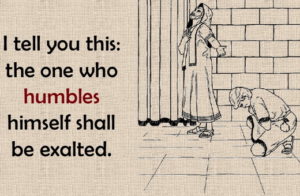 First Reading Hosea 5:15-6:6
First Reading Hosea 5:15-6:6
The Lord says this: They will search for me in their misery. ‘Come, let us return to the Lord. He has torn us to pieces, but he will heal us; he has struck us down, but he will bandage our wounds; after a day or two he will bring us back to life, on the third day he will raise us and we shall live in his presence. Let us set ourselves to know the Lord; that he will come is as certain as the dawn his judgement will rise like the light,
he will come to us as showers come, like spring rains watering the earth.’ What am I to do with you, Ephraim? What am I to do with you, Judah? This love of yours is like a morning cloud, like the dew that quickly disappears. This is why I have torn them to pieces by the prophets, why I slaughtered them with the words from my mouth, since what I want is love, not sacrifice; knowledge of God, not holocausts.
Gospel Luke 18:9-14
Jesus spoke the following parable to some people who prided themselves on being virtuous and despised everyone else: ‘Two men went up to the Temple to pray, one a Pharisee, the other a tax collector. The Pharisee stood there and said this prayer to himself, “I thank you, God, that I am not grasping, unjust, adulterous like the rest of mankind, and particularly that I am not like this tax collector here. I fast twice a week; I pay tithes on all I get.” The tax collector stood some distance away, not daring even to raise his eyes to heaven; but he beat his breast and said, “God, be merciful to me, a sinner.” This man, I tell you, went home again at rights with God; the other did not. For everyone who exalts himself will be humbled, but the man who humbles himself will be exalted.’
20/3/20 Friday of the 3rd week of Lent
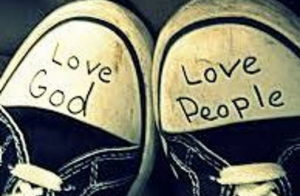 First Reading Hosea 14:2-10
First Reading Hosea 14:2-10
The Lord says this: Israel, come back to the Lord your God; your iniquity was the cause of your downfall. Provide yourself with words and come back to the Lord.
Say to him, ‘Take all iniquity away so that we may have happiness again and offer you our words of praise. Assyria cannot save us, we will not ride horses any more,
or say, “Our God!” to what our own hands have made, for you are the one in whom orphans find compassion.’ – I will heal their disloyalty, I will love them with all my heart, for my anger has turned from them. I will fall like dew on Israel. He shall bloom like the lily, and thrust out roots like the poplar, his shoots will spread far;
he will have the beauty of the olive and the fragrance of Lebanon. They will come back to live in my shade; they will grow corn that flourishes, they will cultivate vines
as renowned as the wine of Helbon. What has Ephraim to do with idols any more when it is I who hear his prayer and care for him? I am like a cypress ever green,
all your fruitfulness comes from me. Let the wise man understand these words. Let the intelligent man grasp their meaning. For the ways of the Lord are straight, and virtuous men walk in them, but sinners stumble.
Gospel Mark 12:28-34
One of the scribes came up to Jesus and put a question to him, ‘Which is the first of all the commandments?’ Jesus replied, ‘This is the first: Listen, Israel, the Lord our God is the one Lord, and you must love the Lord your God with all your heart, with all your soul, with all your mind and with all your strength. The second is this: You must love your neighbour as yourself. There is no commandment greater than these.’ The scribe said to him, ‘Well spoken, Master; what you have said is true: that he is one and there is no other. To love him with all your heart, with all your understanding and strength, and to love your neighbour as yourself, this is far more important than any holocaust or sacrifice.’ Jesus, seeing how wisely he had spoken, said, ‘You are not far from the kingdom of God.’ And after that no one dared to question him any more.
19/3/20 Saint Joseph, husband of the Blessed Virgin Mary
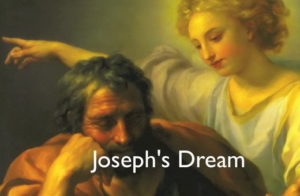 First Reading 2 Samuel 7:4-5,12-14,16
First Reading 2 Samuel 7:4-5,12-14,16
The word of the Lord came to Nathan:
‘Go and tell my servant David, Thus the Lord speaks: “When your days are ended and you are laid to rest with your ancestors, I will preserve the offspring of your body after you and make his sovereignty secure. (It is he who shall build a house for my name, and I will make his royal throne secure for ever.) I will be a father to him and he a son to me; if he does evil, I will punish him with the rod such as men use, with strokes such as mankind gives. Yet I will not withdraw my favour from him, as I withdrew it from your predecessor. Your House and your sovereignty will always stand secure before me and your throne be established for ever.”’
Second Reading Romans 4:13,16-18,22
The promise of inheriting the world was not made to Abraham and his descendants on account of any law but on account of the righteousness which consists in faith. That is why what fulfils the promise depends on faith, so that it may be a free gift and be available to all of Abraham’s descendants, not only those who belong to the Law but also those who belong to the faith of Abraham who is the father of all of us. As scripture says: I have made you the ancestor of many nations – Abraham is our father in the eyes of God, in whom he put his faith, and who brings the dead to life and calls into being what does not exist.
Though it seemed Abraham’s hope could not be fulfilled, he hoped and he believed, and through doing so he did become the father of many nations exactly as he had been promised: Your descendants will be as many as the stars. This is the faith that was ‘considered as justifying him.’
Gospel Matthew 1:16,18-21,24
Jacob was the father of Joseph the husband of Mary; of her was born Jesus who is called Christ.
This is how Jesus Christ came to be born. His mother Mary was betrothed to Joseph; but before they came to live together she was found to be with child through the Holy Spirit. Her husband Joseph; being a man of honour and wanting to spare her publicity, decided to divorce her informally. He had made up his mind to do this when the angel of the Lord appeared to him in a dream and said, ‘Joseph son of David, do not be afraid to take Mary home as your wife, because she has conceived what is in her by the Holy Spirit. She will give birth to a son and you must name him Jesus, because he is the one who is to save his people from their sins.’ When Joseph woke up he did what the angel of the Lord had told him to do.
18/3/20 Wednesday of the 3rd week of Lent
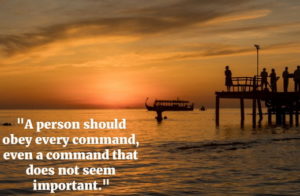 First Reading Deuteronomy 4:1,5-9
First Reading Deuteronomy 4:1,5-9
Moses said to the people:
‘Now, Israel, take notice of the laws and customs that I teach you today, and observe them, that you may have life and may enter and take possession of the land that the Lord the God of your fathers is giving you.
‘See, as the Lord my God has commanded me, I teach you the laws and customs that you are to observe in the land you are to enter and make your own. Keep them, observe them, and they will demonstrate to the peoples your wisdom and understanding. When they come to know of all these laws they will exclaim, “No other people is as wise and prudent as this great nation.” And indeed, what great nation is there that has its gods so near as the Lord our God is to us whenever we call to him? And what great nation is there that has laws and customs to match this whole Law that I put before you today?
‘But take care what you do and be on your guard. Do not forget the things your eyes have seen, nor let them slip from your heart all the days of your life; rather, tell them to your children and to your children’s children.’
Gospel Matthew 5:17-19
Jesus said to his disciples: ‘Do not imagine that I have come to abolish the Law or the Prophets. I have come not to abolish but to complete them. I tell you solemnly, till heaven and earth disappear, not one dot, not one little stroke, shall disappear from the Law until its purpose is achieved. Therefore, the man who infringes even one of the least of these commandments and teaches others to do the same will be considered the least in the kingdom of heaven; but the man who keeps them and teaches them will be considered great in the kingdom of heaven.’
17/3/20 Tuesday of the Third week of Lent
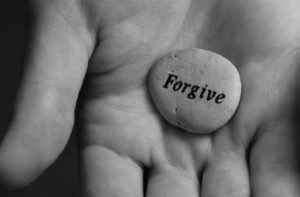 First Reading Book of Daniel 3,25.34-43
First Reading Book of Daniel 3,25.34-43
Azariah stood up in the fire and prayed aloud:
“For your name’s sake, do not deliver us up forever, or make void your covenant. Do not take away your mercy from us, for the sake of Abraham, your beloved, Isaac your servant, and Israel your holy one, To whom you promised to multiply their offspring like the stars of heaven, or the sand on the shore of the sea. For we are reduced, O Lord, beyond any other nation, brought low everywhere in the world this day because of our sins.
We have in our day no prince, prophet, or leader, no holocaust, sacrifice, oblation, or incense, no place to offer first fruits, to find favor with you.
But with contrite heart and humble spirit let us be received;
As though it were holocausts of rams and bullocks, or thousands of fat lambs, So let our sacrifice be in your presence today as we follow you unreservedly; for those who trust in you cannot be put to shame.
And now we follow you with our whole heart, we fear you and we pray to you.
Do not let us be put to shame, but deal with us in your kindness and great mercy. Deliver us by your wonders, and bring glory to your name, O Lord”
Gospel Matthew 18,21-35
Peter approached Jesus and asked him, “Lord, if my brother sins against me, how often must I forgive him? As many as seven times?”
Jesus answered, “I say to you, not seven times but seventy-seven times.
That is why the kingdom of heaven may be likened to a king who decided to settle accounts with his servants.
When he began the accounting, a debtor was brought before him who owed him a huge amount.
Since he had no way of paying it back, his master ordered him to be sold, along with his wife, his children, and all his property, in payment of the debt.
At that, the servant fell down, did him homage, and said, ‘Be patient with me, and I will pay you back in full.’
Moved with compassion the master of that servant let him go and forgave him the loan.
When that servant had left, he found one of his fellow servants who owed him a much smaller amount. He seized him and started to choke him, demanding, ‘Pay back what you owe.’
Falling to his knees, his fellow servant begged him, ‘Be patient with me, and I will pay you back.’
But he refused. Instead, he had him put in prison until he paid back the debt.
Now when his fellow servants saw what had happened, they were deeply disturbed, and went to their master and reported the whole affair.
His master summoned him and said to him, ‘You wicked servant! I forgave you your entire debt because you begged me to.
Should you not have had pity on your fellow servant, as I had pity on you?’
Then in anger his master handed him over to the torturers until he should pay back the whole debt.
So will my heavenly Father do to you, unless each of you forgives his brother from his heart.”
16/3/20 Monday of the 3rd week of Lent
 First Reading 2 Kings 5:1-15
First Reading 2 Kings 5:1-15
Naaman, army commander to the king of Aram, was a man who enjoyed his master’s respect and favour, since through him the Lord had granted victory to the Aramaeans. But the man was a leper.
Now on one of their raids, the Aramaeans had carried off from the land of Israel a little girl who had become a servant of Naaman’s wife. She said to her mistress, ‘If only my master would approach the prophet of Samaria. He would cure him of his leprosy.’
Naaman went and told his master. ‘This and this’ he reported ‘is what the girl from the land of Israel said.’
‘Go by all means,’ said the king of Aram ‘I will send a letter to the king of Israel.’
So Naaman left, taking with him ten talents of silver, six thousand shekels of gold and ten festal robes. He presented the letter to the king of Israel. It read: ‘With this letter, I am sending my servant Naaman to you for you to cure him of his leprosy.’ When the king of Israel read the letter, he tore his garments. ‘Am I a god to give death and life,’ he said ‘that he sends a man to me and asks me to cure him of his leprosy? Listen to this, and take note of it and see how he intends to pick a quarrel with me.’
When Elisha heard that the king of Israel had torn his garments, he sent word to the king, ‘Why did you tear your garments? Let him come to me, and he will find there is a prophet in Israel.’
So Naaman came with his team and chariot and drew up at the door of Elisha’s house. And Elisha sent him a messenger to say, ‘Go and bathe seven times in the Jordan, and your flesh will become clean once more.’
But Naaman was indignant and went off, saying, ‘Here was I thinking he would be sure to come out to me, and stand there, and call on the name of the Lord his God, and wave his hand over the spot and cure the leprous part. Surely Abana and Pharpar, the rivers of Damascus, are better than any water in Israel? Could I not bathe in them and become clean?’ And he turned round and went off in a rage.
But his servants approached him and said, ‘My father, if the prophet had asked you to do something difficult, would you not have done it? All the more reason, then, when he says to you, “Bathe, and you will become clean.”’
So he went down and immersed himself seven times in the Jordan, as Elisha had told him to do. And his flesh became clean once more like the flesh of a little child.
Returning to Elisha with his whole escort, he went in and stood before him. ‘Now I know’ he said ‘that there is no God in all the earth except in Israel.’
Gospel Luke 4:24-30
Jesus came to Nazara and spoke to the people in the synagogue: ‘I tell you solemnly, no prophet is ever accepted in his own country.
‘There were many widows in Israel, I can assure you, in Elijah’s day, when heaven remained shut for three years and six months and a great famine raged throughout the land, but Elijah was not sent to any one of these: he was sent to a widow at Zarephath, a Sidonian town. And in the prophet Elisha’s time there were many lepers in Israel, but none of these was cured, except the Syrian, Naaman.’
When they heard this everyone in the synagogue was enraged. They sprang to their feet and hustled him out of the town; and they took him up to the brow of the hill their town was built on, intending to throw him down the cliff, but he slipped through the crowd and walked away.
15/3/20 3rd Sunday of Lent
 First Reading Exodus 17:3-7
First Reading Exodus 17:3-7
Tormented by thirst, the people complained against Moses. ‘Why did you bring us out of Egypt?’ they said. ‘Was it so that I should die of thirst, my children too, and my cattle?’
Moses appealed to the Lord. ‘How am I to deal with this people?” he said. ‘A little more and they will stone me!’ the Lord said to Moses, ‘Take with you some of the elders of Israel and move on to the forefront of the people; take in your hand the staff with which you struck the river, and go. I shall be standing before you there on the rock, at Horeb. You must strike the rock, and water will flow from it for the people to drink.’ This is what Moses did, in the sight of the elders of Israel. The place was named Massah and Meribah because of the grumbling of the sons of Israel and because they put the Lord to the test by saying, ‘Is the Lord with us, or not?’
Second Reading Romans 5:1-2,5-8
Through our Lord Jesus Christ, by faith we are judged righteous and at peace with God, since it is by faith and through Jesus that we have entered this state of grace in which we can boast about looking forward to God’s glory. And this hope is not deceptive, because the love of God has been poured into our hearts by the Holy Spirit which has been given us. We were still helpless when at his appointed moment Christ died for sinful men. It is not easy to die even for a good man – though of course for someone really worthy, a man might be prepared to die – but what proves that God loves us is that Christ died for us while we were still sinners.
Gospel John 4:5-42
Jesus came to the Samaritan town called Sychar, near the land that Jacob gave to his son Joseph. Jacob’s well is there and Jesus, tired by the journey, sat straight down by the well. It was about the sixth hour. When a Samaritan woman came to draw water, Jesus said to her, ‘Give me a drink.’ His disciples had gone into the town to buy food. The Samaritan woman said to him, ‘What? You are a Jew and you ask me, a Samaritan, for a drink?’ – Jews, in fact, do not associate with Samaritans. Jesus replied:
‘If you only knew what God is offering
and who it is that is saying to you:
Give me a drink, you would have been the one to ask,
and he would have given you living water.’
‘You have no bucket, sir,’ she answered ‘and the well is deep: how could you get this living water? Are you a greater man than our father Jacob who gave us this well and drank from it himself with his sons and his cattle?’ Jesus replied:
‘Whoever drinks this water
will get thirsty again;
but anyone who drinks the water that I shall give
will never be thirsty again:
the water that I shall give
will turn into a spring inside him,
welling up to eternal life.’
‘Sir,’ said the woman ‘give me some of that water, so that I may never get thirsty and never have to come here again to draw water.’ ‘Go and call your husband’ said Jesus to her ‘and come back here.’ The woman answered, ‘I have no husband.’ He said to her, ‘You are right to say, “I have no husband”; for although you have had five, the one you have now is not your husband. You spoke the truth there.’ ‘I see you are a prophet, sir’ said the woman. ‘Our fathers worshipped on this mountain, while you say that Jerusalem is the place where one ought to worship.’ Jesus said:
‘Believe me, woman,
the hour is coming
when you will worship the Father
neither on this mountain nor in Jerusalem.
You worship what you do not know;
we worship what we do know:
for salvation comes from the Jews.
But the hour will come
– in fact it is here already –
when true worshippers will worship the Father in spirit and truth:
that is the kind of worshipper the Father wants.
God is spirit,
and those who worship
must worship in spirit and truth.’
The woman said to him, ‘I know that Messiah – that is, Christ – is coming; and when he comes he will tell us everything.’ ‘I who am speaking to you,’ said Jesus ‘I am he.’
At this point his disciples returned, and were surprised to find him speaking to a woman, though none of them asked, ‘What do you want from her?’ or, ‘Why are you talking to her?’ The woman put down her water jar and hurried back to the town to tell the people. ‘Come and see a man who has told me everything I ever did; I wonder if he is the Christ?’ This brought people out of the town and they started walking towards him.
Meanwhile, the disciples were urging him, ‘Rabbi, do have something to eat; but he said, ‘I have food to eat that you do not know about.’ So the disciples asked one another, ‘Has someone been bringing him food?’ But Jesus said:
‘My food is to do the will of the one who sent me,
and to complete his work.
Have you not got a saying:
Four months and then the harvest?
Well, I tell you:
Look around you, look at the fields;
already they are white, ready for harvest!
Already the reaper is being paid his wages,
already he is bringing in the grain for eternal life,
and thus sower and reaper rejoice together.
For here the proverb holds good:
one sows, another reaps;
I sent you to reap a harvest you had not worked for.
Others worked for it;
and you have come into the rewards of their trouble.’
Many Samaritans of that town had believed in him on the strength of the woman’s testimony when she said, ‘He told me all I have ever done’, so, when the Samaritans came up to him, they begged him to stay with them. He stayed for two days, and when he spoke to them many more came to believe; and they said to the woman, ‘Now we no longer believe because of what you told us; we have heard him ourselves and we know that he really is the saviour of the world.’
14/3/20 Saturday of the 2nd week of Lent
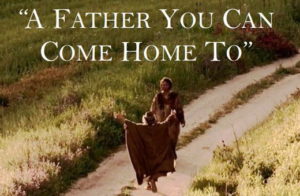 First Reading Micah 7:14-15,18-20
First Reading Micah 7:14-15,18-20
With shepherd’s crook, O Lord, lead your people to pasture, the flock that is your heritage, living confined in a forest with meadow land all around. Let them pasture in Bashan and Gilead as in the days of old. As in the days when you came out of Egypt
grant us to see wonders. What god can compare with you: taking fault away,
pardoning crime, not cherishing anger for ever but delighting in showing mercy? Once more have pity on us, tread down our faults, to the bottom of the sea throw all our sins. Grant Jacob your faithfulness, and Abraham your mercy, as you swore to our fathers from the days of long ago.
Gospel Luke 15:1-3,11-32
The tax collectors and the sinners were all seeking the company of Jesus to hear what he had to say, and the Pharisees and the scribes complained. ‘This man’ they said ‘welcomes sinners and eats with them.’ So he spoke this parable to them:
‘A man had two sons. The younger said to his father, “Father, let me have the share of the estate that would come to me.” So the father divided the property between them. A few days later, the younger son got together everything he had and left for a distant country where he squandered his money on a life of debauchery.
‘When he had spent it all, that country experienced a severe famine, and now he began to feel the pinch, so he hired himself out to one of the local inhabitants who put him on his farm to feed the pigs. And he would willingly have filled his belly with the husks the pigs were eating but no one offered him anything. Then he came to his senses and said, “How many of my father’s paid servants have more food than they want, and here am I dying of hunger! I will leave this place and go to my father and say: Father, I have sinned against heaven and against you; I no longer deserve to be called your son; treat me as one of your paid servants.” So he left the place and went back to his father.
‘While he was still a long way off, his father saw him and was moved with pity. He ran to the boy, clasped him in his arms and kissed him tenderly. Then his son said, “Father, I have sinned against heaven and against you. I no longer deserve to be called your son.” But the father said to his servants, “Quick! Bring out the best robe and put it on him; put a ring on his finger and sandals on his feet. Bring the calf we have been fattening, and kill it; we are going to have a feast, a celebration, because this son of mine was dead and has come back to life; he was lost and is found.” And they began to celebrate.
‘Now the elder son was out in the fields, and on his way back, as he drew near the house, he could hear music and dancing. Calling one of the servants he asked what it was all about. “Your brother has come” replied the servant “and your father has killed the calf we had fattened because he has got him back safe and sound.” He was angry then and refused to go in, and his father came out to plead with him; but he answered his father, “Look, all these years I have slaved for you and never once disobeyed your orders, yet you never offered me so much as a kid for me to celebrate with my friends. But, for this son of yours, when he comes back after swallowing up your property – he and his women – you kill the calf we had been fattening.”
‘The father said, “My son, you are with me always and all I have is yours. But it was only right we should celebrate and rejoice, because your brother here was dead and has come to life; he was lost and is found.”’
13/3/20 Friday of the 2nd week of Lent
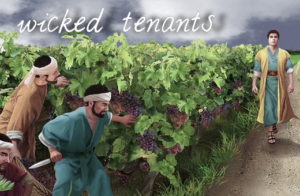 First Reading Genesis 37:3-4,12-13,17-28
First Reading Genesis 37:3-4,12-13,17-28
Israel loved Joseph more than all his other sons, for he was the son of his old age, and he had a coat with long sleeves made for him. But his brothers, seeing how his father loved him more than all his other sons, came to hate him so much that they could not say a civil word to him.
His brothers went to pasture their father’s flock at Shechem. Then Israel said to Joseph, ‘Are not your brothers with the flock at Shechem? Come, I am going to send you to them.’ So Joseph went after his brothers and found them at Dothan.
They saw him in the distance, and before he reached them they made a plot among themselves to put him to death. ‘Here comes the man of dreams’ they said to one another. ‘Come on, let us kill him and throw him into some well; we can say that a wild beast devoured him. Then we shall see what becomes of his dreams.’
But Reuben heard, and he saved him from their violence. ‘We must not take his life’ he said. ‘Shed no blood,’ said Reuben to them ‘throw him into this well in the wilderness, but do not lay violent hands on him’ – intending to save him from them and to restore him to his father. So, when Joseph reached his brothers, they pulled off his coat, the coat with long sleeves that he was wearing, and catching hold of him they threw him into the well, an empty well with no water in it. They then sat down to eat.
Looking up they saw a group of Ishmaelites who were coming from Gilead, their camels laden with gum, tragacanth, balsam and resin, which they were taking down into Egypt. Then Judah said to his brothers, ‘What do we gain by killing our brother and covering up his blood? Come, let us sell him to the Ishmaelites, but let us not do any harm to him. After all, he is our brother, and our own flesh.’ His brothers agreed.
Now some Midianite merchants were passing, and they drew Joseph up out of the well. They sold Joseph to the Ishmaelites for twenty silver pieces, and these men took Joseph to Egypt.
Gospel Matthew 21:33-43,45-46
Jesus said to the chief priests and the elders of the people, ‘Listen to another parable. There was a man, a landowner, who planted a vineyard; he fenced it round, dug a winepress in it and built a tower; then he leased it to tenants and went abroad. When vintage time drew near he sent his servants to the tenants to collect his produce. But the tenants seized his servants, thrashed one, killed another and stoned a third. Next he sent some more servants, this time a larger number, and they dealt with them in the same way. Finally he sent his son to them. “They will respect my son” he said. But when the tenants saw the son, they said to each other, “This is the heir. Come on, let us kill him and take over his inheritance.” So they seized him and threw him out of the vineyard and killed him. Now when the owner of the vineyard comes, what will he do to those tenants?’ They answered, ‘He will bring those wretches to a wretched end and lease the vineyard to other tenants who will deliver the produce to him when the season arrives.’ Jesus said to them, ‘Have you never read in the scriptures:
It was the stone rejected by the builders
that became the keystone.
This was the Lord’s doing
and it is wonderful to see?
‘I tell you, then, that the kingdom of God will be taken from you and given to a people who will produce its fruit.’
When they heard his parables, the chief priests and the scribes realised he was speaking about them, but though they would have liked to arrest him they were afraid of the crowds, who looked on him as a prophet.
12/3/20 Thursday of the 2nd week of Lent
 First Reading Jeremiah 17:5-10
First Reading Jeremiah 17:5-10
The Lord says this: ‘A curse on the man who puts his trust in man, who relies on things of flesh, whose heart turns from the Lord. He is like dry scrub in the wastelands: if good comes, he has no eyes for it, he settles in the parched places of the wilderness, a salt land, uninhabited. ‘A blessing on the man who puts his trust in the Lord, with the Lord for his hope. He is like a tree by the waterside that thrusts its roots to the stream: when the heat comes it feels no alarm, its foliage stays green; it has no worries in a year of drought, and never ceases to bear fruit. ‘The heart is more devious than any other thing, perverse too: who can pierce its secrets? I, the Lord, search to the heart, I probe the loins, to give each man what his conduct and his actions deserve.’
Gospel Luke 16:19-31
Jesus said to the Pharisees: ‘There was a rich man who used to dress in purple and fine linen and feast magnificently every day. And at his gate there lay a poor man called Lazarus, covered with sores, who longed to fill himself with the scraps that fell from the rich man’s table. Dogs even came and licked his sores. Now the poor man died and was carried away by the angels to the bosom of Abraham. The rich man also died and was buried.
‘In his torment in Hades he looked up and saw Abraham a long way off with Lazarus in his bosom. So he cried out, “Father Abraham, pity me and send Lazarus to dip the tip of his finger in water and cool my tongue, for I am in agony in these flames.” “My son,” Abraham replied “remember that during your life good things came your way, just as bad things came the way of Lazarus. Now he is being comforted here while you are in agony. But that is not all: between us and you a great gulf has been fixed, to stop anyone, if he wanted to, crossing from our side to yours, and to stop any crossing from your side to ours.”
‘The rich man replied, “Father, I beg you then to send Lazarus to my father’s house, since I have five brothers, to give them warning so that they do not come to this place of torment too.” “They have Moses and the prophets,” said Abraham “let them listen to them.” “Ah no, father Abraham,” said the rich man “but if someone comes to them from the dead, they will repent.” Then Abraham said to him, “If they will not listen either to Moses or to the prophets, they will not be convinced even if someone should rise from the dead.”’
11/3/20 Wednesday of the 2nd week of Lent
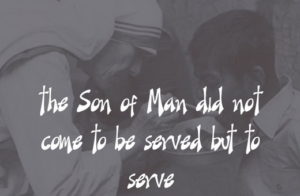 First Reading Jeremiah 18:18-20
First Reading Jeremiah 18:18-20
‘Come on,’ they said, ‘let us concoct a plot against Jeremiah; the priest will not run short of instruction without him, nor the sage of advice, nor the prophet of the word. Come on, let us hit at him with his own tongue; let us listen carefully to every word he says.’ Listen to me, O Lord, hear what my adversaries are saying. Should evil be returned for good? For they are digging a pit for me. Remember how I stood in your presence to plead on their behalf, to turn your wrath away from them.
Gospel Matthew 20:17-28
Jesus was going up to Jerusalem, and on the way he took the Twelve to one side and said to them, ‘Now we are going up to Jerusalem, and the Son of Man is about to be handed over to the chief priests and scribes. They will condemn him to death and will hand him over to the pagans to be mocked and scourged and crucified; and on the third day he will rise again.’
Then the mother of Zebedee’s sons came with her sons to make a request of him, and bowed low; and he said to her, ‘What is it you want?’ She said to him, ‘Promise that these two sons of mine may sit one at your right hand and the other at your left in your kingdom.’ ‘You do not know what you are asking’ Jesus answered. ‘Can you drink the cup that I am going to drink?’ They replied, ‘We can.’ ‘Very well,’ he said ‘you shall drink my cup, but as for seats at my right hand and my left, these are not mine to grant; they belong to those to whom they have been allotted by my Father.’
When the other ten heard this they were indignant with the two brothers. But Jesus called them to him and said, ‘You know that among the pagans the rulers lord it over them, and their great men make their authority felt. This is not to happen among you. No; anyone who wants to be great among you must be your servant, and anyone who wants to be first among you must be your slave, just as the Son of Man came not to be served but to serve, and to give his life as a ransom for many.’
10/3/20 Tuesday of the 2nd week of Lent
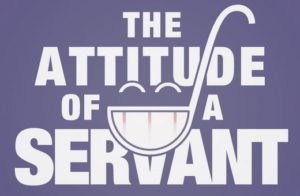 First Reading Isaiah 1:10,16-20
First Reading Isaiah 1:10,16-20
Hear the word of the Lord, you rulers of Sodom; listen to the command of our God, you people of Gomorrah. ‘Wash, make yourselves clean. Take your wrong-doing out of my sight. Cease to do evil. Learn to do good, search for justice, help the oppressed,
be just to the orphan, plead for the widow. ‘Come now, let us talk this over, says the Lord. Though your sins are like scarlet, they shall be as white as snow; though they are red as crimson, they shall be like wool. ‘If you are willing to obey, you shall eat the good things of the earth. But if you persist in rebellion, the sword shall eat you instead.’
Gospel Matthew 23:1-12
Addressing the people and his disciples Jesus said, ‘The scribes and the Pharisees occupy the chair of Moses. You must therefore do what they tell you and listen to what they say; but do not be guided by what they do: since they do not practise what they preach. They tie up heavy burdens and lay them on men’s shoulders, but will they lift a finger to move them? Not they! Everything they do is done to attract attention, like wearing broader phylacteries and longer tassels, like wanting to take the place of honour at banquets and the front seats in the synagogues, being greeted obsequiously in the market squares and having people call them Rabbi.
‘You, however, must not allow yourselves to be called Rabbi, since you have only one master, and you are all brothers. You must call no one on earth your father, since you have only one Father, and he is in heaven. Nor must you allow yourselves to be called teachers, for you have only one Teacher, the Christ. The greatest among you must be your servant. Anyone who exalts himself will be humbled, and anyone who humbles himself will be exalted.’
9/3/20 Monday of the 2nd week of Lent
 First Reading Daniel 9:4-10
First Reading Daniel 9:4-10
O Lord, God great and to be feared, you keep the covenant and have kindness for those who love you and keep your commandments: we have sinned, we have done wrong, we have acted wickedly, we have betrayed your commandments and your ordinances and turned away from them. We have not listened to your servants the prophets, who spoke in your name to our kings, our princes, our ancestors, and to all the people of the land. Integrity, Lord, is yours; ours the look of shame we wear today, we, the people of Judah, the citizens of Jerusalem, the whole of Israel, near and far away, in every country to which you have dispersed us because of the treason we have committed against you. To us, Lord, the look of shame belongs, to our kings, our princes, our ancestors, because we have sinned against you. To the Lord our God mercy and pardon belong, because we have betrayed him, and have not listened to the voice of the Lord our God nor followed the laws he has given us through his servants the prophets.
Gospel Luke 6:36-38
Jesus said to his disciples: ‘Be compassionate as your Father is compassionate. Do not judge, and you will not be judged yourselves; do not condemn, and you will not be condemned yourselves; grant pardon, and you will be pardoned. Give, and there will be gifts for you: a full measure, pressed down, shaken together, and running over, will be poured into your lap; because the amount you measure out is the amount you will be given back.’
8/3/20 2nd Sunday of Lent
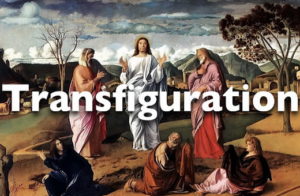 First Reading Genesis 12:1-4
First Reading Genesis 12:1-4
The Lord said to Abram, ‘Leave your country, your family and your father’s house, for the land I will show you. I will make you a great nation; I will bless you and make your name so famous that it will be used as a blessing.
‘I will bless those who bless you:
I will curse those who slight you.
All the tribes of the earth
shall bless themselves by you.’
So Abram went as the Lord told him.
Second Reading 2 Timothy 1:8-10
With me, bear the hardships for the sake of the Good News, relying on the power of God who has saved us and called us to be holy – not because of anything we ourselves have done but for his own purpose and by his own grace. This grace had already been granted to us, in Christ Jesus, before the beginning of time, but it has only been revealed by the Appearing of our saviour Christ Jesus. He abolished death, and he has proclaimed life and immortality through the Good News.
Gospel Matthew 17:1-9
Jesus took with him Peter and James and his brother John and led them up a high mountain where they could be alone. There in their presence he was transfigured: his face shone like the sun and his clothes became as white as the light. Suddenly Moses and Elijah appeared to them; they were talking with him. Then Peter spoke to Jesus. ‘Lord,’ he said ‘it is wonderful for us to be here; if you wish, I will make three tents here, one for you, one for Moses and one for Elijah.’ He was still speaking when suddenly a bright cloud covered them with shadow, and from the cloud there came a voice which said, ‘This is my Son, the Beloved; he enjoys my favour. Listen to him.’ When they heard this the disciples fell on their faces overcome with fear. But Jesus came up and touched them. ‘Stand up,’ he said ‘do not be afraid.’ And when they raised their eyes they saw no one but only Jesus.
As they came down from the mountain Jesus gave them this order, ‘Tell no one about the vision until the Son of Man has risen from the dead.’
7/3/20 Saturday of the 1st week of Lent
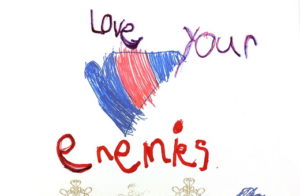 First Reading Deuteronomy 26:16-19
First Reading Deuteronomy 26:16-19
Moses said to the people: ‘The Lord your God today commands you to observe these laws and customs; you must keep and observe them with all your heart and with all your soul.
‘You have today made this declaration about the Lord: that he will be your God, but only if you follow his ways, keep his statutes, his commandments, his ordinances, and listen to his voice. And the Lord has today made this declaration about you: that you will be his very own people as he promised you, but only if you keep all his commandments; then for praise and renown and honour he will set you high above all the nations he has made, and you will be a people consecrated to the Lord, as he promised.’
Gospel Matthew 5:43-48
Jesus said to his disciples: ‘You have learnt how it was said: You must love your neighbour and hate your enemy. But I say this to you: love your enemies and pray for those who persecute you; in this way you will be sons of your Father in heaven, for he causes his sun to rise on bad men as well as good, and his rain to fall on honest and dishonest men alike. For if you love those who love you, what right have you to claim any credit? Even the tax collectors do as much, do they not? And if you save your greetings for your brothers, are you doing anything exceptional? Even the pagans do as much, do they not? You must therefore be perfect just as your heavenly Father is perfect.’
6/3/20 Friday of the 1st week of Lent
 First Reading Ezekiel 18:21-28
First Reading Ezekiel 18:21-28
Thus says the Lord:
‘If the wicked man renounces all the sins he has committed, respects my laws and is law-abiding and honest, he will certainly live; he will not die. All the sins he committed will be forgotten from then on; he shall live because of the integrity he has practised. What! Am I likely to take pleasure in the death of a wicked man – it is the Lord who speaks – and not prefer to see him renounce his wickedness and live?
‘But if the upright man renounces his integrity, commits sin, copies the wicked man and practises every kind of filth, is he to live? All the integrity he has practised shall be forgotten from then on; but this is because he himself has broken faith and committed sin, and for this he shall die. But you object, “What the Lord does is unjust.” Listen, you House of Israel: is what I do unjust? Is it not what you do that is unjust? When the upright man renounces his integrity to commit sin and dies because of this, he dies because of the evil that he himself has committed. When the sinner renounces sin to become law-abiding and honest, he deserves to live. He has chosen to renounce all his previous sins; he shall certainly live; he shall not die.’
Gospel Matthew 5:20-26
Jesus said to his disciples: ‘If your virtue goes no deeper than that of the scribes and Pharisees, you will never get into the kingdom of heaven.
‘You have learnt how it was said to our ancestors: You must not kill; and if anyone does kill he must answer for it before the court. But I say this to you: anyone who is angry with his brother will answer for it before the court; if a man calls his brother “Fool” he will answer for it before the Sanhedrin; and if a man calls him “Renegade” he will answer for it in hell fire. So then, if you are bringing your offering to the altar and there remember that your brother has something against you, leave your offering there before the altar, go and be reconciled with your brother first, and then come back and present your offering. Come to terms with your opponent in good time while you are still on the way to the court with him, or he may hand you over to the judge and the judge to the officer, and you will be thrown into prison. I tell you solemnly, you will not get out till you have paid the last penny.’
5/3/20 Thursday of the 1st week of Lent
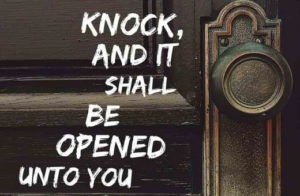 First Reading Esther 4:17
First Reading Esther 4:17
Queen Esther took refuge with the Lord in the mortal peril which had overtaken her. She besought the Lord God of Israel in these words: ‘My Lord, our King, the only one, come to my help, for I am alone and have no helper but you and am about to take my life in my hands. ‘I have been taught from my earliest years, in the bosom of my family, that you, Lord, chose Israel out of all the nations and our ancestors out of all the people of old times to be your heritage for ever; and that you have treated them as you promised. ‘Remember, Lord; reveal yourself in the time of our distress. ‘As for me, give me courage, King of gods and master of all power. Put persuasive words into my mouth when I face the lion; change his feeling into hatred for our enemy, that the latter and all like him may be brought to their end. ‘As for ourselves, save us by your hand, and come to my help, for I am alone and have no one but you, Lord.’
Gospel Matthew 7:7-12
Jesus said to his disciples, ‘Ask, and it will be given to you; search, and you will find; knock, and the door will be opened to you. For the one who asks always receives; the one who searches always finds; the one who knocks will always have the door opened to him. Is there a man among you who would hand his son a stone when he asked for bread? Or would hand him a snake when he asked for a fish? If you, then, who are evil, know how to give your children what is good, how much more will your Father in heaven give good things to those who ask him!
‘So always treat others as you would like them to treat you; that is the meaning of the Law and the Prophets.’
4/3/20 Wednesday of the 1st week of Lent
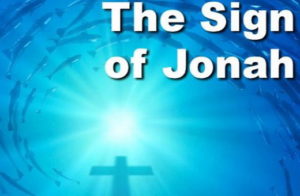 First Reading Jonah 3:1-10
First Reading Jonah 3:1-10
The word of the Lord was addressed to Jonah: ‘Up!’ he said ‘Go to Nineveh, the great city, and preach to them as I told you to.’ Jonah set out and went to Nineveh in obedience to the word of the Lord. Now Nineveh was a city great beyond compare: it took three days to cross it. Jonah went on into the city, making a day’s journey. He preached in these words, ‘Only forty days more and Nineveh is going to be destroyed.’ And the people of Nineveh believed in God; they proclaimed a fast and put on sackcloth, from the greatest to the least. The news reached the king of Nineveh, who rose from his throne, took off his robe, put on sackcloth and sat down in ashes. A proclamation was then promulgated throughout Nineveh, by decree of the king and his ministers, as follows: ‘Men and beasts, herds and flocks, are to taste nothing; they must not eat, they must not drink water. All are to put on sackcloth and call on God with all their might; and let everyone renounce his evil behaviour and the wicked things he has done. Who knows if God will not change his mind and relent, if he will not renounce his burning wrath, so that we do not perish?’ God saw their efforts to renounce their evil behaviour, and God relented: he did not inflict on them the disaster which he had threatened.
Gospel Luke 11:29-32
The crowds got even bigger, and Jesus addressed them:
‘This is a wicked generation; it is asking for a sign. The only sign it will be given is the sign of Jonah. For just as Jonah became a sign to the Ninevites, so will the Son of Man be to this generation. On Judgement day the Queen of the South will rise up with the men of this generation and condemn them, because she came from the ends of the earth to hear the wisdom of Solomon; and there is something greater than Solomon here. On Judgement day the men of Nineveh will stand up with this generation and condemn it, because when Jonah preached they repented; and there is something greater than Jonah here.’
3/3/20 Tuesday of the 1st week of Lent
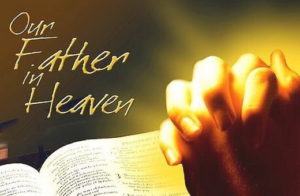 First Reading Isaiah 55:10-11
First Reading Isaiah 55:10-11
Thus says the Lord: ‘As the rain and the snow come down from the heavens and do not return without watering the earth, making it yield and giving growth to provide seed for the sower and bread for the eating, so the word that goes from my mouth does not return to me empty, without carrying out my will and succeeding in what it was sent to do.’
Gospel Matthew 6:7-15
Jesus said to his disciples: ‘In your prayers do not babble as the pagans do, for they think that by using many words they will make themselves heard. Do not be like them; your Father knows what you need before you ask him. So you should pray like this:
‘Our Father in heaven,
may your name be held holy,
your kingdom come,
your will be done,
on earth as in heaven.
Give us today our daily bread.
And forgive us our debts, as we have forgiven those who are in debt to us.
And do not put us to the test,
but save us from the evil one.
‘Yes, if you forgive others their failings, your heavenly Father will forgive you yours; but if you do not forgive others, your Father will not forgive your failings either.’
2/3/20 Monday of the 1st week of Lent
 First Reading Leviticus 19:1-2,11-18
First Reading Leviticus 19:1-2,11-18
The Lord spoke to Moses; he said: ‘Speak to the whole community of the sons of Israel and say to them:
‘“Be holy, for I, the Lord your God, am holy.
‘“You must not steal nor deal deceitfully or fraudulently with your neighbour. You must not swear falsely by my name, profaning the name of your God. I am the Lord. You must not exploit or rob your neighbour. You must not keep back the labourer’s wage until next morning. You must not curse the dumb, nor put an obstacle in the blind man’s way, but you must fear your God. I am the Lord.
‘“You must not be guilty of unjust verdicts. You must neither be partial to the little man nor overawed by the great; you must pass judgement on your neighbour according to justice. You must not slander your own people, and you must not jeopardise your neighbour’s life. I am the Lord. You must not bear hatred for your brother in your heart. You must openly tell him, your neighbour, of his offence; this way you will not take a sin upon yourself. You must not exact vengeance, nor must you bear a grudge against the children of your people. You must love your neighbour as yourself. I am the Lord.”’
Gospel Matthew 25:31-46
Jesus said to his disciples: ‘When the Son of Man comes in his glory, escorted by all the angels, then he will take his seat on his throne of glory. All the nations will be assembled before him and he will separate men one from another as the shepherd separates sheep from goats. He will place the sheep on his right hand and the goats on his left.
‘Then the King will say to those on his right hand, “Come, you whom my Father has blessed, take for your heritage the kingdom prepared for you since the foundation of the world. For I was hungry and you gave me food; I was thirsty and you gave me drink; I was a stranger and you made me welcome; naked and you clothed me, sick and you visited me, in prison and you came to see me.” Then the virtuous will say to him in reply, “Lord, when did we see you hungry and feed you; or thirsty and give you drink? When did we see you a stranger and make you welcome; naked and clothe you; sick or in prison and go to see you?” And the King will answer, “I tell you solemnly, in so far as you did this to one of the least of these brothers of mine, you did it to me.”
‘Next he will say to those on his left hand, “Go away from me, with your curse upon you, to the eternal fire prepared for the devil and his angels. For I was hungry and you never gave me food; I was thirsty and you never gave me anything to drink; I was a stranger and you never made me welcome, naked and you never clothed me, sick and in prison and you never visited me.” Then it will be their turn to ask, “Lord, when did we see you hungry or thirsty, a stranger or naked, sick or in prison, and did not come to your help?” Then he will answer, “I tell you solemnly, in so far as you neglected to do this to one of the least of these, you neglected to do it to me.”
‘And they will go away to eternal punishment, and the virtuous to eternal life.’
1/3/10 1st Sunday of Lent
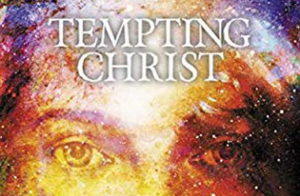 First Reading Genesis 2:7-9,3:1-7
First Reading Genesis 2:7-9,3:1-7
The Lord God fashioned man of dust from the soil. Then he breathed into his nostrils a breath of life, and thus man became a living being.
The Lord God planted a garden in Eden which is in the east, and there he put the man he had fashioned. The Lord God caused to spring up from the soil every kind of tree, enticing to look at and good to eat, with the tree of life and the tree of the knowledge of good and evil in the middle of the garden.
Now the serpent was the most subtle of all the wild beasts that the Lord God had made. It asked the woman, ‘Did God really say you were not to eat from any of the trees in the garden?’ The woman answered the serpent, ‘We may eat the fruit of the trees in the garden. But of the fruit of the tree in the middle of the garden God said, “You must not eat it, nor touch it, under pain of death.”’ Then the serpent said to the woman, ‘No! You will not die! God knows in fact that on the day you eat it your eyes will be opened and you will be like gods, knowing good and evil.’ The woman saw that the tree was good to eat and pleasing to the eye, and that it was desirable for the knowledge that it could give. So she took some of its fruit and ate it. She gave some also to her husband who was with her, and he ate it. Then the eyes of both of them were opened and they realised that they were naked. So they sewed fig-leaves together to make themselves loin-cloths.
Second Reading Romans 5:12-19
Sin entered the world through one man, and through sin death, and thus death has spread through the whole human race because everyone has sinned. Sin existed in the world long before the Law was given. There was no law and so no one could be accused of the sin of ‘law-breaking’, yet death reigned over all from Adam to Moses, even though their sin, unlike that of Adam, was not a matter of breaking a law.
Adam prefigured the One to come, but the gift itself considerably outweighed the fall. If it is certain that through one man’s fall so many died, it is even more certain that divine grace, coming through the one man, Jesus Christ, came to so many as an abundant free gift. The results of the gift also outweigh the results of one man’s sin: for after one single fall came judgement with a verdict of condemnation, now after many falls comes grace with its verdict of acquittal. If it is certain that death reigned over everyone as the consequence of one man’s fall, it is even more certain that one man, Jesus Christ, will cause everyone to reign in life who receives the free gift that he does not deserve, of being made righteous. Again, as one man’s fall brought condemnation on everyone, so the good act of one man brings everyone life and makes them justified. As by one man’s disobedience many were made sinners, so by one man’s obedience many will be made righteous.
Gospel Matthew 4:1-11
Jesus was led by the Spirit out into the wilderness to be tempted by the devil. He fasted for forty days and forty nights, after which he was very hungry, and the tempter came and said to him, ‘If you are the Son of God, tell these stones to turn into loaves.’ But he replied, ‘Scripture says:
Man does not live on bread alone
but on every word that comes from the mouth of God.’
The devil then took him to the holy city and made him stand on the parapet of the Temple. ‘If you are the Son of God’ he said ‘throw yourself down; for scripture says:
He will put you in his angels’ charge,
and they will support you on their hands
in case you hurt your foot against a stone.’
Jesus said to him, ‘Scripture also says:
You must not put the Lord your God to the test.’
Next, taking him to a very high mountain, the devil showed him all the kingdoms of the world and their splendour. ‘I will give you all these’ he said, ‘if you fall at my feet and worship me.’ Then Jesus replied, ‘Be off, Satan! For scripture says:
You must worship the Lord your God,
and serve him alone.’
Then the devil left him, and angels appeared and looked after him.
29/2/20 Saturday after Ash Wednesday
 First Reading Isaiah 58:9-14
First Reading Isaiah 58:9-14
The Lord says this: If you do away with the yoke, the clenched fist, the wicked word,
if you give your bread to the hungry, and relief to the oppressed, your light will rise in the darkness, and your shadows become like noon. The Lord will always guide you,
giving you relief in desert places. He will give strength to your bones and you shall be like a watered garden, like a spring of water whose waters never run dry. You will rebuild the ancient ruins, build up on the old foundations. You will be called ‘Breach-mender’, ‘Restorer of ruined houses.’ If you refrain from trampling the sabbath, and doing business on the holy day, if you call the Sabbath ‘Delightful’, and the day sacred to the Lord ‘Honourable’, if you honour it by abstaining from travel,
from doing business and from gossip, then shall you find your happiness in the Lord and I will lead you triumphant over the heights of the land. I will feed you on the heritage of Jacob your father. For the mouth of the Lord has spoken.
Gospel Luke 5:27-32
Jesus noticed a tax collector, Levi by name, sitting by the customs house, and said to him, ‘Follow me.’ And leaving everything he got up and followed him.
In his honour Levi held a great reception in his house, and with them at table was a large gathering of tax collectors and others. The Pharisees and their scribes complained to his disciples and said, ‘Why do you eat and drink with tax collectors and sinners?’ Jesus said to them in reply, ‘It is not those who are well who need the doctor, but the sick. I have not come to call the virtuous, but sinners to repentance.’
28/2/20 Friday after Ash Wednesday
First Reading Isaiah 58:1-9
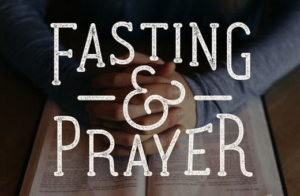 Thus says the Lord: Shout for all you are worth, raise your voice like a trumpet. Proclaim their faults to my people, their sins to the House of Jacob. They seek me day after day, they long to know my ways, like a nation that wants to act with integrity and not ignore the law of its God. They ask me for laws that are just, they long for God to draw near: ‘Why should we fast if you never see it, why do penance if you never notice?’ Look, you do business on your fast-days, you oppress all your workmen; look, you quarrel and squabble when you fast and strike the poor man with your fist. Fasting like yours today will never make your voice heard on high. Is that the sort of fast that pleases me, a truly penitential day for men? Hanging your head like a reed, lying down on sackcloth and ashes? Is that what you call fasting, a day acceptable to the Lord? Is not this the sort of fast that pleases me – it is the Lord who speaks – to break unjust fetters and undo the thongs of the yoke, to let the oppressed go free, and break every yoke, to share your bread with the hungry, and shelter the homeless poor, to clothe the man you see to be naked and not turn from your own kin? Then will your light shine like the dawn and your wound be quickly healed over.
Thus says the Lord: Shout for all you are worth, raise your voice like a trumpet. Proclaim their faults to my people, their sins to the House of Jacob. They seek me day after day, they long to know my ways, like a nation that wants to act with integrity and not ignore the law of its God. They ask me for laws that are just, they long for God to draw near: ‘Why should we fast if you never see it, why do penance if you never notice?’ Look, you do business on your fast-days, you oppress all your workmen; look, you quarrel and squabble when you fast and strike the poor man with your fist. Fasting like yours today will never make your voice heard on high. Is that the sort of fast that pleases me, a truly penitential day for men? Hanging your head like a reed, lying down on sackcloth and ashes? Is that what you call fasting, a day acceptable to the Lord? Is not this the sort of fast that pleases me – it is the Lord who speaks – to break unjust fetters and undo the thongs of the yoke, to let the oppressed go free, and break every yoke, to share your bread with the hungry, and shelter the homeless poor, to clothe the man you see to be naked and not turn from your own kin? Then will your light shine like the dawn and your wound be quickly healed over.
Your integrity will go before you and the glory of the Lord behind you. Cry, and the Lord will answer; call, and he will say, ‘I am here.’
Gospel Matthew 9:14-15
John’s disciples came to Jesus and said, ‘Why is it that we and the Pharisees fast, but your disciples do not?’ Jesus replied, ‘Surely the bridegroom’s attendants would never think of mourning as long as the bridegroom is still with them? But the time will come for the bridegroom to be taken away from them, and then they will fast.’
27/2/20 Thursday after Ash Wednesday
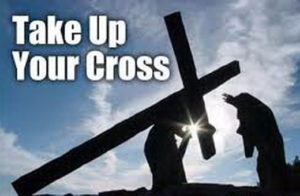 First Reading Deuteronomy 30:15-20
First Reading Deuteronomy 30:15-20
Moses said to the people: ‘See, today I set before you life and prosperity, death and disaster. If you obey the commandments of the Lord your God that I enjoin on you today, if you love the Lord your God and follow his ways, if you keep his commandments, his laws, his customs, you will live and increase, and the Lord your God will bless you in the land which you are entering to make your own. But if your heart strays, if you refuse to listen, if you let yourself be drawn into worshipping other gods and serving them, I tell you today, you will most certainly perish; you will not live long in the land you are crossing the Jordan to enter and possess. I call heaven and earth to witness against you today: I set before you life or death, blessing or curse. Choose life, then, so that you and your descendants may live, in the love of the Lord your God, obeying his voice, clinging to him; for in this your life consists, and on this depends your long stay in the land which the Lord swore to your fathers Abraham, Isaac and Jacob he would give them.’
Gospel Luke 9:22-25
Jesus said to his disciples:
‘The Son of Man is destined to suffer grievously, to be rejected by the elders and chief priests and scribes and to be put to death, and to be raised up on the third day.’
Then to all he said:
‘If anyone wants to be a follower of mine, let him renounce himself and take up his cross every day and follow me. For anyone who wants to save his life will lose it; but anyone who loses his life for my sake, that man will save it. What gain, then, is it for a man to have won the whole world and to have lost or ruined his very self?’
26/2/20 Ash Wednesday
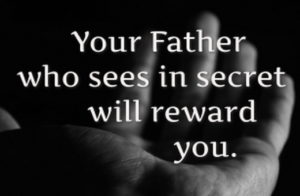 First Reading Joel 2:12-18
First Reading Joel 2:12-18
‘Now, now – it is the Lord who speaks – come back to me with all your heart, fasting, weeping, mourning.’ Let your hearts be broken, not your garments torn, turn to the Lord your God again, for he is all tenderness and compassion, slow to anger, rich in graciousness, and ready to relent. Who knows if he will not turn again, will not relent, will not leave a blessing as he passes, oblation and libation for the Lord your God? Sound the trumpet in Zion! Order a fast, proclaim a solemn assembly, call the people together, summon the community, assemble the elders, gather the children,
even the infants at the breast. Let the bridegroom leave his bedroom and the bride her alcove. Between vestibule and altar let the priests, the ministers of the Lord, lament. Let them say, ‘Spare your people, Lord! Do not make your heritage a thing of shame, a byword for the nations. Why should it be said among the nations,
“Where is their God?”’ Then the Lord, jealous on behalf of his land, took pity on his people.
Second Reading 2 Corinthians 5:20-6:2
We are ambassadors for Christ; it is as though God were appealing through us, and the appeal that we make in Christ’s name is: be reconciled to God. For our sake God made the sinless one into sin, so that in him we might become the goodness of God. As his fellow workers, we beg you once again not to neglect the grace of God that you have received. For he says: At the favourable time, I have listened to you; on the day of salvation I came to your help. Well, now is the favourable time; this is the day of salvation.
Gospel Matthew 6:1-6,16-18
Jesus said to his disciples: ‘Be careful not to parade your good deeds before men to attract their notice; by doing this you will lose all reward from your Father in heaven. So when you give alms, do not have it trumpeted before you; this is what the hypocrites do in the synagogues and in the streets to win men’s admiration. I tell you solemnly, they have had their reward. But when you give alms, your left hand must not know what your right is doing; your almsgiving must be secret, and your Father who sees all that is done in secret will reward you.
‘And when you pray, do not imitate the hypocrites: they love to say their prayers standing up in the synagogues and at the street corners for people to see them; I tell you solemnly, they have had their reward. But when you pray, go to your private room and, when you have shut your door, pray to your Father who is in that secret place, and your Father who sees all that is done in secret will reward you.
‘When you fast do not put on a gloomy look as the hypocrites do: they pull long faces to let men know they are fasting. I tell you solemnly, they have had their reward. But when you fast, put oil on your head and wash your face, so that no one will know you are fasting except your Father who sees all that is done in secret; and your Father who sees all that is done in secret will reward you.’
25/2/20 Tuesday of week 7 in Ordinary Time
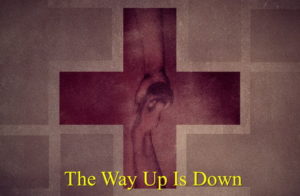
First Reading James 4:1-10
Where do these wars and battles between yourselves first start? Isn’t it precisely in the desires fighting inside your own selves? You want something and you haven’t got it; so you are prepared to kill. You have an ambition that you cannot satisfy; so you fight to get your way by force. Why you don’t have what you want is because you don’t pray for it; when you do pray and don’t get it, it is because you have not prayed properly, you have prayed for something to indulge your own desires.
You are as unfaithful as adulterous wives; don’t you realise that making the world your friend is making God your enemy? Anyone who chooses the world for his friend turns himself into God’s enemy. Surely you don’t think scripture is wrong when it says: the spirit which he sent to live in us wants us for himself alone? But he has been even more generous to us, as scripture says: God opposes the proud but he gives generously to the humble. Give in to God, then; resist the devil, and he will run away from you. The nearer you go to God, the nearer he will come to you. Clean your hands, you sinners, and clear your minds, you waverers. Look at your wretched condition, and weep for it in misery; be miserable instead of laughing, gloomy instead of happy. Humble yourselves before the Lord and he will lift you up.
Gospel Mark 9:30-37
Jesus and his disciples made their way through Galilee; and he did not want anyone to know, because he was instructing his disciples; he was telling them, ‘The Son of Man will be delivered into the hands of men; they will put him to death; and three days after he has been put to death he will rise again.’ But they did not understand what he said and were afraid to ask him.
They came to Capernaum, and when he was in the house he asked them, ‘What were you arguing about on the road?’ They said nothing because they had been arguing which of them was the greatest. So he sat down, called the Twelve to him and said, ‘If anyone wants to be first, he must make himself last of all and servant of all.’ He then took a little child, set him in front of them, put his arms round him, and said to them, ‘Anyone who welcomes one of these little children in my name, welcomes me; and anyone who welcomes me welcomes not me but the one who sent me.’
24/2/20 Monday of week 7 in Ordinary Time
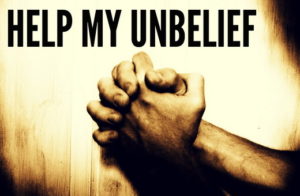 First Reading James 3:13-18
First Reading James 3:13-18
If there are any wise or learned men among you, let them show it by their good lives, with humility and wisdom in their actions. But if at heart you have the bitterness of jealousy, or a self-seeking ambition, never make any claims for yourself or cover up the truth with lies – principles of this kind are not the wisdom that comes down from above: they are only earthly, animal and devilish. Wherever you find jealousy and ambition, you find disharmony, and wicked things of every kind being done; whereas the wisdom that comes down from above is essentially something pure; it also makes for peace, and is kindly and considerate; it is full of compassion and shows itself by doing good; nor is there any trace of partiality or hypocrisy in it. Peacemakers, when they work for peace, sow the seeds which will bear fruit in holiness.
Gospel Mark 9:14-29
When Jesus, with Peter, James and John came down from the mountain and rejoined the disciples, they saw a large crowd round them and some scribes arguing with them. The moment they saw him the whole crowd were struck with amazement and ran to greet him. ‘What are you arguing about with them?’ he asked. A man answered him from the crowd, ‘Master, I have brought my son to you; there is a spirit of dumbness in him, and when it takes hold of him it throws him to the ground, and he foams at the mouth and grinds his teeth and goes rigid. And I asked your disciples to cast it out and they were unable to.’ ‘You faithless generation’ he said to them in reply. ‘How much longer must I be with you? How much longer must I put up with you? Bring him to me.’ They brought the boy to him, and as soon as the spirit saw Jesus it threw the boy into convulsions, and he fell to the ground and lay writhing there, foaming at the mouth. Jesus asked the father, ‘How long has this been happening to him?’ ‘From childhood,’ he replied ‘and it has often thrown him into the fire and into the water, in order to destroy him. But if you can do anything, have pity on us and help us.’ ‘If you can?’ retorted Jesus. ‘Everything is possible for anyone who has faith.’ Immediately the father of the boy cried out, ‘I do have faith. Help the little faith I have!’ And when Jesus saw how many people were pressing round him, he rebuked the unclean spirit. ‘Deaf and dumb spirit,’ he said ‘I command you: come out of him and never enter him again.’ Then throwing the boy into violent convulsions it came out shouting, and the boy lay there so like a corpse that most of them said, ‘He is dead.’ But Jesus took him by the hand and helped him up, and he was able to stand. When he had gone indoors his disciples asked him privately, ‘Why were we unable to cast it out?’ ‘This is the kind’ he answered ‘that can only be driven out by prayer.’
23/2/20 7th Sunday in Ordinary Time
 First Reading Leviticus 19:1-2,17-18
First Reading Leviticus 19:1-2,17-18
The Lord spoke to Moses; he said: ‘Speak to the whole community of the sons of Israel and say to them:
‘“Be holy, for I, the Lord your God, am holy.
‘“You must not bear hatred for your brother in your heart. You must openly tell him, your neighbour, of his offence; this way you will not take a sin upon yourself. You must not exact vengeance, nor must you bear a grudge against the children of your people. You must love your neighbour as yourself. I am the Lord.”’
Second Reading 1 Corinthians 3:16-23
Didn’t you realise that you were God’s temple and that the Spirit of God was living among you? If anybody should destroy the temple of God, God will destroy him, because the temple of God is sacred; and you are that temple.
Make no mistake about it: if any one of you thinks of himself as wise, in the ordinary sense of the word, then he must learn to be a fool before he really can be wise. Why? Because the wisdom of this world is foolishness to God. As scripture says: The Lord knows wise men’s thoughts: he knows how useless they are; or again: God is not convinced by the arguments of the wise. So there is nothing to boast about in anything human: Paul, Apollos, Cephas, the world, life and death, the present and the future, are all your servants; but you belong to Christ and Christ belongs to God.
Gospel Matthew 5:38-48
Jesus said to his disciples: ‘You have learnt how it was said: Eye for eye and tooth for tooth. But I say this to you: offer the wicked man no resistance. On the contrary, if anyone hits you on the right cheek, offer him the other as well; if a man takes you to law and would have your tunic, let him have your cloak as well. And if anyone orders you to go one mile, go two miles with him. Give to anyone who asks, and if anyone wants to borrow, do not turn away.
‘You have learnt how it was said: You must love your neighbour and hate your enemy. But I say this to you: love your enemies and pray for those who persecute you; in this way you will be sons of your Father in heaven, for he causes his sun to rise on bad men as well as good, and his rain to fall on honest and dishonest men alike. For if you love those who love you, what right have you to claim any credit? Even the tax collectors do as much, do they not? And if you save your greetings for your brothers, are you doing anything exceptional? Even the pagans do as much, do they not? You must therefore be perfect just as your heavenly Father is perfect.’
22/2/20 Chair of Saint Peter, apostle
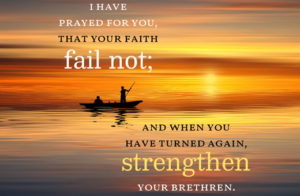 First Reading First Letter of Peter 5,1-4.
First Reading First Letter of Peter 5,1-4.
Beloved: I exhort the presbyters among you, as a fellow presbyter and witness to the sufferings of Christ and one who has a share in the glory to be revealed.
Tend the flock of God in your midst, (overseeing) not by constraint but willingly, as God would have it, not for shameful profit but eagerly.
Do not lord it over those assigned to you, but be examples to the flock.
And when the chief Shepherd is revealed, you will receive the unfading crown of glory.
Gospel Matthew 16,13-19
Jesus went into the region of Caesarea Philippi and he asked his disciples, “Who do people say that the Son of Man is?”
They replied, “Some say John the Baptist, others Elijah, still others Jeremiah or one of the prophets.”
He said to them, “But who do you say that I am?”
Simon Peter said in reply, “You are the Messiah, the Son of the living God.”
Jesus said to him in reply, “Blessed are you, Simon son of Jonah. For flesh and blood has not revealed this to you, but my heavenly Father.
And so I say to you, you are Peter, and upon this rock I will build my church, and the gates of the netherworld shall not prevail against it.
I will give you the keys to the kingdom of heaven. Whatever you bind on earth shall be bound in heaven; and whatever you loose on earth shall be loosed in heaven.”
21/2/20 Friday of week 6 in Ordinary Time
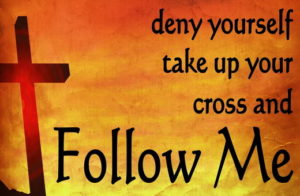 First Reading James 2:14-24,26
First Reading James 2:14-24,26
Take the case, my brothers, of someone who has never done a single good act but claims that he has faith. Will that faith save him? If one of the brothers or one of the sisters is in need of clothes and has not enough food to live on, and one of you says to them, ‘I wish you well; keep yourself warm and eat plenty’, without giving them these bare necessities of life, then what good is that? Faith is like that: if good works do not go with it, it is quite dead.
This is the way to talk to people of that kind: ‘You say you have faith and I have good deeds; I will prove to you that I have faith by showing you my good deeds – now you prove to me that you have faith without any good deeds to show. You believe in the one God – that is creditable enough, but the demons have the same belief, and they tremble with fear. Do realise, you senseless man, that faith without good deeds is useless. You surely know that Abraham our father was justified by his deed, because he offered his son Isaac on the altar? There you see it: faith and deeds were working together; his faith became perfect by what he did. This is what scripture really means when it says: Abraham put his faith in God, and this was counted as making him justified; and that is why he was called ‘the friend of God.’
You see now that it is by doing something good, and not only by believing, that a man is justified. A body dies when it is separated from the spirit, and in the same way faith is dead if it is separated from good deeds.
Gospel Mark 8:34-9:1
Jesus called the people and his disciples to him and said:
‘If anyone wants to be a follower of mine, let him renounce himself and take up his cross and follow me. For anyone who wants to save his life will lose it; but anyone who loses his life for my sake, and for the sake of the gospel, will save it. What gain, then, is it for a man to win the whole world and ruin his life? And indeed what can a man offer in exchange for his life? For if anyone in this adulterous and sinful generation is ashamed of me and of my words, the Son of Man will also be ashamed of him when he comes in the glory of his Father with the holy angels.’ And he said to them, ‘I tell you solemnly, there are some standing here who will not taste death before they see the kingdom of God come with power.’
20/2/20 Thursday of week 6 in Ordinary Time
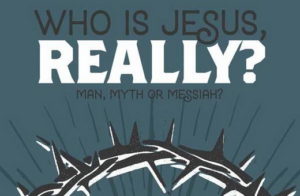 First Reading James 2:1-9
First Reading James 2:1-9
My brothers, do not try to combine faith in Jesus Christ, our glorified Lord, with the making of distinctions between classes of people. Now suppose a man comes into your synagogue, beautifully dressed and with a gold ring on, and at the same time a poor man comes in, in shabby clothes, and you take notice of the well-dressed man, and say, ‘Come this way to the best seats’; then you tell the poor man, ‘Stand over there’ or ‘You can sit on the floor by my foot-rest.’ Can’t you see that you have used two different standards in your mind, and turned yourselves into judges, and corrupt judges at that?
Listen, my dear brothers: it was those who are poor according to the world that God chose, to be rich in faith and to be the heirs to the kingdom which he promised to those who love him. In spite of this, you have no respect for anybody who is poor. Isn’t it always the rich who are against you? Isn’t it always their doing when you are dragged before the court? Aren’t they the ones who insult the honourable name to which you have been dedicated? Well, the right thing to do is to keep the supreme law of scripture: you must love your neighbour as yourself; but as soon as you make distinctions between classes of people, you are committing sin, and under condemnation for breaking the Law.
Gospel Mark 8:27-33
Jesus and his disciples left for the villages round Caesarea Philippi. On the way he put this question to his disciples, ‘Who do people say I am?’ And they told him. ‘John the Baptist,’ they said ‘others Elijah; others again, one of the prophets.’ ‘But you,’ he asked ‘who do you say I am?’ Peter spoke up and said to him, ‘You are the Christ.’ And he gave them strict orders not to tell anyone about him.
And he began to teach them that the Son of Man was destined to suffer grievously, to be rejected by the elders and the chief priests and the scribes, and to be put to death, and after three days to rise again; and he said all this quite openly. Then, taking him aside, Peter started to remonstrate with him. But, turning and seeing his disciples, he rebuked Peter and said to him, ‘Get behind me, Satan! Because the way you think is not God’s way but man’s.’
19/2/20 Wednesday of week 6 in Ordinary Time
 First Reading James 1:19-27
First Reading James 1:19-27
Remember this, my dear brothers: be quick to listen but slow to speak and slow to rouse your temper; God’s righteousness is never served by man’s anger; so do away with all the impurities and bad habits that are still left in you – accept and submit to the word which has been planted in you and can save your souls. But you must do what the word tells you, and not just listen to it and deceive yourselves. To listen to the word and not obey is like looking at your own features in a mirror and then, after a quick look, going off and immediately forgetting what you looked like. But the man who looks steadily at the perfect law of freedom and makes that his habit – not listening and then forgetting, but actively putting it into practice – will be happy in all that he does.
Nobody must imagine that he is religious while he still goes on deceiving himself and not keeping control over his tongue; anyone who does this has the wrong idea of religion. Pure, unspoilt religion, in the eyes of God our Father is this: coming to the help of orphans and widows when they need it, and keeping oneself uncontaminated by the world.
Gospel Mark 8:22-26
Jesus and his disciples came to Bethsaida, and some people brought to him a blind man whom they begged him to touch. He took the blind man by the hand and led him outside the village. Then putting spittle on his eyes and laying his hands on him, he asked, ‘Can you see anything?’ The man, who was beginning to see, replied, ‘I can see people; they look like trees to me, but they are walking about.’ Then he laid his hands on the man’s eyes again and he saw clearly; he was cured, and he could see everything plainly and distinctly. And Jesus sent him home, saying, ‘Do not even go into the village.’
18/2/20 Tuesday of week 6 in Ordinary Time
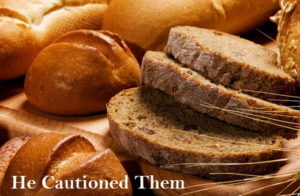 First Reading James 1:12-1
First Reading James 1:12-1
Happy the man who stands firm when trials come. He has proved himself, and will win the prize of life, the crown that the Lord has promised to those who love him.
Never, when you have been tempted, say, ‘God sent the temptation’; God cannot be tempted to do anything wrong, and he does not tempt anybody. Everyone who is tempted is attracted and seduced by his own wrong desire. Then the desire conceives and gives birth to sin, and when sin is fully grown, it too has a child, and the child is death.
Make no mistake about this, my dear brothers: it is all that is good, everything that is perfect, which is given us from above; it comes down from the Father of all light; with him there is no such thing as alteration, no shadow of a change. By his own choice he made us his children by the message of the truth so that we should be a sort of first-fruits of all that he had created.
Gospel Mark 8:14-21
The disciples had forgotten to take any food and they had only one loaf with them in the boat. Then he gave them this warning, ‘Keep your eyes open; be on your guard against the yeast of the Pharisees and the yeast of Herod.’ And they said to one another, ‘It is because we have no bread.’ And Jesus knew it, and he said to them, ‘Why are you talking about having no bread? Do you not yet understand? Have you no perception? Are your minds closed? Have you eyes that do not see, ears that do not hear? Or do you not remember? When I broke the five loaves among the five thousand, how many baskets full of scraps did you collect?’ They answered, ‘Twelve.’ ‘And when I broke the seven loaves for the four thousand, how many baskets full of scraps did you collect?’ And they answered, ‘Seven.’ Then he said to them, ‘Are you still without perception?’
17/2/20 Monday of week 6 in Ordinary Time
 First Reading James 1:1-11
First Reading James 1:1-11
From James, servant of God and of the Lord Jesus Christ. Greetings to the twelve tribes of the Dispersion.
My brothers, you will always have your trials but, when they come, try to treat them as a happy privilege; you understand that your faith is only put to the test to make you patient, but patience too is to have its practical results so that you will become fully-developed, complete, with nothing missing.
If there is any one of you who needs wisdom, he must ask God, who gives to all freely and ungrudgingly; it will be given to him. But he must ask with faith, and no trace of doubt, because a person who has doubts is like the waves thrown up in the sea when the wind drives. That sort of person, in two minds, wavering between going different ways, must not expect that the Lord will give him anything.
It is right for the poor brother to be proud of his high rank, and the rich one to be thankful that he has been humbled, because riches last no longer than the flowers in the grass; the scorching sun comes up, and the grass withers, the flower falls; what looked so beautiful now disappears. It is the same with the rich man: his business goes on; he himself perishes.
Gospel Mark 8:11-13
The Pharisees came up and started a discussion with Jesus; they demanded of him a sign from heaven, to test him. And with a sigh that came straight from the heart he said, ‘Why does this generation demand a sign? I tell you solemnly, no sign shall be given to this generation.’ And leaving them again and re-embarking, he went away to the opposite shore.
16/2/20 6th Sunday in Ordinary Time
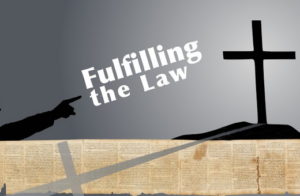 First Reading Ecclesiasticus 15:16-21
First Reading Ecclesiasticus 15:16-21
If you wish, you can keep the commandments, to behave faithfully is within your power. He has set fire and water before you; put out your hand to whichever you prefer. Man has life and death before him; whichever a man likes better will be given him. For vast is the wisdom of the Lord; he is almighty and all-seeing. His eyes are on those who fear him, he notes every action of man. He never commanded anyone to be godless, he has given no one permission to sin.
Second Reading 1 Corinthians 2:6-10
We have a wisdom to offer those who have reached maturity: not a philosophy of our age, it is true, still less of the masters of our age, which are coming to their end. The hidden wisdom of God which we teach in our mysteries is the wisdom that God predestined to be for our glory before the ages began. It is a wisdom that none of the masters of this age have ever known, or they would not have crucified the Lord of Glory; we teach what scripture calls: the things that no eye has seen and no ear has heard, things beyond the mind of man, all that God has prepared for those who love him.
These are the very things that God has revealed to us through the Spirit, for the Spirit reaches the depths of everything, even the depths of God.
Gospel Matthew 5:17-37
Jesus said to his disciples: ‘Do not imagine that I have come to abolish the Law or the Prophets. I have come not to abolish but to complete them. I tell you solemnly, till heaven and earth disappear, not one dot, not one little stroke, shall disappear from the Law until its purpose is achieved. Therefore, the man who infringes even one of the least of these commandments and teaches others to do the same will be considered the least in the kingdom of heaven; but the man who keeps them and teaches them will be considered great in the kingdom of heaven.
‘For I tell you, if your virtue goes no deeper than that of the scribes and Pharisees, you will never get into the kingdom of heaven.
‘You have learnt how it was said to our ancestors: You must not kill; and if anyone does kill he must answer for it before the court. But I say this to you: anyone who is angry with his brother will answer for it before the court; if a man calls his brother “Fool” he will answer for it before the Sanhedrin; and if a man calls him “Renegade” he will answer for it in hell fire. So then, if you are bringing your offering to the altar and there remember that your brother has something against you, leave your offering there before the altar, go and be reconciled with your brother first, and then come back and present your offering. Come to terms with your opponent in good time while you are still on the way to the court with him, or he may hand you over to the judge and the judge to the officer, and you will be thrown into prison. I tell you solemnly, you will not get out till you have paid the last penny.
‘You have learnt how it was said: You must not commit adultery. But I say this to you: if a man looks at a woman lustfully, he has already committed adultery with her in his heart. If your right eye should cause you to sin, tear it out and throw it away; for it will do you less harm to lose one part of you than to have your whole body thrown into hell. And if your right hand should cause you to sin, cut it off and throw it away; for it will do you less harm to lose one part of you than to have your whole body go to hell.
‘It has also been said: Anyone who divorces his wife must give her a writ of dismissal. But I say this to you: everyone who divorces his wife, except for the case of fornication, makes her an adulteress; and anyone who marries a divorced woman commits adultery.
‘Again, you have learnt how it was said to our ancestors: You must not break your oath, but must fulfil your oaths to the Lord. But I say this to you: do not swear at all, either by heaven, since that is God’s throne; or by the earth, since that is his footstool; or by Jerusalem, since that is the city of the great king. Do not swear by your own head either, since you cannot turn a single hair white or black. All you need say is “Yes” if you mean yes, “No” if you mean no; anything more than this comes from the evil one.’
15/2/20 Saturday of week 5 in Ordinary Time
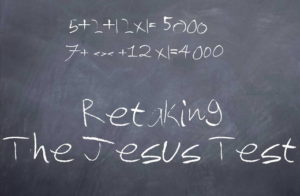 First Reading 1 Kings 12:26-32,13:33-34
First Reading 1 Kings 12:26-32,13:33-34
Jeroboam thought to himself, ‘As things are, the kingdom will revert to the House of David. If this people continues to go up to the Temple of the Lord in Jerusalem to offer sacrifices, the people’s heart will turn back again to their lord, Rehoboam king of Judah, and they will put me to death.’ So the king thought this over and then made two golden calves; he said to the people, ‘You have been going up to Jerusalem long enough. Here are your gods, Israel; these brought you up out of the land of Egypt!’ He set up one in Bethel and the people went in procession all the way to Dan in front of the other. He set up the temple of the high places and appointed priests from ordinary families, who were not of the sons of Levi. Jeroboam also instituted a feast in the eighth month, on the fifteenth of the month, like the feast that was kept in Judah, and he went up to the altar. That was how he behaved in Bethel, sacrificing to the calves he had made; and at Bethel he put the priests of the high places he had established.
Jeroboam did not give up his wicked ways but went on appointing priests for the high places from the common people. He consecrated as priests of the high places any who wished to be. Such conduct made the House of Jeroboam a sinful House, and caused its ruin and extinction from the face of the earth.
Gospel Mark 8:1-10
A great crowd had gathered, and they had nothing to eat. So Jesus called his disciples to him and said to them, ‘I feel sorry for all these people; they have been with me for three days now and have nothing to eat. If I send them off home hungry they will collapse on the way; some have come a great distance.’ His disciples replied, ‘Where could anyone get bread to feed these people in a deserted place like this?’ He asked them, ‘How many loaves have you?’ ‘Seven’ they said. Then he instructed the crowd to sit down on the ground, and he took the seven loaves, and after giving thanks he broke them and handed them to his disciples to distribute; and they distributed them among the crowd. They had a few small fish as well, and over these he said a blessing and ordered them to be distributed also. They ate as much as they wanted, and they collected seven basketfuls of the scraps left over. Now there had been about four thousand people. He sent them away and immediately, getting into the boat with his disciples, went to the region of Dalmanutha.
14/2/20 Friday of week 5 in Ordinary Time
 First Reading 1 Kings 11:29-32,12:19
First Reading 1 Kings 11:29-32,12:19
One day when Jeroboam had gone out of Jerusalem, the prophet Ahijah of Shiloh accosted him on the road. Ahijah was wearing a new cloak; the two of them were in the open country by themselves. Ahijah took the new cloak he was wearing and tore it into twelve strips, saying to Jeroboam, ‘Take ten strips for yourself, for thus the Lord speaks, the God of Israel, “I am going to tear the kingdom from Solomon’s hand and give ten tribes to you. He shall keep one tribe for the sake of my servant David and for the sake of Jerusalem, the city I have chosen out of all the tribes of Israel.’
And Israel has been separated from the House of David until the present day.
Gospel Mark 7:31-37
Returning from the district of Tyre, Jesus went by way of Sidon towards the Sea of Galilee, right through the Decapolis region. And they brought him a deaf man who had an impediment in his speech; and they asked him to lay his hand on him. He took him aside in private, away from the crowd, put his fingers into the man’s ears and touched his tongue with spittle. Then looking up to heaven he sighed; and he said to him, ‘Ephphatha’, that is, ‘Be opened.’ And his ears were opened, and the ligament of his tongue was loosened and he spoke clearly. And Jesus ordered them to tell no one about it, but the more he insisted, the more widely they published it. Their admiration was unbounded. ‘He has done all things well,’ they said ‘he makes the deaf hear and the dumb speak.’
13/2/20 Thursday of week 5 in Ordinary Time
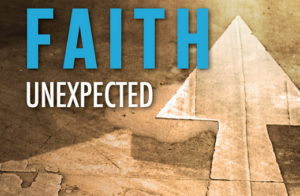 First Reading 1 Kings 11:4-13
First Reading 1 Kings 11:4-13
When Solomon grew old his wives swayed his heart to other gods; and his heart was not wholly with the Lord his God as his father David’s had been. Solomon became a follower of Astarte, the goddess of the Sidonians, and of Milcom, the Ammonite abomination. He did what was displeasing to the Lord, and was not a wholehearted follower of the Lord, as his father David had been. Then it was that Solomon built a high place for Chemosh the god of Moab on the mountain to the east of Jerusalem, and to Milcom the god of the Ammonites. He did the same for all his foreign wives, who offered incense and sacrifice to their gods.
The Lord was angry with Solomon because his heart had turned from the Lord the God of Israel who had twice appeared to him and who had then forbidden him to follow other gods; but he did not carry out the Lord’s order. The Lord therefore said to Solomon, ‘Since you behave like this and do not keep my covenant or the laws I laid down for you, I will most surely tear the kingdom away from you and give it to one of your servants. For your father David’s sake, however, I will not do this during your lifetime, but will tear it out of your son’s hands. Even so, I will not tear the whole kingdom from him. For the sake of my servant David, and for the sake of Jerusalem which I have chosen, I will leave your son one tribe.’
Gospel Mark 7:24-30
Jesus left Gennesaret and set out for the territory of Tyre. There he went into a house and did not want anyone to know he was there, but he could not pass unrecognised. A woman whose little daughter had an unclean spirit heard about him straightaway and came and fell at his feet. Now the woman was a pagan, by birth a Syrophoenician, and she begged him to cast the devil out of her daughter. And he said to her, ‘The children should be fed first, because it is not fair to take the children’s food and throw it to the house-dogs.’ But she spoke up: ‘Ah yes, sir,’ she replied ‘but the house-dogs under the table can eat the children’s scraps.’ And he said to her, ‘For saying this, you may go home happy: the devil has gone out of your daughter.’ So she went off to her home and found the child lying on the bed and the devil gone.
12/2/20 Wednesday of week 5 in Ordinary Time
 First Reading 1 Kings 10:1-10
First Reading 1 Kings 10:1-10
The fame of Solomon having reached the queen of Sheba, she came to test him with difficult questions. She brought immense riches to Jerusalem with her, camels laden with spices, great quantities of gold, and precious stones. On coming to Solomon, she opened her mind freely to him; and Solomon had an answer for all her questions, not one of them was too obscure for the king to expound. When the queen of Sheba saw all the wisdom of Solomon, the palace he had built, the food at his table, the accommodation for his officials, the organisation of his staff and the way they were dressed, his cup-bearers, and the holocausts he offered in the Temple of the Lord, it left her breathless, and she said to the king, ‘What I heard in my own country about you and your wisdom was true, then! Until I came and saw it with my own eyes I could not believe what they told me, but clearly they told me less than half: for wisdom and prosperity you surpass the report I heard. How happy your wives are! How happy are these servants of yours who wait on you always and hear your wisdom! Blessed be the Lord your God who has granted you his favour, setting you on the throne of Israel! Because of the Lord’s everlasting love for Israel, he has made you king to deal out law and justice.’ And she presented the king with a hundred and twenty talents of gold and great quantities of spices and precious stones; no such wealth of spices ever came again as those given to King Solomon by the queen of Sheba.
Gospel Mark 7:14-23
Jesus called the people to him and said, ‘Listen to me, all of you, and understand. Nothing that goes into a man from outside can make him unclean; it is the things that come out of a man that make him unclean. If anyone has ears to hear, let him listen to this.’
When he had gone back into the house, away from the crowd, his disciples questioned him about the parable. He said to them, ‘Do you not understand either? Can you not see that whatever goes into a man from outside cannot make him unclean, because it does not go into his heart but through his stomach and passes out into the sewer?’ (Thus he pronounced all foods clean.) And he went on, ‘It is what comes out of a man that makes him unclean. For it is from within, from men’s hearts, that evil intentions emerge: fornication, theft, murder, adultery, avarice, malice, deceit, indecency, envy, slander, pride, folly. All these evil things come from within and make a man unclean.’
11/2/20 Tuesday of week 5 in Ordinary Time
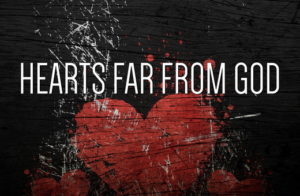 First Reading 1 Kings 8:22-23,27-30
First Reading 1 Kings 8:22-23,27-30
In the presence of the whole assembly of Israel, Solomon stood before the altar of the Lord and, stretching out his hands towards heaven, said, ‘O Lord, God of Israel, not in heaven above nor on earth beneath is there such a God as you, true to your covenant and your kindness towards your servants when they walk wholeheartedly in your way. Yet will God really live with men on the earth? Why, the heavens and their own heavens cannot contain you. How much less this house that I have built! Listen to the prayer and entreaty of your servant, O Lord my God; listen to the cry and to the prayer your servant makes to you today. Day and night let your eyes watch over this house, over this place of which you have said, “My name shall be there.” Listen to the prayer that your servant will offer in this place.
‘Hear the entreaty of your servant and of Israel your people as they pray in this place. From heaven where your dwelling is, hear; and, as you hear, forgive.’
Gospel Mark 7:1-13
The Pharisees and some of the scribes who had come from Jerusalem gathered round Jesus, and they noticed that some of his disciples were eating with unclean hands, that is, without washing them. For the Pharisees, and the Jews in general, follow the tradition of the elders and never eat without washing their arms as far as the elbow; and on returning from the market place they never eat without first sprinkling themselves. There are also many other observances which have been handed down to them concerning the washing of cups and pots and bronze dishes. So these Pharisees and scribes asked him, ‘Why do your disciples not respect the tradition of the elders but eat their food with unclean hands?’ He answered, ‘It was of you hypocrites that Isaiah so rightly prophesied in this passage of scripture:
This people honours me only with lip-service,
while their hearts are far from me.
The worship they offer me is worthless,
the doctrines they teach are only human regulations.
You put aside the commandment of God to cling to human traditions.’ And he said to them, ‘How ingeniously you get round the commandment of God in order to preserve your own tradition! For Moses said: Do your duty to your father and your mother, and, Anyone who curses father or mother must be put to death. But you say, “If a man says to his father or mother: Anything I have that I might have used to help you is Corban (that is, dedicated to God), then he is forbidden from that moment to do anything for his father or mother.” In this way you make God’s word null and void for the sake of your tradition which you have handed down. And you do many other things like this.’
10/2/20 Monday of week 5 in Ordinary Time
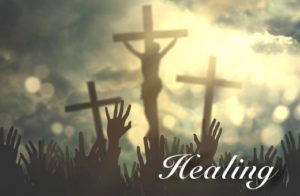 First Reading 1 Kings 8:1-7,9-13
First Reading 1 Kings 8:1-7,9-13
Solomon called the elders of Israel together in Jerusalem to bring the ark of the covenant of the Lord up from the Citadel of David, which is Zion. All the men of Israel assembled round King Solomon in the month of Ethanim, at the time of the feast (that is, the seventh month), and the priests took up the ark and the Tent of Meeting with all the sacred vessels that were in it. In the presence of the ark, King Solomon and all Israel sacrificed sheep and oxen, countless, innumerable. The priests brought the ark of the covenant of the Lord to its place, in the Debir of the Temple, that is, in the Holy of Holies, under the cherubs’ wings. For there where the ark was placed the cherubs spread out their wings and sheltered the ark and its shafts. There was nothing in the ark except the two stone tablets Moses had placed in it at Horeb, the tablets of the covenant which the Lord had made with the Israelites when they came out of the land of Egypt; they are still there today.
Now when the priests came out of the sanctuary, the cloud filled the Temple of the Lord, and because of the cloud the priests could no longer perform their duties: the glory of the Lord filled the Lord’s Temple.
Then Solomon said:
‘The Lord has chosen to dwell in the thick cloud.
Yes, I have built you a dwelling,
a place for you to live in for ever.’
Gospel Mark 6:53-56
Having made the crossing, Jesus and his disciples came to land at Gennesaret and tied up. No sooner had they stepped out of the boat than people recognised him, and started hurrying all through the countryside and brought the sick on stretchers to wherever they heard he was. And wherever he went, to village, or town, or farm, they laid down the sick in the open spaces, begging him to let them touch even the fringe of his cloak. And all those who touched him were cured.
9/2/20 5th Sunday in Ordinary Time
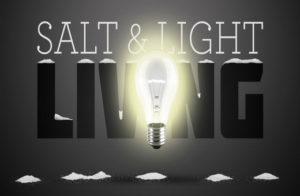 First Reading Isaiah 58:7-10
First Reading Isaiah 58:7-10
Thus says the Lord: Share your bread with the hungry, and shelter the homeless poor,
clothe the man you see to be naked and do not turn from your own kin. Then will your light shine like the dawn and your wound be quickly healed over. Your integrity will go before you and the glory of the Lord behind you. Cry, and the Lord will answer;
call, and he will say, ‘I am here.’ If you do away with the yoke, the clenched fist, the wicked word, if you give your bread to the hungry, and relief to the oppressed, your light will rise in the darkness, and your shadows become like noon.
Second Reading 1 Corinthians 2:1-5
When I came to you, brothers, it was not with any show of oratory or philosophy, but simply to tell you what God had guaranteed. During my stay with you, the only knowledge I claimed to have was about Jesus, and only about him as the crucified Christ. Far from relying on any power of my own, I came among you in great ‘fear and trembling’ and in my speeches and the sermons that I gave, there were none of the arguments that belong to philosophy; only a demonstration of the power of the Spirit. And I did this so that your faith should not depend on human philosophy but on the power of God.
Gospel Jesus said to his disciples: ‘You are the salt of the earth. But if salt becomes tasteless, what can make it salty again? It is good for nothing, and can only be thrown out to be trampled underfoot by men.
‘You are the light of the world. A city built on a hill-top cannot be hidden. No one lights a lamp to put it under a tub; they put it on the lamp-stand where it shines for everyone in the house. In the same way your light must shine in the sight of men, so that, seeing your good works, they may give the praise to your Father in heaven.’
8/2/20 Saturday of week 4 in Ordinary Time
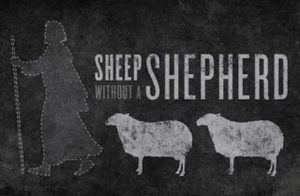 First Reading 1 Kings 3:4-13
First Reading 1 Kings 3:4-13
King Solomon went to Gibeon to sacrifice there, since that was the greatest of the high places – Solomon offered a thousand holocausts on that altar. At Gibeon the Lord appeared in a dream to Solomon during the night. God said, ‘Ask what you would like me to give you.’ Solomon replied, ‘You showed great kindness to your servant David, my father, when he lived his life before you in faithfulness and justice and integrity of heart; you have continued this great kindness to him by allowing a son of his to sit on his throne today. Now, O Lord my God, you have made your servant king in succession to David my father. But I am a very young man, unskilled in leadership. Your servant finds himself in the midst of this people of yours that you have chosen, a people so many its number cannot be counted or reckoned. Give your servant a heart to understand how to discern between good and evil, for who could govern this people of yours that is so great?’ It pleased the Lord that Solomon should have asked for this. ‘Since you have asked for this’ the Lord said ‘and not asked for long life for yourself or riches or the lives of your enemies, but have asked for a discerning judgement for yourself, here and now I do what you ask. I give you a heart wise and shrewd as none before you has had and none will have after you. What you have not asked I shall give you too: such riches and glory as no other king ever had.’
Gospel Mark 6:30-34
The apostles rejoined Jesus and told him all they had done and taught. Then he said to them, ‘You must come away to some lonely place all by yourselves and rest for a while’; for there were so many coming and going that the apostles had no time even to eat. So they went off in a boat to a lonely place where they could be by themselves. But people saw them going, and many could guess where; and from every town they all hurried to the place on foot and reached it before them. So as he stepped ashore he saw a large crowd; and he took pity on them because they were like sheep without a shepherd, and he set himself to teach them at some length.
7/2/20 Friday of week 4 in Ordinary Time
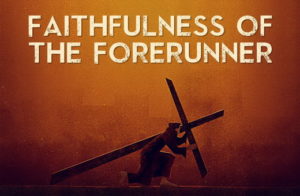 First Reading Ecclesiasticus 47:2-13
First Reading Ecclesiasticus 47:2-13
As the fat is set apart from the communion sacrifice, so David was chosen out of all the sons of Israel. He played with lions as though with kids, and with bears as though with lambs of the flock. While still a boy, did he not slay the giant, and relieve the people of their shame, by putting out a hand to sling a stone which brought down the arrogance of Goliath? For he called on the Lord Most High, who gave strength to his right arm to put a mighty warrior to death, and lift up the horn of his people.
Hence they gave him credit for ten thousand, and praised him while they blessed the Lord, by offering him a crown of glory; for he massacred enemies on every side,
he annihilated his foes the Philistines, and crushed their horn to this very day.
In all his activities he gave thanks to the Holy One, the Most High, in words of glory;
he put all his heart into his songs out of love for his Maker. He placed harps before the altar to make the singing sweeter with their music; he gave the feasts their splendour, the festivals their solemn pomp, causing the Lord’s holy name to be praised and the sanctuary to resound from dawn. The Lord took away his sins, and exalted his horn for ever; he gave him a royal covenant, and a glorious throne in Israel.
Gospel Mark 6:14-29
King Herod had heard about Jesus, since by now his name was well known. Some were saying, ‘John the Baptist has risen from the dead, and that is why miraculous powers are at work in him.’ Others said, ‘He is Elijah’; others again, ‘He is a prophet, like the prophets we used to have.’ But when Herod heard this he said, ‘It is John whose head I cut off; he has risen from the dead.’
Now it was this same Herod who had sent to have John arrested, and had him chained up in prison because of Herodias, his brother Philip’s wife whom he had married. For John had told Herod, ‘It is against the law for you to have your brother’s wife.’ As for Herodias, she was furious with him and wanted to kill him; but she was not able to, because Herod was afraid of John, knowing him to be a good and holy man, and gave him his protection. When he had heard him speak he was greatly perplexed, and yet he liked to listen to him.
An opportunity came on Herod’s birthday when he gave a banquet for the nobles of his court, for his army officers and for the leading figures in Galilee. When the daughter of this same Herodias came in and danced, she delighted Herod and his guests; so the king said to the girl, ‘Ask me anything you like and I will give it you.’ And he swore her an oath, ‘I will give you anything you ask, even half my kingdom.’ She went out and said to her mother, ‘What shall I ask for?’ She replied, ‘The head of John the Baptist.’ The girl hurried straight back to the king and made her request, ‘I want you to give me John the Baptist’s head, here and now, on a dish.’ The king was deeply distressed but, thinking of the oaths he had sworn and of his guests, he was reluctant to break his word to her. So the king at once sent one of the bodyguard with orders to bring John’s head. The man went off and beheaded him in prison; then he brought the head on a dish and gave it to the girl, and the girl gave it to her mother. When John’s disciples heard about this, they came and took his body and laid it in a tomb.
6/2/20 Thursday of week 4 in Ordinary Time
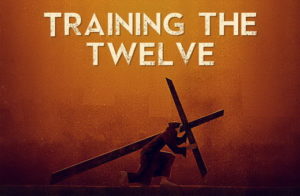 First Reading 1 Kings 2:1-4,10-12
First Reading 1 Kings 2:1-4,10-12
As David’s life drew to its close he laid this charge on his son Solomon, ‘I am going the way of all the earth. Be strong and show yourself a man. Observe the injunctions of the Lord your God, following his ways and keeping his laws, his commandments, his customs and his decrees, as it stands written in the Law of Moses, that so you may be successful in all you do and undertake, so that the Lord may fulfil the promise he made me, “If your sons are careful how they behave, and walk loyally before me with all their heart and soul, you shall never lack for a man on the throne of Israel.”’
So David slept with his ancestors and was buried in the Citadel of David. David’s reign over Israel lasted forty years: he reigned in Hebron for seven years, and in Jerusalem for thirty-three.
Solomon was seated upon the throne of David, and his sovereignty was securely established.
Gospel Mark 6:7-13
Jesus made a tour round the villages, teaching. Then he summoned the Twelve and began to send them out in pairs giving them authority over the unclean spirits. And he instructed them to take nothing for the journey except a staff – no bread, no haversack, no coppers for their purses. They were to wear sandals but, he added, ‘Do not take a spare tunic.’ And he said to them, ‘If you enter a house anywhere, stay there until you leave the district. And if any place does not welcome you and people refuse to listen to you, as you walk away shake off the dust from under your feet as a sign to them.‘ So they set off to preach repentance; and they cast out many devils, and anointed many sick people with oil and cured them.
5/2/20 Wednesday of the Fourth week in Ordinary Time
 First Reading 2nd book of Samuel 24,2.9-17
First Reading 2nd book of Samuel 24,2.9-17
King David said to Joab and the leaders of the army who were with him, “Tour all the tribes in Israel from Dan to Beer-sheba and register the people, that I may know their number.”
Joab then reported to the king the number of people registered: in Israel, eight hundred thousand men fit for military service; in Judah, five hundred thousand.
Afterward, however, David regretted having numbered the people, and said to the LORD: “I have sinned grievously in what I have done. But now, LORD, forgive the guilt of your servant, for I have been very foolish.”
When David rose in the morning, the LORD had spoken to the prophet Gad, David’s seer, saying:
“Go and say to David, ‘This is what the LORD says: I offer you three alternatives; choose one of them, and I will inflict it on you.'”
Gad then went to David to inform him. He asked: “Do you want a three years’ famine to come upon your land, or to flee from your enemy three months while he pursues you, or to have a three days’ pestilence in your land? Now consider and decide what I must reply to him who sent me.”
David answered Gad: “I am in very serious difficulty. Let us fall by the hand of God, for he is most merciful; but let me not fall by the hand of man.”
Thus David chose the pestilence. Now it was the time of the wheat harvest when the plague broke out among the people. (The LORD then sent a pestilence over Israel from morning until the time appointed, and seventy thousand of the people from Dan to Beer-sheba died.)
But when the angel stretched forth his hand toward Jerusalem to destroy it, the LORD regretted the calamity and said to the angel causing the destruction among the people, “Enough now! Stay your hand.” The angel of the LORD was then standing at the threshing floor of Araunah the Jebusite.
When David saw the angel who was striking the people, he said to the LORD: “It is I who have sinned; it is I, the shepherd, who have done wrong. But these are sheep; what have they done? Punish me and my kindred.”
Gospel Mark 6,1-6
Jesus departed from there and came to his native place, accompanied by his disciples.
When the sabbath came he began to teach in the synagogue, and many who heard him were astonished. They said, “Where did this man get all this? What kind of wisdom has been given him? What mighty deeds are wrought by his hands!
Is he not the carpenter, the son of Mary, and the brother of James and Joses and Judas and Simon? And are not his sisters here with us?” And they took offense at him.
Jesus said to them, “A prophet is not without honor except in his native place and among his own kin and in his own house.”
So he was not able to perform any mighty deed there, apart from curing a few sick people by laying his hands on them.
He was amazed at their lack of faith.
4/2/20 Tuesday of the Fourth week in Ordinary Time
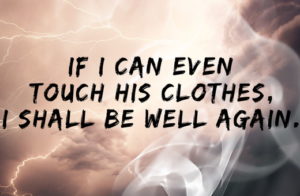 First Reading 2nd book of Samuel 18,9-10.14b.24-25a.30-32.19,1-3
First Reading 2nd book of Samuel 18,9-10.14b.24-25a.30-32.19,1-3
Absalom unexpectedly came up against David’s servants. He was mounted on a mule, and, as the mule passed under the branches of a large terebinth, his hair caught fast in the tree. He hung between heaven and earth while the mule he had been riding ran off.
Someone saw this and reported to Joab that he had seen Absalom hanging from a terebinth.
Joab replied, “I will not waste time with you in this way.” And taking three pikes in hand, he thrust for the heart of Absalom, still hanging from the tree alive.
Now David was sitting between the two gates, and a lookout mounted to the roof of the gate above the city wall, where he looked about and saw a man running all alone.
The lookout shouted to inform the king, who said, “If he is alone, he has good news to report.” As he kept coming nearer,
The king said, “Step aside and remain in attendance here.” So he stepped aside and remained there.
When the Cushite came in, he said, “Let my lord the king receive the good news that this day the LORD has taken your part, freeing you from the grasp of all who rebelled against you.”
But the king asked the Cushite, “Is young Absalom safe?” The Cushite replied, “May the enemies of my lord the king and all who rebel against you with evil intent be as that young man!”
The king was shaken, and went up to the room over the city gate to weep. He said as he wept, “My son Absalom! My son, my son Absalom! If only I had died instead of you, Absalom, my son, my son!”
Joab was told that the king was weeping and mourning for Absalom;
and that day’s victory was turned into mourning for the whole army when they heard that the king was grieving for his son.
Gospel Mark 5,21-43
When Jesus had crossed again in the boat to the other side, a large crowd gathered around him, and he stayed close to the sea.
One of the synagogue officials, named Jairus, came forward. Seeing him he fell at his feet
and pleaded earnestly with him, saying, “My daughter is at the point of death. Please, come lay your hands on her that she may get well and live.”
He went off with him, and a large crowd followed him and pressed upon him.
There was a woman afflicted with hemorrhages for twelve years.
She had suffered greatly at the hands of many doctors and had spent all that she had. Yet she was not helped but only grew worse.
She had heard about Jesus and came up behind him in the crowd and touched his cloak.
She said, “If I but touch his clothes, I shall be cured.”
Immediately her flow of blood dried up. She felt in her body that she was healed of her affliction.
Jesus, aware at once that power had gone out from him, turned around in the crowd and asked, “Who has touched my clothes?”
But his disciples said to him, “You see how the crowd is pressing upon you, and yet you ask, ‘Who touched me?'”
And he looked around to see who had done it.
The woman, realizing what had happened to her, approached in fear and trembling. She fell down before Jesus and told him the whole truth.
He said to her, “Daughter, your faith has saved you. Go in peace and be cured of your affliction.”
While he was still speaking, people from the synagogue official’s house arrived and said, “Your daughter has died; why trouble the teacher any longer?”
Disregarding the message that was reported, Jesus said to the synagogue official, “Do not be afraid; just have faith.”
He did not allow anyone to accompany him inside except Peter, James, and John, the brother of James.
When they arrived at the house of the synagogue official, he caught sight of a commotion, people weeping and wailing loudly.
So he went in and said to them, “Why this commotion and weeping? The child is not dead but asleep.”
And they ridiculed him. Then he put them all out. He took along the child’s father and mother and those who were with him and entered the room where the child was.
He took the child by the hand and said to her, “Talitha koum,” which means, “Little girl, I say to you, arise!”
The girl, a child of twelve, arose immediately and walked around. (At that) they were utterly astounded.
He gave strict orders that no one should know this and said that she should be given something to eat.
3/2/20 Monday of week 4 in Ordinary Time
 First Reading 2 Samuel 15:13-14,30,16:5-13
First Reading 2 Samuel 15:13-14,30,16:5-13
A messenger came to tell David, ‘The hearts of the men of Israel are now with Absalom.’ So David said to all his officers who were with him in Jerusalem, ‘Let us be off, let us fly, or we shall never escape from Absalom. Leave as quickly as you can in case he mounts a surprise attack and worsts us and puts the city to the sword.’
David then made his way up the Mount of Olives, weeping as he went, his head covered and his feet bare. And all the people with him had their heads covered and made their way up, weeping as they went.
As David was reaching Bahurim, out came a man of the same clan as Saul’s family. His name was Shimei son of Gera, and as he came he uttered curse after curse and threw stones at David and at all King David’s officers, though the whole army and all the champions flanked the king right and left. The words of his curse were these, ‘Be off, be off, man of blood, scoundrel! the Lord has brought on you all the blood of the House of Saul whose sovereignty you have usurped; and the Lord has transferred that same sovereignty to Absalom your son. Now your doom has overtaken you, man of blood that you are.’ Abishai son of Zeruiah said to the king, ‘Is this dead dog to curse my lord the king? Let me go over and cut his head off.’ But the king replied, ‘What business is it of mine and yours, sons of Zeruiah? Let him curse. If the Lord said to him, “Curse David,” what right has anyone to say, “Why have you done this?”’ David said to Abishai and all his officers, ‘Why, my own son, sprung from my body, is now seeking my life; so now how much the more this Benjaminite? Let him curse on if the Lord has told him to. Perhaps the Lord will look on my misery and repay me with good for his curse today.’ So David and his men went on their way.
Gospel Mark 5:1-20
Jesus and his disciples reached the country of the Gerasenes on the other side of the lake, and no sooner had Jesus left the boat than a man with an unclean spirit came out from the tombs towards him. The man lived in the tombs and no one could secure him any more, even with a chain; because he had often been secured with fetters and chains but had snapped the chains and broken the fetters, and no one had the strength to control him. All night and all day, among the tombs and in the mountains, he would howl and gash himself with stones. Catching sight of Jesus from a distance, he ran up and fell at his feet and shouted at the top of his voice, ‘What do you want with me, Jesus, son of the Most High God? Swear by God you will not torture me!’ – for Jesus had been saying to him, ‘Come out of the man, unclean spirit.’ ‘What is your name?’ Jesus asked. ‘My name is legion,’ he answered ‘for there are many of us.’ And he begged him earnestly not to send them out of the district.
Now there was there on the mountainside a great herd of pigs feeding, and the unclean spirits begged him, ‘Send us to the pigs, let us go into them.’ So he gave them leave. With that, the unclean spirits came out and went into the pigs, and the herd of about two thousand pigs charged down the cliff into the lake, and there they were drowned. The swineherds ran off and told their story in the town and in the country round about; and the people came to see what had really happened. They came to Jesus and saw the demoniac sitting there, clothed and in his full senses – the very man who had had the legion in him before – and they were afraid. And those who had witnessed it reported what had happened to the demoniac and what had become of the pigs. Then they began to implore Jesus to leave the neighbourhood. As he was getting into the boat, the man who had been possessed begged to be allowed to stay with him. Jesus would not let him but said to him, ‘Go home to your people and tell them all that the Lord in his mercy has done for you.’ So the man went off and proceeded to spread throughout the Decapolis all that Jesus had done for him. And everyone was amazed.
2/2/20 The Presentation of the Lord
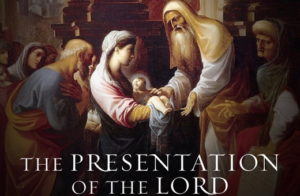 First Reading Malachi 3:1-4
First Reading Malachi 3:1-4
The Lord God says this: Look, I am going to send my messenger to prepare a way before me. And the Lord you are seeking will suddenly enter his Temple; and the angel of the covenant whom you are longing for, yes, he is coming, says the Lord of Hosts. Who will be able to resist the day of his coming? Who will remain standing when he appears? For he is like the refiner’s fire and the fullers’ alkali. He will take his seat as refiner and purifier; he will purify the sons of Levi and refine them like gold and silver, and then they will make the offering to the Lord as it should be made. The offering of Judah and Jerusalem will then be welcomed by the Lord as in former days, as in the years of old.
Second Reading Hebrews 2:14-18
Since all the children share the same blood and flesh, Christ too shared equally in it, so that by his death he could take away all the power of the devil, who had power over death, and set free all those who had been held in slavery all their lives by the fear of death. For it was not the angels that he took to himself; he took to himself descent from Abraham. It was essential that he should in this way become completely like his brothers so that he could be a compassionate and trustworthy high priest of God’s religion, able to atone for human sins. That is, because he has himself been through temptation he is able to help others who are tempted.
Gospel Luke 2:22-40
When the day came for them to be purified as laid down by the Law of Moses, the parents of Jesus took him up to Jerusalem to present him to the Lord, – observing what stands written in the Law of the Lord: Every first-born male must be consecrated to the Lord – and also to offer in sacrifice, in accordance with what is said in the Law of the Lord, a pair of turtledoves or two young pigeons.
Now in Jerusalem there was a man named Simeon. He was an upright and devout man; he looked forward to Israel’s comforting and the Holy Spirit rested on him. It had been revealed to him by the Holy Spirit that he would not see death until he had set eyes on the Christ of the Lord. Prompted by the Spirit he came to the Temple and when the parents brought in the child Jesus to do for him what the Law required, he took him into his arms and blessed God; and he said:
‘Now, Master, you can let your servant go in peace,
just as you promised;
because my eyes have seen the salvation
which you have prepared for all the nations to see,
a light to enlighten the pagans
and the glory of your people Israel.’
As the child’s father and mother stood there wondering at the things that were being said about him, Simeon blessed them and said to Mary his mother, ‘You see this child: he is destined for the fall and for the rising of many in Israel, destined to be a sign that is rejected – and a sword will pierce your own soul too – so that the secret thoughts of many may be laid bare.’
There was a prophetess also, Anna the daughter of Phanuel, of the tribe of Asher. She was well on in years. Her days of girlhood over, she had been married for seven years before becoming a widow. She was now eighty-four years old and never left the Temple, serving God night and day with fasting and prayer. She came by just at that moment and began to praise God; and she spoke of the child to all who looked forward to the deliverance of Jerusalem.
When they had done everything the Law of the Lord required, they went back to Galilee, to their own town of Nazareth. Meanwhile the child grew to maturity, and he was filled with wisdom; and God’s favour was with him.
1/2/19 Saturday of week 3 in Ordinary Time
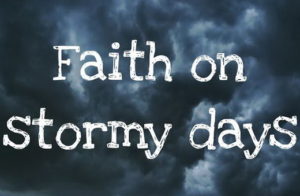 First Reading 2 Samuel 12:1-7,10-17
First Reading 2 Samuel 12:1-7,10-17
The Lord sent Nathan the prophet to David. He came to him and said: ‘In the same town were two men, one rich, the other poor. The rich man had flocks and herds
in great abundance; the poor man had nothing but a ewe lamb, one only, a small one he had bought. This he fed, and it grew up with him and his children, eating his bread, drinking from his cup, sleeping on his breast; it was like a daughter to him.
When there came a traveller to stay, the rich man refused to take one of his own flock or herd to provide for the wayfarer who had come to him. Instead he took the poor man’s lamb and prepared it for his guest.’ David’s anger flared up against the man. ‘As the Lord lives,’ he said to Nathan ‘the man who did this deserves to die! He must make fourfold restitution for the lamb, for doing such a thing and showing no compassion.’
Then Nathan said to David, ‘You are the man. So now the sword will never be far from your House, since you have shown contempt for me and taken the wife of Uriah the Hittite to be your wife.” ‘Thus the Lord speaks, “I will stir up evil for you out of your own House. Before your very eyes I will take your wives and give them to your neighbour, and he shall lie with your wives in the sight of this sun. You worked in secret, I will work this in the face of all Israel and in the face of the sun.”’
David said to Nathan, ‘I have sinned against the Lord.’ Then Nathan said to David, ‘The Lord, for his part, forgives your sin; you are not to die. Yet because you have outraged the Lord by doing this, the child that is born to you is to die.’ Then Nathan went home.
The Lord struck the child that Uriah’s wife had borne to David and it fell gravely ill. David pleaded with the Lord for the child; he kept a strict fast and went home and spent the night on the bare ground, covered with sacking. The officials of his household came and stood round him to get him to rise from the ground, but he refused, nor would he take food with them.
Gospel Mark 4:35-41
With the coming of evening, Jesus said to his disciples, ‘Let us cross over to the other side.’ And leaving the crowd behind they took him, just as he was, in the boat; and there were other boats with him. Then it began to blow a gale and the waves were breaking into the boat so that it was almost swamped. But he was in the stern, his head on the cushion, asleep. They woke him and said to him, ‘Master, do you not care? We are going down!’ And he woke up and rebuked the wind and said to the sea, ‘Quiet now! Be calm!’ And the wind dropped, and all was calm again. Then he said to them, ‘Why are you so frightened? How is it that you have no faith?’ They were filled with awe and said to one another, ‘Who can this be? Even the wind and the sea obey him.’
31/1/20 Friday of week 3 in Ordinary Time
 First Reading 2 Samuel 11:1-4,5-10,13-17
First Reading 2 Samuel 11:1-4,5-10,13-17
At the turn of the year, the time when kings go campaigning, David sent Joab and with him his own guards and the whole of Israel. They massacred the Ammonites and laid siege to Rabbah. David, however, remained in Jerusalem.
It happened towards evening when David had risen from his couch and was strolling on the palace roof, that he saw from the roof a woman bathing; the woman was very beautiful. David made inquiries about this woman and was told, ‘Why, that is Bathsheba, Eliam’s daughter, the wife of Uriah the Hittite.’ Then David sent messengers and had her brought. She came to him, and he slept with her. She then went home again. The woman conceived and sent word to David; ‘I am with child.’
Then David sent Joab a message, ‘Send me Uriah the Hittite’, whereupon Joab sent Uriah to David. When Uriah came into his presence, David asked after Joab and the army and how the war was going. David then said to Uriah, ‘Go down to your house and enjoy yourself.’ Uriah left the palace, and was followed by a present from the king’s table. Uriah however slept by the palace door with his master’s bodyguard and did not go down to his house.
This was reported to David; ‘Uriah’ they said ‘did not go down to his house.’ The next day David invited him to eat and drink in his presence and made him drunk. In the evening Uriah went out and lay on his couch with his master’s bodyguard, but he did not go down to his house.
Next morning David wrote a letter to Joab and sent it by Uriah. In the letter he wrote, ‘Station Uriah in the thick of the fight and then fall back behind him so that he may be struck down and die.’ Joab, then besieging the town, posted Uriah in a place where he knew there were fierce fighters. The men of the town sallied out and engaged Joab; the army suffered casualties, including some of David’s bodyguard; and Uriah the Hittite was killed too.
Gospel Mark 4:26-34
Jesus said to the crowds: ‘This is what the kingdom of God is like. A man throws seed on the land. Night and day, while he sleeps, when he is awake, the seed is sprouting and growing; how, he does not know. Of its own accord the land produces first the shoot, then the ear, then the full grain in the ear. And when the crop is ready, he loses no time: he starts to reap because the harvest has come.’
He also said, ‘What can we say the kingdom of God is like? What parable can we find for it? It is like a mustard seed which at the time of its sowing in the soil is the smallest of all the seeds on earth; yet once it is sown it grows into the biggest shrub of them all and puts out big branches so that the birds of the air can shelter in its shade.’
Using many parables like these, he spoke the word to them, so far as they were capable of understanding it. He would not speak to them except in parables, but he explained everything to his disciples when they were alone.
30/1/20 Thursday of week 3 in Ordinary Time
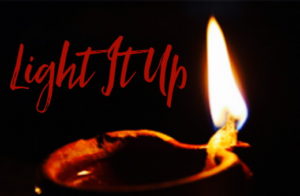 First Reading 2 Samuel 7:18-19,24-29
First Reading 2 Samuel 7:18-19,24-29
After Nathan had spoken to him, King David went in and, seated before the Lord, said: ‘Who am I, O Lord, and what is my House, that you have led me as far as this? Yet in your sight, O Lord, this is still not far enough, and you make your promises extend to the House of your servant for a far-distant future. You have constituted your people Israel to be your own people for ever; and you, Lord, have become their God.
‘Now, O Lord, always keep the promise you have made your servant and his House, and do as you have said. Your name will be exalted for ever and men will say, “The Lord of Hosts is God over Israel.” The House of your servant David will be made secure in your presence, since you yourself, Lord of Hosts, God of Israel, have made this revelation to your servant, “I will build you a House”; hence your servant has ventured to offer this prayer to you. Yes, Lord, you are God indeed, your words are true and you have made this fair promise to your servant. Be pleased, then, to bless the House of your servant, that it may continue for ever in your presence; for you, Lord, have spoken; and with your blessing the House of your servant will be for ever blessed.’
Gospel Mark 4:21-25
Jesus said to the crowd, ‘Would you bring in a lamp to put it under a tub or under the bed? Surely you will put it on the lamp-stand? For there is nothing hidden but it must be disclosed, nothing kept secret except to be brought to light. If anyone has ears to hear, let him listen to this.’
He also said to them, ‘Take notice of what you are hearing. The amount you measure out is the amount you will be given – and more besides; for the man who has will be given more; from the man who has not, even what he has will be taken away.’
29/1/20 Wednesday of week 3 in Ordinary Time
 First Reading 2 Samuel 7:4-17
First Reading 2 Samuel 7:4-17
The word of the Lord came to Nathan:
‘Go and tell my servant David, “Thus the Lord speaks: Are you the man to build me a house to dwell in? I have never stayed in a house from the day I brought the Israelites out of Egypt until today, but have always led a wanderer’s life in a tent. In all my journeying with the whole people of Israel, did I say to any one of the judges of Israel, whom I had appointed as shepherds of Israel my people: Why have you not built me a house of cedar?” This is what you must say to my servant David, “The Lord of Hosts says this: I took you from the pasture, from following the sheep, to be leader of my people Israel; I have been with you on all your expeditions; I have cut off all your enemies before you. I will give you fame as great as the fame of the greatest on earth. I will provide a place for my people Israel; I will plant them there and they shall dwell in that place and never be disturbed again; nor shall the wicked continue to oppress them as they did, in the days when I appointed judges over my people Israel; I will give them rest from all their enemies. The Lord will make you great; the Lord will make you a House. And when your days are ended and you are laid to rest with your ancestors, I will preserve the offspring of your body after you and make his sovereignty secure. (It is he who shall build a house for my name, and I will make his royal throne secure for ever.) I will be a father to him and he a son to me; if he does evil, I will punish him with the rod such as men use, with strokes such as mankind gives. Yet I will not withdraw my favour from him, as I withdrew it from your predecessor. Your House and your sovereignty will always stand secure before me and your throne be established for ever.”’
Nathan related all these words to David and this whole revelation.
Gospel Mark 4:1-20
Jesus began to teach by the lakeside, but such a huge crowd gathered round him that he got into a boat on the lake and sat there. The people were all along the shore, at the water’s edge. He taught them many things in parables, and in the course of his teaching he said to them, ‘Listen! Imagine a sower going out to sow. Now it happened that, as he sowed, some of the seed fell on the edge of the path, and the birds came and ate it up. Some seed fell on rocky ground where it found little soil and sprang up straightaway, because there was no depth of earth; and when the sun came up it was scorched and, not having any roots, it withered away. Some seed fell into thorns, and the thorns grew up and choked it, and it produced no crop. And some seeds fell into rich soil and, growing tall and strong, produced crop; and yielded thirty, sixty, even a hundredfold.’ And he said, ‘Listen, anyone who has ears to hear!’
When he was alone, the Twelve, together with the others who formed his company, asked what the parables meant. He told them, ‘The secret of the kingdom of God is given to you, but to those who are outside everything comes in parables, so that they may see and see again, but not perceive; may hear and hear again, but not understand; otherwise they might be converted and be forgiven.’
He said to them, ‘Do you not understand this parable? Then how will you understand any of the parables? What the sower is sowing is the word. Those on the edge of the path where the word is sown are people who have no sooner heard it than Satan comes and carries away the word that was sown in them. Similarly, those who receive the seed on patches of rock are people who, when first they hear the word, welcome it at once with joy. But they have no root in them, they do not last; should some trial come, or some persecution on account of the word, they fall away at once. Then there are others who receive the seed in thorns. These have heard the word, but the worries of this world, the lure of riches and all the other passions come in to choke the word, and so it produces nothing. And there are those who have received the seed in rich soil: they hear the word and accept it and yield a harvest, thirty and sixty and a hundredfold.’
28/1/20 Tuesday of week 3 in Ordinary Time
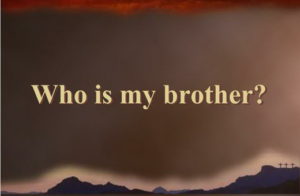 First Reading 2 Samuel 6:12-15,17-19
First Reading 2 Samuel 6:12-15,17-19
David went and brought the ark of God up from Obed-edom’s house to the Citadel of David with great rejoicing. When the bearers of the ark of the Lord had gone six paces, he sacrificed an ox and a fat sheep. And David danced whirling round before the Lord with all his might, wearing a linen loincloth round him. Thus David and all the House of Israel brought up the ark of the Lord with acclaim and the sound of the horn. They brought the ark of the Lord in and put it in position inside the tent that David had pitched for it; and David offered holocausts before the Lord, and communion sacrifices. And when David had finished offering holocausts and communion sacrifices, he blessed the people in the name of the Lord of Hosts. He then distributed among all the people, among the whole multitude of Israelites, men and women, a roll of bread to each, a portion of dates, and a raisin cake. Then they all went away, each to his own house.
Gospel Mark 3:31-35
The mother and brothers of Jesus arrived and, standing outside, sent in a message asking for him. A crowd was sitting round him at the time the message was passed to him, ‘Your mother and brothers and sisters are outside asking for you.’ He replied, ‘Who are my mother and my brothers?’ And looking round at those sitting in a circle about him, he said, ‘Here are my mother and my brothers. Anyone who does the will of God, that person is my brother and sister and mother.’
27/1/20 Monday of week 3 in Ordinary Time
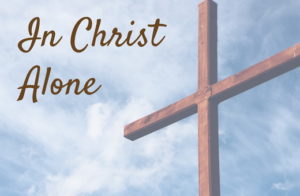 First Reading 2 Samuel 5:1-7,10
First Reading 2 Samuel 5:1-7,10
All the tribes of Israel then came to David at Hebron. ‘Look’ they said ‘we are your own flesh and blood. In days past when Saul was our king, it was you who led Israel in all their exploits; and the Lord said to you, “You are the man who shall be shepherd of my people Israel, you shall be the leader of Israel.”’ So all the elders of Israel came to the king at Hebron, and King David made a pact with them at Hebron in the presence of the Lord, and they anointed David king of Israel.
David was thirty years old when he became king, and he reigned for forty years. He reigned in Hebron over Judah for seven years and six months; then he reigned in Jerusalem over all Israel and Judah for thirty-three years.
David and his men marched on Jerusalem against the Jebusites living there. These said to David, ‘You will not get in here. The blind and the lame will hold you off.’ (That is to say: David will never get in here.) But David captured the fortress of Zion, that is, the Citadel of David.
David grew greater and greater, and the Lord, the God of Hosts, was with him.
Gospel Mark 3:22-30
The scribes who had come down from Jerusalem were saying, ‘Beelzebul is in him’ and, ‘It is through the prince of devils that he casts devils out.’ So he called them to him and spoke to them in parables, ‘How can Satan cast out Satan? If a kingdom is divided against itself, that kingdom cannot last. And if a household is divided against itself, that household can never stand. Now if Satan has rebelled against himself and is divided, he cannot stand either – it is the end of him. But no one can make his way into a strong man’s house and burgle his property unless he has tied up the strong man first. Only then can he burgle his house.
‘I tell you solemnly, all men’s sins will be forgiven, and all their blasphemies; but let anyone blaspheme against the Holy Spirit and he will never have forgiveness: he is guilty of an eternal sin.’ This was because they were saying, ‘An unclean spirit is in him.’
26/1/20 3rd Sunday in Ordinary Time
 First Reading Isaiah 8:23-9:3
First Reading Isaiah 8:23-9:3
In days past the Lord humbled the land of Zebulun and the land of Naphtali, but in days to come he will confer glory on the Way of the Sea on the far side of Jordan, province of the nations. The people that walked in darkness has seen a great light;
on those who live in a land of deep shadow a light has shone. You have made their gladness greater, you have made their joy increase; they rejoice in your presence
as men rejoice at harvest time, as men are happy when they are dividing the spoils.
For the yoke that was weighing on him, the bar across his shoulders, the rod of his oppressor – these you break as on the day of Midian.
Second Reading 1 Corinthians 1:10-13,17
I appeal to you, brothers, for the sake of our Lord Jesus Christ, to make up the differences between you, and instead of disagreeing among yourselves, to be united again in your belief and practice. From what Chloe’s people have been telling me, my dear brothers, it is clear that there are serious differences among you. What I mean are all these slogans that you have, like: ‘I am for Paul’, ‘I am for Apollos’, ‘I am for Cephas’, ‘I am for Christ.’ Has Christ been parcelled out? Was it Paul that was crucified for you? Were you baptised in the name of Paul?
For Christ did not send me to baptise, but to preach the Good News, and not to preach that in the terms of philosophy in which the crucifixion of Christ cannot be expressed.
Gospel Matthew 4:12-23
Hearing that John had been arrested, Jesus went back to Galilee, and leaving Nazareth he went and settled in Capernaum, a lakeside town on the borders of Zebulun and Naphtali. In this way the prophecy of Isaiah was to be fulfilled:
‘Land of Zebulun! Land of Naphtali! Way of the sea on the far side of Jordan,
Galilee of the nations! The people that lived in darkness has seen a great light;
on those who dwell in the land and shadow of death a light has dawned.’
From that moment Jesus began his preaching with the message, ‘Repent, for the kingdom of heaven is close at hand.’
As he was walking by the Sea of Galilee he saw two brothers, Simon, who was called Peter, and his brother Andrew; they were making a cast in the lake with their net, for they were fishermen. And he said to them, ‘Follow me and I will make you fishers of men.’ And they left their nets at once and followed him. Going on from there he saw another pair of brothers, James son of Zebedee and his brother John; they were in their boat with their father Zebedee, mending their nets, and he called them. At once, leaving the boat and their father, they followed him.
He went round the whole of Galilee teaching in their synagogues, proclaiming the Good News of the kingdom and curing all kinds of diseases and sickness among the people.
25/1/20 The Conversion of Saint Paul, Apostle
 First Reading Acts 22:3-16
First Reading Acts 22:3-16
Paul said to the people, ‘I am a Jew and was born at Tarsus in Cilicia. I was brought up here in this city. I studied under Gamaliel and was taught the exact observance of the Law of our ancestors. In fact, I was as full of duty towards God as you are today. I even persecuted this Way to the death, and sent women as well as men to prison in chains as the high priest and the whole council of elders can testify, since they even sent me with letters to their brothers in Damascus. When I set off it was with the intention of bringing prisoners back from there to Jerusalem for punishment.
‘I was on that journey and nearly at Damascus when about midday a bright light from heaven suddenly shone round me. I fell to the ground and heard a voice saying, “Saul, Saul, why are you persecuting me?” I answered: Who are you, Lord? and he said to me, “I am Jesus the Nazarene, and you are persecuting me.” The people with me saw the light but did not hear his voice as he spoke to me. I said: What am I to do, Lord? The Lord answered, “Stand up and go into Damascus, and there you will be told what you have been appointed to do.” The light had been so dazzling that I was blind and my companions had to take me by the hand; and so I came to Damascus.
‘Someone called Ananias, a devout follower of the Law and highly thought of by all the Jews living there, came to see me; he stood beside me and said, “Brother Saul, receive your sight.” Instantly my sight came back and I was able to see him. Then he said, “The God of our ancestors has chosen you to know his will, to see the Just One and hear his own voice speaking, because you are to be his witness before all mankind, testifying to what you have seen and heard. And now why delay? It is time you were baptised and had your sins washed away while invoking his name.”’
Gospel Mark 16:15-18
Jesus showed himself to the Eleven and said to them:
‘Go out to the whole world; proclaim the Good News to all creation. He who believes and is baptised will be saved; he who does not believe will be condemned. These are the signs that will be associated with believers: in my name they will cast out devils; they will have the gift of tongues; they will pick up snakes in their hands, and be unharmed should they drink deadly poison; they will lay their hands on the sick, who will recover.’
24/1/20 Friday of week 2 in Ordinary Time
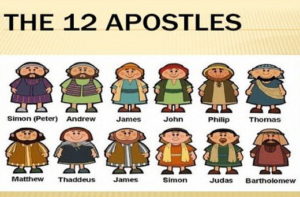 First Reading 1 Samuel 24:3-21
First Reading 1 Samuel 24:3-21
Saul took three thousand men chosen from the whole of Israel and went in search of David and his men east of the Rocks of the Wild Goats. He came to the sheepfolds along the route where there was a cave, and went in to cover his feet. Now David and his men were sitting in the recesses of the cave; David’s men said to him, ‘Today is the day of which the Lord said to you, “I will deliver your enemy into your power, do what you like with him.”’ David stood up and, unobserved, cut off the border of Saul’s cloak. Afterwards David reproached himself for having cut off the border of Saul’s cloak. He said to his men, ‘The Lord preserve me from doing such a thing to my lord and raising my hand against him, for he is the anointed of the Lord.’ David gave his men strict instructions, forbidding them to attack Saul.
Saul then left the cave and went on his way. After this, David too left the cave and called after Saul, ‘My lord king!’ Saul looked behind him and David bowed to the ground and did homage. Then David said to Saul, ‘Why do you listen to the men who say to you, “David means to harm you”? Why, your own eyes have seen today how the Lord put you in my power in the cave and how I refused to kill you, but spared you. “I will not raise my hand against my lord,” I said “for he is the anointed of the Lord.” O my father, see, look at the border of your cloak in my hand. Since I cut off the border of your cloak, yet did not kill you, you must acknowledge frankly that there is neither malice nor treason in my mind. I have not offended against you, yet you hunt me down to take my life. May the Lord be judge between me and you, and may the Lord avenge me on you; but my hand shall not be laid on you. (As the old proverb says: Wickedness goes out from the wicked, and my hand will not be laid on you.) On whose trail has the king of Israel set out? On whose trail are you in hot pursuit? On the trail of a dead dog! On the trail of a single flea! May the Lord be the judge and decide between me and you; may he take up my cause and defend it and give judgement for me, freeing me from your power.’
When David had finished saying these words to Saul, Saul said, ‘Is that your voice, my son David?’ And Saul wept aloud. ‘You are a more upright man than I,’ he said to David ‘for you have repaid me with good while I have repaid you with evil. Today you have crowned your goodness towards me since the Lord had put me in your power yet you did not kill me. When a man comes on his enemy, does he let him go unmolested? May the Lord reward you for the goodness you have shown me today. Now I know you will indeed reign and that the sovereignty in Israel will be secure in your hands.’
Gospel Mark 3:13-19
Jesus went up into the hills and summoned those he wanted. So they came to him and he appointed twelve; they were to be his companions and to be sent out to preach, with power to cast out devils. And so he appointed the Twelve: Simon to whom he gave the name Peter, James the son of Zebedee and John the brother of James, to whom he gave the name Boanerges or ‘Sons of Thunder’; then Andrew, Philip, Bartholomew, Matthew, Thomas, James the son of Alphaeus, Thaddaeus, Simon the Zealot and Judas Iscariot, the man who was to betray him.
23/1/20 Thursday of week 2 in Ordinary Time
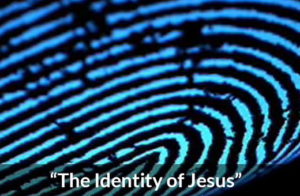 First Reading 1 Samuel 18:6-9,19:1-7
First Reading 1 Samuel 18:6-9,19:1-7
On their way back, as David was returning after killing the Philistine, the women came out to meet King Saul from all the towns of Israel, singing and dancing to the sound of tambourine and lyre and cries of joy; and as they danced the women sang:
‘Saul has killed his thousands,
and David his tens of thousands.’
Saul was very angry; the incident was not to his liking. ‘They have given David the tens of thousands,’ he said ‘but me only the thousands; he has all but the kingship now.’ And Saul turned a jealous eye on David from that day forward.
Saul told Jonathan his son and all his servants of his intention to kill David. Now Jonathan, Saul’s son, held David in great affection; and so Jonathan warned David; ‘My father Saul is looking for a way to kill you,’ he said ‘so be on your guard tomorrow morning; hide away in some secret place. Then I will go out and keep my father company in the fields where you are hiding, and will talk to my father about you; I will find out what the situation is and let you know.’
So Jonathan spoke well of David to Saul his father; he said, ‘Let not the king sin against his servant David, for he has not sinned against you, and what he has done has been greatly to your advantage. He took his life in his hands when he killed the Philistine, and the Lord brought about a great victory for all Israel. You saw it yourself and rejoiced; why then sin against innocent blood in killing David without cause?’ Saul was impressed by Jonathan’s words and took an oath, ‘As the Lord lives, I will not kill him.’ Jonathan called David and told him all these things. Then Jonathan brought him to Saul, and David attended on him as before.
Gospel Mark 3:7-12
Jesus withdrew with his disciples to the lakeside, and great crowds from Galilee followed him. From Judaea, Jerusalem, Idumaea, Transjordania and the region of Tyre and Sidon, great numbers who had heard of all he was doing came to him. And he asked his disciples to have a boat ready for him because of the crowd, to keep him from being crushed. For he had cured so many that all who were afflicted in any way were crowding forward to touch him. And the unclean spirits, whenever they saw him, would fall down before him and shout, ‘You are the Son of God!’ But he warned them strongly not to make him known.
22/1/20 Wednesday of week 2 in Ordinary Time
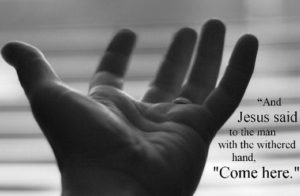 First Reading 1 Samuel 17:32-33,37,40-51
First Reading 1 Samuel 17:32-33,37,40-51
David said to Saul, ‘Let no-one lose heart on his account; your servant will go and fight the Philistine.’ But Saul answered David, ‘You cannot go and fight the Philistine; you are only a boy and he has been a warrior from his youth.’
‘The Lord who rescued me from the claws of lion and bear’ David said ‘will rescue me from the power of this Philistine.’ Then Saul said to David, ‘Go, and the Lord be with you!’
He took his staff in his hand, picked five smooth stones from the river bed, put them in his shepherd’s bag, in his pouch, and with his sling in his hand he went to meet the Philistine. The Philistine, his shield-bearer in front of him, came nearer and nearer to David; and the Philistine looked at David, and what he saw filled him with scorn, because David was only a youth, a boy of fresh complexion and pleasant bearing. The Philistine said to him, ‘Am I a dog for you to come against me with sticks?’ And the Philistine cursed David by his gods. The Philistine said to David, ‘Come over here and I will give your flesh to the birds of the air and the beasts of the field.’ But David answered the Philistine, ‘You come against me with sword and spear and javelin, but I come against you in the name of the Lord of Hosts, the God of the armies of Israel that you have dared to insult. Today the Lord will deliver you into my hand and I shall kill you; I will cut off your head, and this very day I will give your dead body and the bodies of the Philistine army to the birds of the air and the wild beasts of the earth, so that all the earth may know that there is a God in Israel, and that all this assembly may know that it is not by sword or by spear that the Lord gives the victory, for the Lord is lord of the battle and he will deliver you into our power.’
No sooner had the Philistine started forward to confront David than David left the line of battle and ran to meet the Philistine. Putting his hand in his bag, he took out a stone and slung it and struck the Philistine on the forehead; the stone penetrated his forehead and he fell on his face to the ground. Thus David triumphed over the Philistine with a sling and a stone and struck the Philistine down and killed him. David had no sword in his hand. Then David ran and, standing over the Philistine, seized his sword and drew it from the scabbard, and with this he killed him, cutting off his head. The Philistines saw that their champion was dead, and took to flight.
Gospel Mark 3:1-6
Jesus went into a synagogue, and there was a man there who had a withered hand. And they were watching him to see if he would cure him on the sabbath day, hoping for something to use against him. He said to the man with the withered hand, ‘Stand up out in the middle!’ Then he said to them, ‘Is it against the law on the sabbath day to do good, or to do evil; to save life, or to kill?’ But they said nothing. Then, grieved to find them so obstinate, he looked angrily round at them, and said to the man, ‘Stretch out your hand.’ He stretched it out and his hand was better. The Pharisees went out and at once began to plot with the Herodians against him, discussing how to destroy him.
21/1/20 Tuesday of week 2 in Ordinary Time
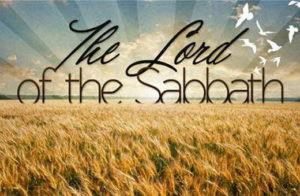 First Reading 1 Samuel 16:1-13
First Reading 1 Samuel 16:1-13
The Lord said to Samuel, ‘How long will you go on mourning over Saul when I have rejected him as king of Israel? Fill your horn with oil and go. I am sending you to Jesse of Bethlehem, for I have chosen myself a king among his sons.’ Samuel replied, ‘How can I go? When Saul hears of it he will kill me.’ Then the Lord said, ‘Take a heifer with you and say, “I have come to sacrifice to the Lord.” Invite Jesse to the sacrifice, and then I myself will tell you what you must do; you must anoint to me the one I point out to you.’
Samuel did what the Lord ordered and went to Bethlehem. The elders of the town came trembling to meet him and asked, ‘Seer, have you come with good intentions towards us?’ ‘Yes,’ he replied ‘I have come to sacrifice to the Lord. Purify yourselves and come with me to the sacrifice.’ He purified Jesse and his sons and invited them to the sacrifice.
When they arrived, he caught sight of Eliab and thought, ‘Surely the Lord’s anointed one stands there before him’, but the Lord said to Samuel, ‘Take no notice of his appearance or his height for I have rejected him; God does not see as man sees; man looks at appearances but the Lord looks at the heart.’ Jesse then called Abinadab and presented him to Samuel, who said, ‘The Lord has not chosen this one either.’ Jesse then presented Shammah, but Samuel said, ‘The Lord has not chosen this one either.’ Jesse presented his seven sons to Samuel, but Samuel said to Jesse, ‘The Lord has not chosen these.’ He then asked Jesse, ‘Are these all the sons you have?’ He answered, ‘There is still one left, the youngest; he is out looking after the sheep.’ Then Samuel said to Jesse, ‘Send for him; we will not sit down to eat until he comes.’ Jesse had him sent for, a boy of fresh complexion, with fine eyes and pleasant bearing. The Lord said, ‘Come, anoint him, for this is the one.’ At this, Samuel took the horn of oil and anointed him where he stood with his brothers; and the spirit of the Lord seized on David and stayed with him from that day on. As for Samuel, he rose and went to Ramah.
Gospel Mark 2:23-28
One sabbath day, Jesus happened to be taking a walk through the cornfields, and his disciples began to pick ears of corn as they went along. And the Pharisees said to him, ‘Look, why are they doing something on the sabbath day that is forbidden?’ And he replied, ‘Did you never read what David did in his time of need when he and his followers were hungry – how he went into the house of God when Abiathar was high priest, and ate the loaves of offering which only the priests are allowed to eat, and how he also gave some to the men with him?’
And he said to them, ‘The sabbath was made for man, not man for the sabbath; the Son of Man is master even of the sabbath.’
20/1/20 Monday of week 2 in Ordinary Time
 First Reading 1 Samuel 15:16-23
First Reading 1 Samuel 15:16-23
Samuel said to Saul, ‘Stop! Let me tell you what the Lord said to me last night.’ Saul said, ‘Tell me.’ Samuel continued, ‘Small as you may be in your own eyes, are you not head of the tribes of Israel? The Lord has anointed you king over Israel. The Lord sent you on a mission and said to you, “Go, put these sinners, the Amalekites, under the ban and make war on them until they are exterminated.” Why then did you not obey the voice of the Lord? Why did you fall on the booty and do what is displeasing to the Lord?’ Saul replied to Samuel, ‘But I did obey the voice of the Lord. I went on the mission which the Lord gave me; I brought back Agag king of the Amalekites; I put the Amalekites under the ban. From the booty the people took the best sheep and oxen of what was under the ban to sacrifice them to the Lord your God in Gilgal.’ But Samuel replied: ‘Is the pleasure of the Lord in holocausts and sacrifices or in obedience to the voice of the Lord? Yes, obedience is better than sacrifice, submissiveness better than the fat of rams. Rebellion is a sin of sorcery, presumption a crime of teraphim. ‘Since you have rejected the word of the Lord, he has rejected you as king.’
Gospel Mark 2:18-22
One day when John’s disciples and the Pharisees were fasting, some people came to Jesus and said to him, ‘Why is it that John’s disciples and the disciples of the Pharisees fast, but your disciples do not?’ Jesus replied, ‘Surely the bridegroom’s attendants would never think of fasting while the bridegroom is still with them? As long as they have the bridegroom with them, they could not think of fasting. But the time will come for the bridegroom to be taken away from them, and then, on that day, they will fast. No one sews a piece of unshrunken cloth on an old cloak; if he does, the patch pulls away from it, the new from the old, and the tear gets worse. And nobody puts new wine into old wineskins; if he does, the wine will burst the skins, and the wine is lost and the skins too. No! New wine, fresh skins!’
19/1/20 2nd Sunday in Ordinary Time
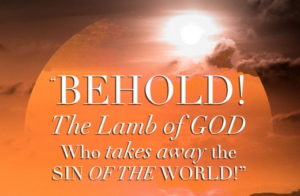 First Reading Isaiah 49:3,5-6
First Reading Isaiah 49:3,5-6
The Lord said to me, ‘You are my servant, Israel, in whom I shall be glorified’; I was honoured in the eyes of the Lord, my God was my strength. And now the Lord has spoken, he who formed me in the womb to be his servant, to bring Jacob back to him,
to gather Israel to him: ‘It is not enough for you to be my servant, to restore the tribes of Jacob and bring back the survivors of Israel; I will make you the light of the nations so that my salvation may reach to the ends of the earth.’
Second Reading 1 Corinthians 1:1-3
I, Paul, appointed by God to be an apostle, together with brother Sosthenes, send greetings to the church of God in Corinth, to the holy people of Jesus Christ, who are called to take their place among all the saints everywhere who pray to our Lord Jesus Christ; for he is their Lord no less than ours. May God our Father and the Lord Jesus Christ send you grace and peace.
Gospel John 1:29-34
Seeing Jesus coming towards him, John said, ‘Look, there is the lamb of God that takes away the sin of the world. This is the one I spoke of when I said: A man is coming after me who ranks before me because he existed before me. I did not know him myself, and yet it was to reveal him to Israel that I came baptising with water.’ John also declared, ‘I saw the Spirit coming down on him from heaven like a dove and resting on him. I did not know him myself, but he who sent me to baptise with water had said to me, “The man on whom you see the Spirit come down and rest is the one who is going to baptise with the Holy Spirit.” Yes, I have seen and I am the witness that he is the Chosen One of God.’
18/1/20 Saturday of week 1 in Ordinary Time
 First Reading 1 Samuel 9:1-4,17-19,10:1
First Reading 1 Samuel 9:1-4,17-19,10:1
Among the men of Benjamin there was a man named Kish son of Abiel, son of Zeror, son of Becorath, son of Aphiah; a Benjaminite and a man of rank. He had a son named Saul, a handsome man in the prime of life. Of all the Israelites there was no one more handsome than he; he stood head and shoulders taller than the rest of the people. Now some of the she-donkeys of Saul’s father Kish had strayed, so Kish said to Saul, ‘My son, take one of the servants with you and be off; go and look for the she-donkeys.’ They passed through the highlands of Ephraim and passed through the land of Shalishah, but did not find them; they passed through the land of Shaalim, they were not there; they passed through the land of Benjamin, but did not find them.
When Samuel saw Saul, the Lord told him, ‘That is the man of whom I told you; he shall rule my people.’ Saul accosted Samuel in the gateway and said, ‘Tell me, please, where the seer’s house is?’ Samuel replied to Saul, ‘I am the seer. Go up ahead of me to the high place. You are to eat with me today. In the morning I shall take leave of you and tell you all that is in your heart.’
Samuel took a phial of oil and poured it on Saul’s head; then he kissed him, saying, ‘Has not the Lord anointed you prince over his people Israel? You are the man who must rule the Lord’s people, and who must save them from the power of the enemies surrounding them.’
Gospel Mark 2:13-17
Jesus went out to the shore of the lake; and all the people came to him, and he taught them. As he was walking on he saw Levi the son of Alphaeus, sitting by the customs house, and he said to him, ‘Follow me.’ And he got up and followed him.
When Jesus was at dinner in his house, a number of tax collectors and sinners were also sitting at the table with Jesus and his disciples; for there were many of them among his followers. When the scribes of the Pharisee party saw him eating with sinners and tax collectors, they said to his disciples, ‘Why does he eat with tax collectors and sinners?’ When Jesus heard this he said to them, ‘It is not the healthy who need the doctor, but the sick. I did not come to call the virtuous, but sinners.’
17/1/20 Friday of week 1 in Ordinary Time
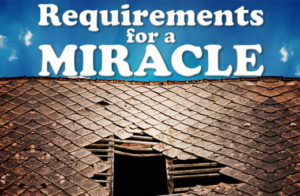 First Reading 1 Samuel 8:4-7,10-22
First Reading 1 Samuel 8:4-7,10-22
All the elders of Israel gathered together and came to Samuel at Ramah. ‘Look,’ they said to him ‘you are old, and your sons do not follow your ways. So give us a king to rule over us, like the other nations.’ It displeased Samuel that they should say, ‘Let us have a king to rule us’, so he prayed to the Lord. But the Lord said to Samuel, ‘Obey the voice of the people in all that they say to you, for it is not you they have rejected; they have rejected me from ruling over them.’
All that the Lord had said Samuel repeated to the people who were asking him for a king. He said, ‘These will be the rights of the king who is to reign over you. He will take your sons and assign them to his chariotry and cavalry, and they will run in front of his chariot. He will use them as leaders of a thousand and leaders of fifty; he will make them plough his ploughland and harvest his harvest and make his weapons of war and the gear for his chariots. He will also take your daughters as perfumers, cooks and bakers. He will take the best of your fields, of your vineyards and olive groves and give them to his officials. He will tithe your crops and vineyards to provide for his eunuchs and his officials. He will take the best of your manservants and maidservants, of your cattle and your donkeys, and make them work for him. He will tithe your flocks, and you yourselves will become his slaves. When that day comes, you will cry out on account of the king you have chosen for yourselves, but on that day God will not answer you.’
The people refused to listen to the words of Samuel. They said, ‘No! We want a king, so that we in our turn can be like the other nations; our king shall rule us and be our leader and fight our battles.’ Samuel listened to all that the people had to say and repeated it in the ears of the Lord. The Lord then said to Samuel, ‘Obey their voice and give them a king.’
Gospel Mark 2:1-12
When Jesus returned to Capernaum, word went round that he was back; and so many people collected that there was no room left, even in front of the door. He was preaching the word to them when some people came bringing him a paralytic carried by four men, but as the crowd made it impossible to get the man to him, they stripped the roof over the place where Jesus was; and when they had made an opening, they lowered the stretcher on which the paralytic lay. Seeing their faith, Jesus said to the paralytic, ‘My child, your sins are forgiven.’ Now some scribes were sitting there, and they thought to themselves, ‘How can this man talk like that? He is blaspheming. Who can forgive sins but God?’ Jesus, inwardly aware that this was what they were thinking, said to them, ‘Why do you have these thoughts in your hearts? Which of these is easier: to say to the paralytic, “Your sins are forgiven” or to say, “Get up, pick up your stretcher and walk”? But to prove to you that the Son of Man has authority on earth to forgive sins,’ – he turned to the paralytic – ‘I order you: get up, pick up your stretcher, and go off home.’ And the man got up, picked up his stretcher at once and walked out in front of everyone, so that they were all astounded and praised God saying, ‘We have never seen anything like this.’
16/1/20 Thursday of week 1 in Ordinary Time
 First Reading 1 Samuel 4:1-11
First Reading 1 Samuel 4:1-11
It happened at that time that the Philistines mustered to fight Israel and Israel went out to meet them in battle, encamping near Ebenezer while the Philistines were encamped at Aphek. The Philistines drew up their battle line against Israel, the battle was hotly engaged, and Israel was defeated by the Philistines and about four thousand of their army were killed on the field. The troops returned to the camp and the elders of Israel said, ‘Why has the Lord allowed us to be defeated today by the Philistines? Let us fetch the ark of our God from Shiloh so that it may come among us and rescue us from the power of our enemies.” So the troops sent to Shiloh and brought away the ark of the Lord of Hosts, he who is seated on the cherubs; the two sons of Eli, Hophni and Phinehas, came with the ark. When the ark of the Lord arrived in the camp, all Israel gave a great shout so that the earth resounded. When the Philistines heard the noise of the shouting, they said, ‘What can this great shouting in the Hebrew camp mean?’ And they realised that the ark of the Lord had come into the camp. At this the Philistines were afraid; and they said, ‘God has come to the camp.’ ‘Alas!’ they cried ‘This has never happened before. Alas! Who will save us from the power of this mighty God? It was he who struck down Egypt with every kind of plague! But take courage and be men, Philistines, or you will become slaves to the Hebrews as they have been slaves to you. Be men and fight.’ So the Philistines joined battle and Israel was defeated, each man fleeing to his tent. The slaughter was great indeed, and there fell of the Israelites thirty thousand foot soldiers. The ark of God was captured too, and the two sons of Eli died, Hophni and Phinehas.
Gospel Mark 1:40-45
A leper came to Jesus and pleaded on his knees: ‘If you want to’ he said ‘you can cure me.’ Feeling sorry for him, Jesus stretched out his hand and touched him. ‘Of course I want to!’ he said. ‘Be cured!’ And the leprosy left him at once and he was cured. Jesus immediately sent him away and sternly ordered him, ‘Mind you say nothing to anyone, but go and show yourself to the priest, and make the offering for your healing prescribed by Moses as evidence of your recovery.’ The man went away, but then started talking about it freely and telling the story everywhere, so that Jesus could no longer go openly into any town, but had to stay outside in places where nobody lived. Even so, people from all around would come to him.
15/1/20 Wednesday of week 1 in Ordinary Time
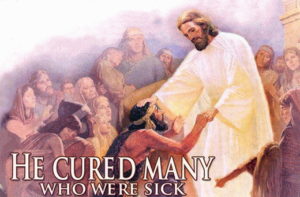 First Reading 1 Samuel 3:1-10,19-20
First Reading 1 Samuel 3:1-10,19-20
The boy Samuel was ministering to the Lord in the presence of Eli; it was rare for the Lord to speak in those days; visions were uncommon. One day, it happened that Eli was lying down in his room. His eyes were beginning to grow dim; he could no longer see. The lamp of God had not yet gone out, and Samuel was lying in the sanctuary of the Lord where the ark of God was, when the Lord called, ‘Samuel! Samuel!’ He answered, ‘Here I am.’ Then he ran to Eli and said, ‘Here I am, since you called me.’ Eli said, ‘I did not call. Go back and lie down.’ So he went and lay down. Once again the Lord called, ‘Samuel! Samuel!’ Samuel got up and went to Eli and said, ‘Here I am, since you called me.’ He replied, ‘I did not call you, my son; go back and lie down.’ Samuel had as yet no knowledge of the Lord and the word of the Lord had not yet been revealed to him. Once again the Lord called, the third time. He got up and went to Eli and said, ‘Here I am, since you called me.’ Eli then understood that it was the Lord who was calling the boy, and he said to Samuel, ‘Go and lie down, and if someone calls say, “Speak, Lord, your servant is listening.”’ So Samuel went and lay down in his place.
The Lord then came and stood by, calling as he had done before, ‘Samuel! Samuel!’ Samuel answered, ‘Speak, Lord, your servant is listening.’
Samuel grew up and the Lord was with him and let no word of his fall to the ground. All Israel from Dan to Beersheba came to know that Samuel was accredited as a prophet of the Lord.
Gospel Mark 1:29-39
On leaving the synagogue, Jesus went with James and John straight to the house of Simon and Andrew. Now Simon’s mother-in-law had gone to bed with fever, and they told him about her straightaway. He went to her, took her by the hand and helped her up. And the fever left her and she began to wait on them.
That evening, after sunset, they brought to him all who were sick and those who were possessed by devils. The whole town came crowding round the door, and he cured many who were suffering from diseases of one kind or another; he also cast out many devils, but he would not allow them to speak, because they knew who he was.
In the morning, long before dawn, he got up and left the house, and went off to a lonely place and prayed there. Simon and his companions set out in search of him, and when they found him they said, ‘Everybody is looking for you.’ He answered, ‘Let us go elsewhere, to the neighbouring country towns, so that I can preach there too, because that is why I came.’ And he went all through Galilee, preaching in their synagogues and casting out devils.
14/1/20 Tuesday of week 1 in Ordinary Time
 First Reading 1 Samuel 1:9-20
First Reading 1 Samuel 1:9-20
After they had eaten in the hall, Hannah rose and took her stand before the Lord, while Eli the priest was sitting on his seat by the doorpost of the temple of the Lord. In the bitterness of her soul she prayed to the Lord with many tears and made a vow, saying, ‘O Lord of Hosts! If you will take notice of the distress of your servant, and bear me in mind and not forget your servant and give her a man-child, I will give him to the Lord for the whole of his life and no razor shall ever touch his head.’
While she prayed before the Lord which she did for some time, Eli was watching her mouth, for she was speaking under her breath; her lips were moving but her voice could not be heard. He therefore supposed that she was drunk and said to her, ‘How long are you going to be in this drunken state? Rid yourself of your wine.’ ‘No, my lord,’ Hannah replied ‘I am a woman in great trouble; I have taken neither wine nor strong drink – I was pouring out my soul before the Lord. Do not take your maidservant for a worthless woman; all this time I have been speaking from the depth of my grief and my resentment.’ Then Eli answered her: ‘Go in peace,’ he said ‘and may the God of Israel grant what you have asked of him.’ And she said, ‘May your maidservant find favour in your sight’; and with that the woman went away; she returned to the hall and ate and was dejected no longer.
They rose early in the morning and worshipped before the Lord and then set out and returned to their home in Ramah. Elkanah had intercourse with Hannah his wife and the Lord was mindful of her. She conceived and gave birth to a son, and called him Samuel ‘since’ she said ‘I asked the Lord for him.’
Gospel Mark 1:21-28
Jesus and his disciples went as far as Capernaum, and as soon as the sabbath came he went to the synagogue and began to teach. And his teaching made a deep impression on them because, unlike the scribes, he taught them with authority.
In their synagogue just then there was a man possessed by an unclean spirit and it shouted, ‘What do you want with us, Jesus of Nazareth? Have you come to destroy us? I know who you are: the Holy One of God.’ But Jesus said sharply, ‘Be quiet! Come out of him!’ And the unclean spirit threw the man into convulsions and with a loud cry went out of him. The people were so astonished that they started asking each other what it all meant. ‘Here is a teaching that is new’ they said ‘and with authority behind it: he gives orders even to unclean spirits and they obey him.’ And his reputation rapidly spread everywhere, through all the surrounding Galilean countryside.
13/1/20 Monday of week 1 in Ordinary Time
 First Reading 1 Samuel 1:1-8
First Reading 1 Samuel 1:1-8
There was a man of Ramathaim, a Zuphite from the highlands of Ephraim whose name was Elkanah son of Jeroham, son of Elihu, son of Tohu, son of Zuph, an Ephraimite. He had two wives, one called Hannah, the other Peninnah; Peninnah had children but Hannah had none. Every year this man used to go up from his town to worship and to sacrifice to the Lord of Hosts in Shiloh. The two sons of Eli, Hophni and Phinehas, were there as priests of the Lord.
One day Elkanah offered sacrifice. He used to give portions to Peninnah and to all her sons and daughters; to Hannah, however, he would give only one portion, although he loved her more, since the Lord had made her barren. Her rival would taunt her to annoy her, because the Lord had made her barren. And this went on year after year; every time they went up to the temple of the Lord she used to taunt her. And so Hannah wept and would not eat. Then Elkanah her husband said to her, ‘Hannah, why are you crying and why are you not eating? Why so sad? Am I not more to you than ten sons?’
Gospel Mark 1:14-20
After John had been arrested, Jesus went into Galilee. There he proclaimed the Good News from God. ‘The time has come’ he said ‘and the kingdom of God is close at hand. Repent, and believe the Good News.’
As he was walking along by the Sea of Galilee he saw Simon and his brother Andrew casting a net in the lake – for they were fishermen. And Jesus said to them, ‘Follow me and I will make you into fishers of men.’ And at once they left their nets and followed him.
Going on a little further, he saw James son of Zebedee and his brother John; they too were in their boat, mending their nets. He called them at once and, leaving their father Zebedee in the boat with the men he employed, they went after him.
12/1/20 The Baptism of the Lord
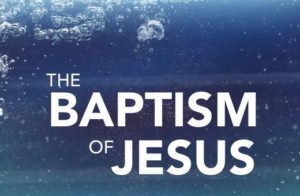 First Reading Isaiah 42:1-4,6-7
First Reading Isaiah 42:1-4,6-7
Thus says the Lord: Here is my servant whom I uphold, my chosen one in whom my soul delights. I have endowed him with my spirit that he may bring true justice to the nations. He does not cry out or shout aloud, or make his voice heard in the streets.
He does not break the crushed reed, nor quench the wavering flame. Faithfully he brings true justice; he will neither waver, nor be crushed until true justice is established on earth, for the islands are awaiting his law. I, the Lord, have called you to serve the cause of right; I have taken you by the hand and formed you; I have appointed you as covenant of the people and light of the nations, to open the eyes of the blind, to free captives from prison, and those who live in darkness from the dungeon.
Second Reading Acts 10:34-38
Peter addressed Cornelius and his household: ‘The truth I have now come to realise’ he said ‘is that God does not have favourites, but that anybody of any nationality who fears God and does what is right is acceptable to him.
‘It is true, God sent his word to the people of Israel, and it was to them that the good news of peace was brought by Jesus Christ – but Jesus Christ is Lord of all men. You must have heard about the recent happenings in Judaea; about Jesus of Nazareth and how he began in Galilee, after John had been preaching baptism. God had anointed him with the Holy Spirit and with power, and because God was with him, Jesus went about doing good and curing all who had fallen into the power of the devil.’
Gospel Matthew 3:13-17
Jesus came from Galilee to the Jordan to be baptised by John. John tried to dissuade him. ‘It is I who need baptism from you’ he said ‘and yet you come to me!’ But Jesus replied, ‘Leave it like this for the time being; it is fitting that we should, in this way, do all that righteousness demands.’ At this, John gave in to him.
As soon as Jesus was baptised he came up from the water, and suddenly the heavens opened and he saw the Spirit of God descending like a dove and coming down on him. And a voice spoke from heaven, ‘This is my Son, the Beloved; my favour rests on him.’
11/1/20 Saturday after Epiphany Sunday
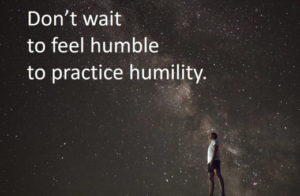 First Reading 1 John 5:14-21
First Reading 1 John 5:14-21
We are quite confident that if we ask the Son of God for anything, and it is in accordance with his will, he will hear us; and, knowing that whatever we may ask, he hears us, we know that we have already been granted what we asked of him. If anybody sees his brother commit a sin that is not a deadly sin, he has only to pray, and God will give life to the sinner – not those who commit a deadly sin; for there is a sin that is death, and I will not say that you must pray about that. Every kind of wrong-doing is sin, but not all sin is deadly. We know that anyone who has been begotten by God does not sin, because the begotten Son of God protects him, and the Evil One does not touch him. We know that we belong to God, but the whole world lies in the power of the Evil One. We know, too, that the Son of God has come, and has given us the power to know the true God. We are in the true God, as we are in his Son, Jesus Christ. This is the true God, this is eternal life. Children, be on your guard against false gods.
Gospel John 3:22-30
Jesus went with his disciples into the Judaean countryside and stayed with them there and baptised. At the same time John was baptising at Aenon near Salim, where there was plenty of water, and people were going there to be baptised. This was before John had been put in prison.
Now some of John’s disciples had opened a discussion with a Jew about purification, so they went to John and said, ‘Rabbi, the man who was with you on the far side of the Jordan, the man to whom you bore witness, is baptising now; and everyone is going to him.’ John replied: ‘A man can lay claim only to what is given him from heaven. ‘You yourselves can bear me out: I said: I myself am not the Christ; I am the one who has been sent in front of him. ‘The bride is only for the bridegroom; and yet the bridegroom’s friend, who stands there and listens, is glad when he hears the bridegroom’s voice. This same joy I feel, and now it is complete. He must grow greater, I must grow smaller.’
10/1/20 Friday after Epiphany Sunday
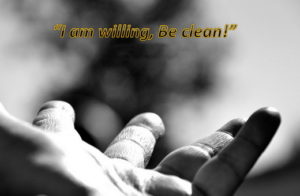 First Reading 1 John 5:5-13
First Reading 1 John 5:5-13
Who can overcome the world? Only the man who believes that Jesus is the Son of God: Jesus Christ who came by water and blood, not with water only, but with water and blood; with the Spirit as another witness – since the Spirit is the truth – so that there are three witnesses, the Spirit, the water and the blood, and all three of them agree. We accept the testimony of human witnesses, but God’s testimony is much greater, and this is God’s testimony, given as evidence for his Son. Everybody who believes in the Son of God has this testimony inside him; and anyone who will not believe God is making God out to be a liar, because he has not trusted the testimony God has given about his Son. This is the testimony: God has given us eternal life
and this life is in his Son; anyone who has the Son has life, anyone who does not have the Son does not have life. I have written all this to you so that you who believe in the name of the Son of God may be sure that you have eternal life.
Gospel Luke 5:12-16
Jesus was in one of the towns when a man appeared, covered with leprosy. Seeing Jesus he fell on his face and implored him. ‘Sir,’ he said ‘if you want to, you can cure me.’ Jesus stretched out his hand, touched him and said, ‘Of course I want to! Be cured!’ And the leprosy left him at once. He ordered him to tell no one, ‘But go and show yourself to the priest and make the offering for your healing as Moses prescribed it, as evidence for them.’
His reputation continued to grow, and large crowds would gather to hear him and to have their sickness cured, but he would always go off to some place where he could be alone and pray.
9/1/20 Thursday after Epiphany Sunday
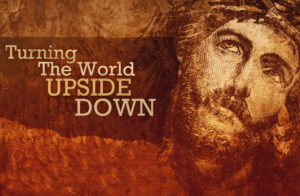 First Reading 1 John 4:19-5:4
First Reading 1 John 4:19-5:4
We are to love, because God loved us first. Anyone who says, ‘I love God’,
and hates his brother, is a liar, since a man who does not love the brother that he can see cannot love God, whom he has never seen. So this is the commandment that he has given us, that anyone who loves God must also love his brother. Whoever believes that Jesus is the Christ has been begotten by God; and whoever loves the Father that begot him loves the child whom he begets. We can be sure that we love God’s children if we love God himself and do what he has commanded us; this is what loving God is – keeping his commandments; and his commandments are not difficult, because anyone who has been begotten by God has already overcome the world; this is the victory over the world – our faith.
Gospel Luke 4:14-22
Jesus, with the power of the Spirit in him, returned to Galilee; and his reputation spread throughout the countryside. He taught in their synagogues and everyone praised him.
He came to Nazara, where he had been brought up, and went into the synagogue on the sabbath day as he usually did. He stood up to read and they handed him the scroll of the prophet Isaiah. Unrolling the scroll he found the place where it is written:
The spirit of the Lord has been given to me, for he has anointed me. He has sent me to bring the good news to the poor, to proclaim liberty to captives and to the blind new sight, to set the downtrodden free, to proclaim the Lord’s year of favour.
He then rolled up the scroll, gave it back to the assistant and sat down. And all eyes in the synagogue were fixed on him. Then he began to speak to them, ‘This text is being fulfilled today even as you listen.’ And he won the approval of all, and they were astonished by the gracious words that came from his lips.
8/1/20 Wednesday after Epiphany Sunday
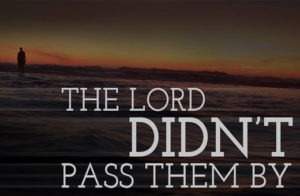 First Reading 1 John 4:11-18
First Reading 1 John 4:11-18
My dear people, since God has loved us so much, we too should love one another.
No one has ever seen God; but as long as we love one another God will live in us and his love will be complete in us. We can know that we are living in him and he is living in us because he lets us share his Spirit. We ourselves saw and we testify that the Father sent his Son as saviour of the world. If anyone acknowledges that Jesus is the Son of God, God lives in him, and he in God. We ourselves have known and put our faith in God’s love towards ourselves. God is love and anyone who lives in love lives in God, and God lives in him. Love will come to its perfection in us when we can face the day of Judgement without fear; because even in this world we have become as he is. In love there can be no fear, but fear is driven out by perfect love: because to fear is to expect punishment, and anyone who is afraid is still imperfect in love.
Gospel Mark 6:45-52
After the five thousand had eaten and were filled, Jesus made his disciples get into the boat and go on ahead to Bethsaida, while he himself sent the crowd away. After saying goodbye to them he went off into the hills to pray. When evening came, the boat was far out on the lake, and he was alone on the land. He could see they were worn out with rowing, for the wind was against them; and about the fourth watch of the night he came towards them, walking on the lake. He was going to pass them by, but when they saw him walking on the lake they thought it was a ghost and cried out; for they had all seen him and were terrified. But he at once spoke to them, and said, ‘Courage! It is I! Do not be afraid.’ Then he got into the boat with them, and the wind dropped. They were utterly and completely dumbfounded, because they had not seen what the miracle of the loaves meant; their minds were closed.
7/1/20 Tuesday after Epiphany Sunday
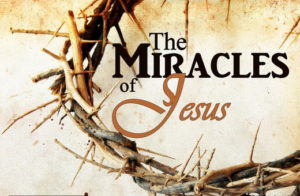 First Reading 1 John 4:7-10
First Reading 1 John 4:7-10
My dear people, let us love one another since love comes from God and everyone who loves is begotten by God and knows God. Anyone who fails to love can never have known God, because God is love. God’s love for us was revealed when God sent into the world his only Son so that we could have life through him; this is the love I mean: not our love for God, but God’s love for us when he sent his Son to be the sacrifice that takes our sins away.
Gospel Mark 6:34-44
As Jesus stepped ashore he saw a large crowd; and he took pity on them because they were like sheep without a shepherd, and he set himself to teach them at some length. By now it was getting very late, and his disciples came up to him and said, ‘This is a lonely place and it is getting very late. So send them away, and they can go to the farms and villages round about, to buy themselves something to eat.’ He replied, ‘Give them something to eat yourselves.’ They answered, ‘Are we to go and spend two hundred denarii on bread for them to eat?’ ‘How many loaves have you?’ he asked. ‘Go and see.’ And when they had found out they said, ‘Five, and two fish.’ Then he ordered them to get all the people together in groups on the green grass, and they sat down on the ground in squares of hundreds and fifties. Then he took the five loaves and the two fish, raised his eyes to heaven and said the blessing; then he broke the loaves and handed them to his disciples to distribute among the people. He also shared out the two fish among them all. They all ate as much as they wanted. They collected twelve basketfuls of scraps of bread and pieces of fish. Those who had eaten the loaves numbered five thousand men.
Monday, January 6, 2020
 First Reading 1 John 3,22-24.4,1-6
First Reading 1 John 3,22-24.4,1-6
Beloved : we receive from him whatever we ask, because we keep his commandments and do what pleases him.
And his commandment is this: we should believe in the name of his Son, Jesus Christ, and love one another just as he commanded us.
Those who keep his commandments remain in him, and he in them, and the way we know that he remains in us is from the Spirit that he gave us.
Beloved, do not trust every spirit but test the spirits to see whether they belong to God, because many false prophets have gone out into the world.
This is how you can know the Spirit of God: every spirit that acknowledges Jesus Christ come in the flesh be longs to God,
and every spirit that does not acknowledge Jesus does not belong to God. This is the spirit of the antichrist that, as you heard, is to come, but in fact is already in the world.
You belong to God, children, and you have conquered them, for the one who is in you is greater than the one who is in the world.
They belong to the world; accordingly, their teaching belongs to the world, and the world listens to them.
We belong to God, and anyone who knows God listens to us, while anyone who does not belong to God refuses to hear us. This is how we know the spirit of truth and the spirit of deceit.
Gospel Matthew 4,12-17.23-25.
When Jesus heard that John had been arrested, he withdrew to Galilee.
He left Nazareth and went to live in Capernaum by the sea, in the region of Zebulun and Naphtali,
that what had been said through Isaiah the prophet might be fulfilled:
Land of Zebulun and land of Naphtali, the way to the sea, beyond the Jordan, Galilee of the Gentiles,
the people who sit in darkness have seen a great light, on those dwelling in a land overshadowed by death light has arisen.”
From that time on, Jesus began to preach and say, “Repent, for the kingdom of heaven is at hand.”
He went around all of Galilee, teaching in their synagogues, proclaiming the gospel of the kingdom, and curing every disease and illness among the people.
His fame spread to all of Syria, and they brought to him all who were sick with various diseases and racked with pain, those who were possessed, lunatics, and paralytics, and he cured them.
And great crowds from Galilee, the Decapolis, Jerusalem, and Judea, and from beyond the Jordan followed him.
5/1/20 The Epiphany of the Lord
 First Reading Isaiah 60:1-6
First Reading Isaiah 60:1-6
Arise, shine out, Jerusalem, for your light has come, the glory of the Lord is rising on you, though night still covers the earth and darkness the peoples. Above you the Lord now rises and above you his glory appears. The nations come to your light and kings to your dawning brightness. Lift up your eyes and look round: all are assembling and coming towards you, your sons from far away and your daughters being tenderly carried. At this sight you will grow radiant, your heart throbbing and full; since the riches of the sea will flow to you, the wealth of the nations come to you; camels in throngs will cover you, and dromedaries of Midian and Ephah; everyone in Sheba will come, bringing gold and incense and singing the praise of the Lord.
Second Reading Ephesians 3:2-3,5-6
You have probably heard how I have been entrusted by God with the grace he meant for you, and that it was by a revelation that I was given the knowledge of the mystery. This mystery that has now been revealed through the Spirit to his holy apostles and prophets was unknown to any men in past generations; it means that pagans now share the same inheritance, that they are parts of the same body, and that the same promise has been made to them, in Jesus Christ, through the gospel.
Gospel Matthew 2:1-12
After Jesus had been born at Bethlehem in Judaea during the reign of King Herod, some wise men came to Jerusalem from the east. ‘Where is the infant king of the Jews?’ they asked. ‘We saw his star as it rose and have come to do him homage.’ When King Herod heard this he was perturbed, and so was the whole of Jerusalem. He called together all the chief priests and the scribes of the people, and enquired of them where the Christ was to be born. ‘At Bethlehem in Judaea,’ they told him ‘for this is what the prophet wrote:
And you, Bethlehem, in the land of Judah,
you are by no means least among the leaders of Judah,
for out of you will come a leader
who will shepherd my people Israel.’
Then Herod summoned the wise men to see him privately. He asked them the exact date on which the star had appeared, and sent them on to Bethlehem. ‘Go and find out all about the child,’ he said ‘and when you have found him, let me know, so that I too may go and do him homage.’ Having listened to what the king had to say, they set out. And there in front of them was the star they had seen rising; it went forward, and halted over the place where the child was. The sight of the star filled them with delight, and going into the house they saw the child with his mother Mary, and falling to their knees they did him homage. Then, opening their treasures, they offered him gifts of gold and frankincense and myrrh. But they were warned in a dream not to go back to Herod, and returned to their own country by a different way.
Saturday 4 January 2020
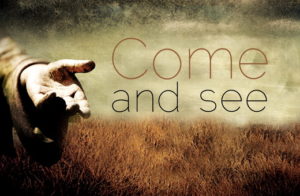 First Reading 1 John 3:7-10
First Reading 1 John 3:7-10
My children, do not let anyone lead you astray: to live a holy lifeis to be holy just as he is holy; to lead a sinful life is to belong to the devil, since the devil was a sinner from the beginning. It was to undo all that the devil has done that the Son of God appeared. No one who has been begotten by God sins; because God’s seed remains inside him, he cannot sin when he has been begotten by God. In this way we distinguish the children of God from the children of the devil: anybody not living a holy life and not loving his brother is no child of God’s.
Gospel John 1:35-42
As John stood with two of his disciples, Jesus passed, and John stared hard at him and said, ‘Look, there is the lamb of God.’ Hearing this, the two disciples followed Jesus. Jesus turned round, saw them following and said, ‘What do you want?’ They answered, ‘Rabbi,’ – which means Teacher – ‘where do you live?’ ‘Come and see’ he replied; so they went and saw where he lived, and stayed with him the rest of that day. It was about the tenth hour.
One of these two who became followers of Jesus after hearing what John had said was Andrew, the brother of Simon Peter. Early next morning, Andrew met his brother and said to him, ‘We have found the Messiah’ – which means the Christ – and he took Simon to Jesus. Jesus looked hard at him and said, ‘You are Simon son of John; you are to be called Cephas’ – meaning Rock.
Friday (January 3)
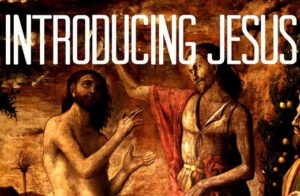 First Reading 1 John 2:29-3:6
First Reading 1 John 2:29-3:6
You know that God is righteous – then you must recognise that everyone whose life is righteous has been begotten by him. Think of the love that the Father has lavished on us, by letting us be called God’s children; and that is what we are. Because the world refused to acknowledge him, therefore it does not acknowledge us. My dear people, we are already the children of God but what we are to be in the future has not yet been revealed; all we know is, that when it is revealed we shall be like him because we shall see him as he really is. Surely everyone who entertains this hope must purify himself, must try to be as pure as Christ. Anyone who sins at all breaks the law, because to sin is to break the law. Now you know that he appeared in order to abolish sin, and that in him there is no sin; anyone who lives in God does not sin, and anyone who sins has never seen him or known him.
Gospel John 1:29-34
Seeing Jesus coming towards him, John said, ‘Look, there is the lamb of God that takes away the sin of the world. This is the one I spoke of when I said: A man is coming after me who ranks before me because he existed before me. I did not know him myself, and yet it was to reveal him to Israel that I came baptising with water.’ John also declared, ‘I saw the Spirit coming down on him from heaven like a dove and resting on him. I did not know him myself, but he who sent me to baptise with water had said to me, “The man on whom you see the Spirit come down and rest is the one who is going to baptise with the Holy Spirit.” Yes, I have seen and I am the witness that he is the Chosen One of God.’
2/1/20 Saints Basil the Great and Gregory Nazianzen, Bishops, Doctors
 First Reading 1 John 2:22-28
First Reading 1 John 2:22-28
The man who denies that Jesus is the Christ – he is the liar, he is Antichrist; and he is denying the Father as well as the Son, because no one who has the Father can deny the Son, and to acknowledge the Son is to have the Father as well. Keep alive in yourselves what you were taught in the beginning: as long as what you were taught in the beginning is alive in you, you will live in the Son and in the Father; and what is promised to you by his own promise is eternal life. This is all that I am writing to you about the people who are trying to lead you astray. But you have not lost the anointing that he gave you, and you do not need anyone to teach you; the anointing he gave teaches you everything; you are anointed with truth, not with a lie, and as it has taught you, so you must stay in him. Live in Christ, then, my children, so that if he appears, we may have full confidence, and not turn from him in shame at his coming.
Gospel John 1:19-28
This is how John appeared as a witness. When the Jews sent priests and Levites from Jerusalem to ask him, ‘Who are you?’ he not only declared, but he declared quite openly, ‘I am not the Christ.’ ‘Well then,’ they asked ‘are you Elijah?’ ‘I am not’ he said. ‘Are you the Prophet?’ He answered, ‘No.’ So they said to him, ‘Who are you? We must take back an answer to those who sent us. What have you to say about yourself?’ So John said, ‘I am, as Isaiah prophesied:
a voice that cries in the wilderness:
Make a straight way for the Lord.’
Now these men had been sent by the Pharisees, and they put this further question to him, ‘Why are you baptising if you are not the Christ, and not Elijah, and not the prophet?’ John replied, ‘I baptise with water; but there stands among you – unknown to you – the one who is coming after me; and I am not fit to undo his sandal-strap.’ This happened at Bethany, on the far side of the Jordan, where John was baptising.
1/1/2020 Mary, Mother of God
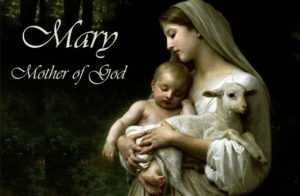 First Reading Numbers 6:22-27
First Reading Numbers 6:22-27
The Lord spoke to Moses and said, ‘Say this to Aaron and his sons: “This is how you are to bless the sons of Israel. You shall say to them:
May the Lord bless you and keep you.
May the Lord let his face shine on you and be gracious to you.
May the Lord uncover his face to you and bring you peace.”
This is how they are to call down my name on the sons of Israel, and I will bless them.’
Second Reading Galatians 4:4-7
When the appointed time came, God sent his Son, born of a woman, born a subject of the Law, to redeem the subjects of the Law and to enable us to be adopted as sons. The proof that you are sons is that God has sent the Spirit of his Son into our hearts: the Spirit that cries, ‘Abba, Father’, and it is this that makes you a son, you are not a slave any more; and if God has made you son, then he has made you heir.
Gospel Luke 2:16-21
The shepherds hurried away to Bethlehem and found Mary and Joseph, and the baby lying in the manger. When they saw the child they repeated what they had been told about him, and everyone who heard it was astonished at what the shepherds had to say. As for Mary, she treasured all these things and pondered them in her heart. And the shepherds went back glorifying and praising God for all they had heard and seen; it was exactly as they had been told.
When the eighth day came and the child was to be circumcised, they gave him the name Jesus, the name the angel had given him before his conception.
